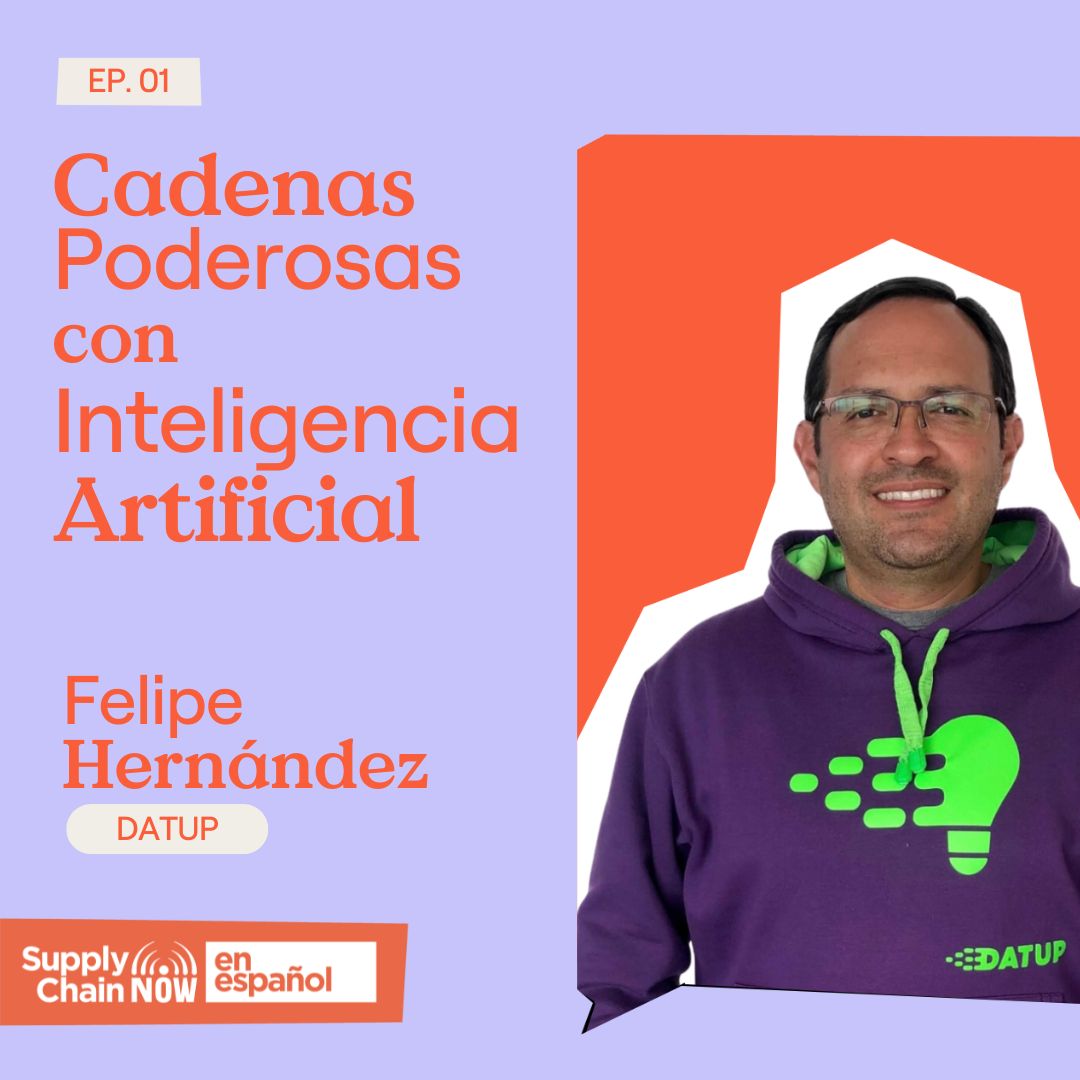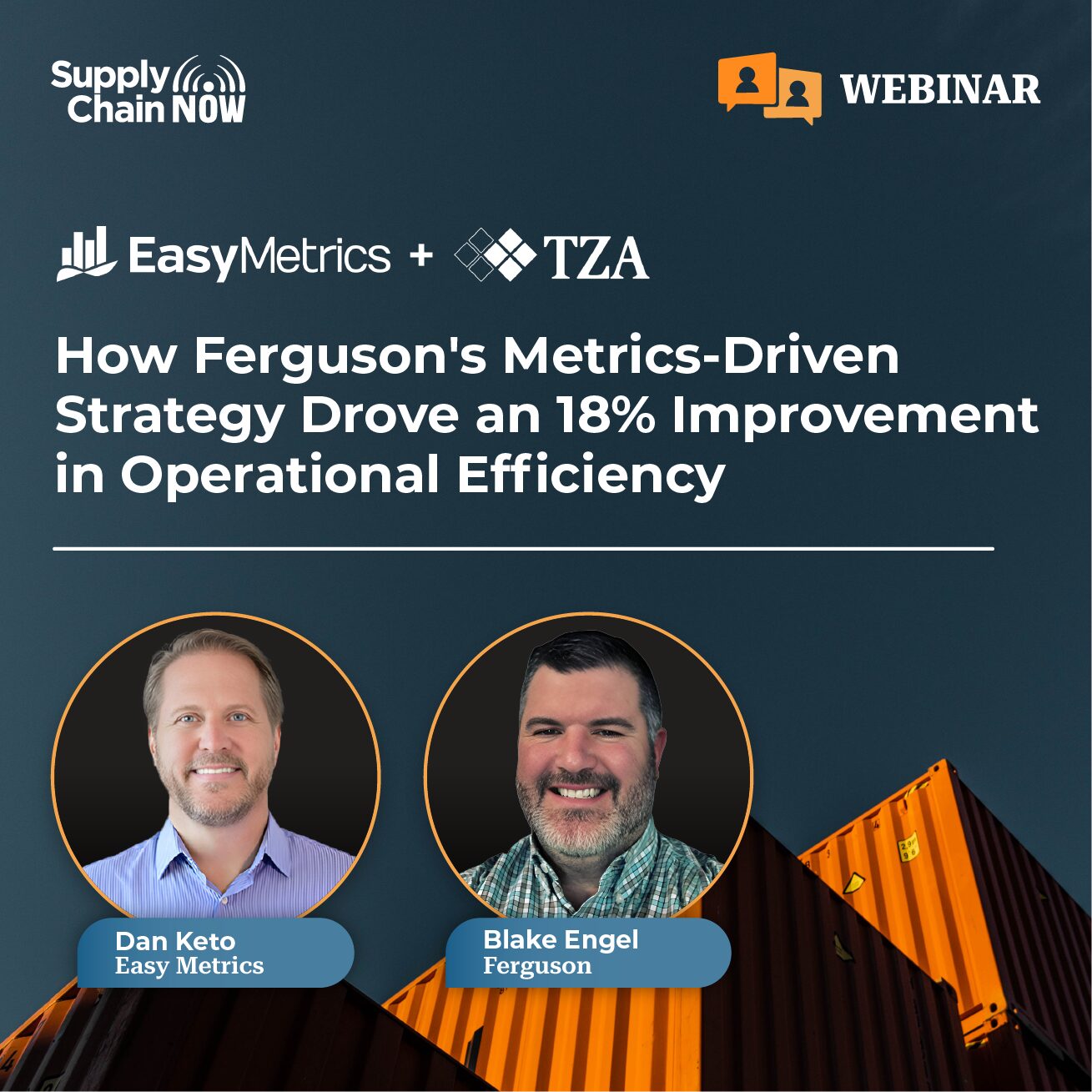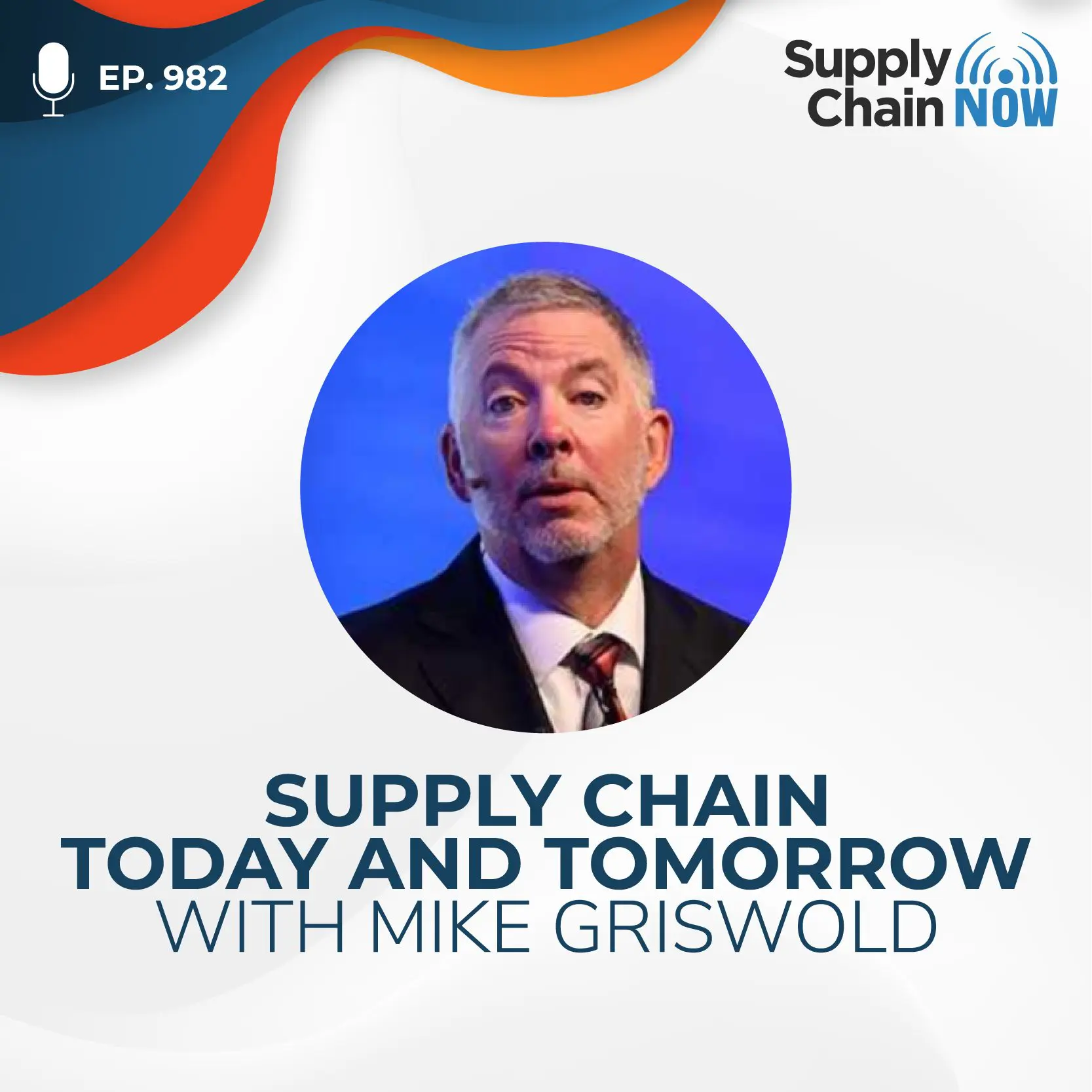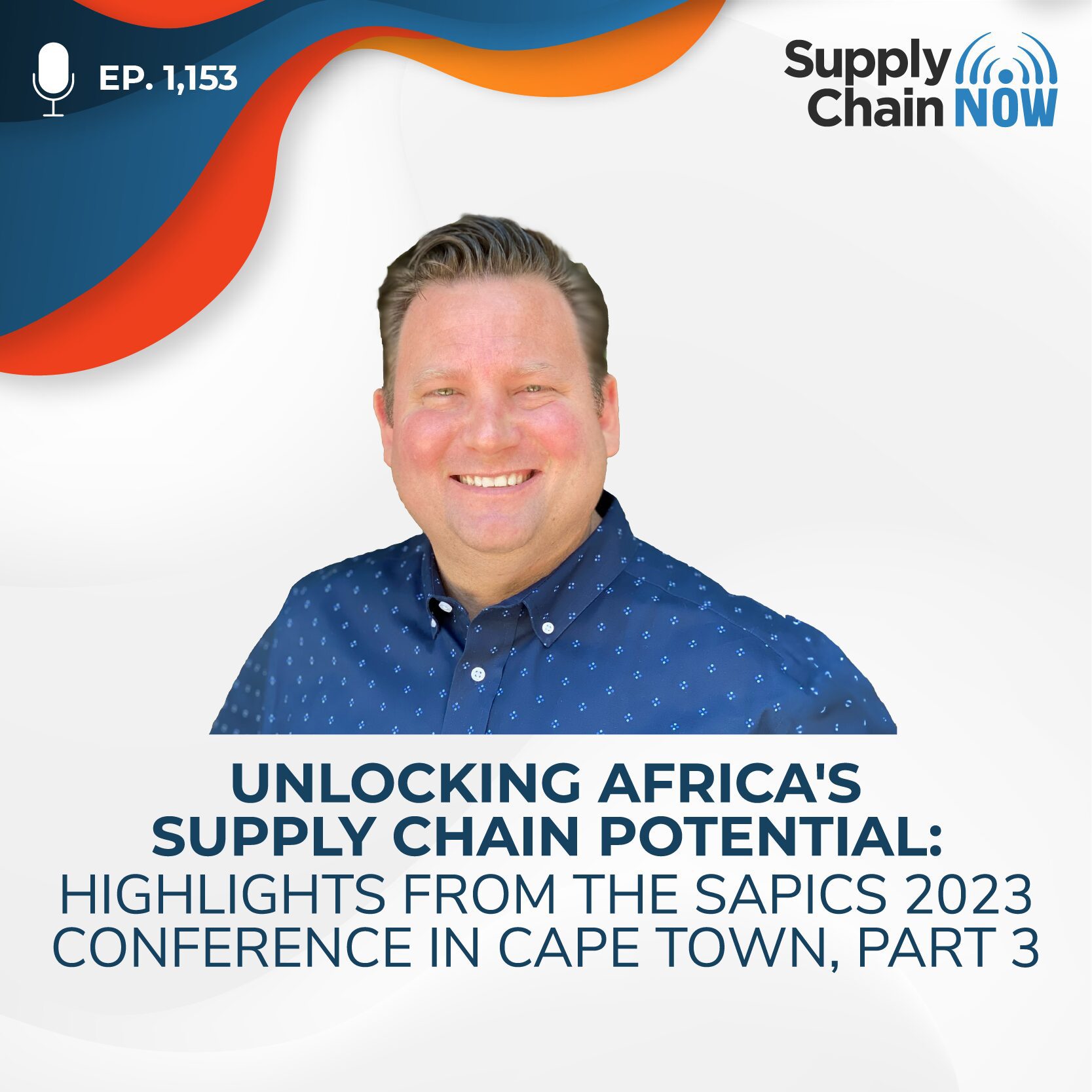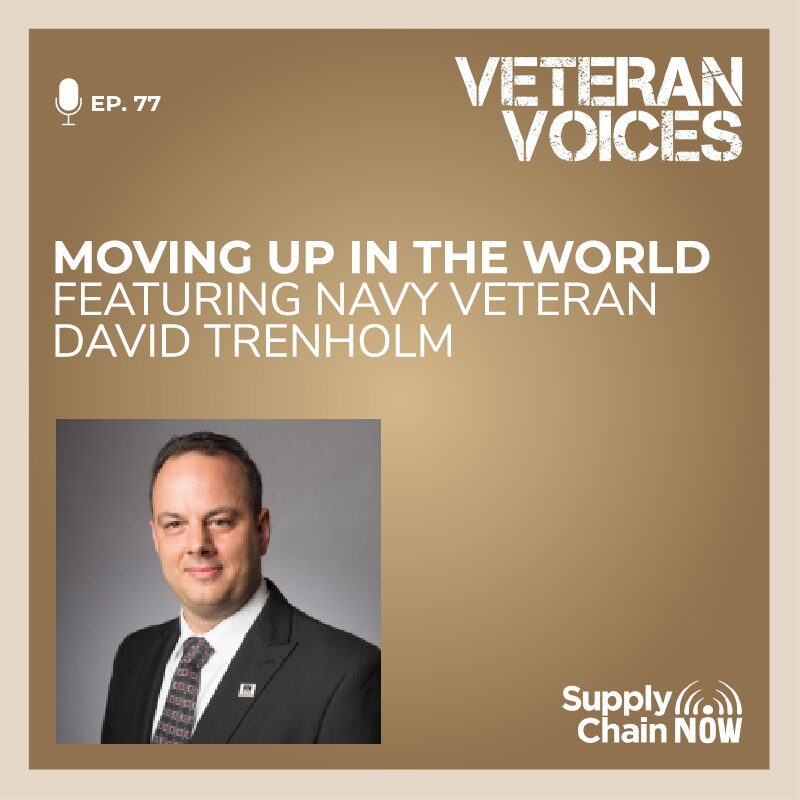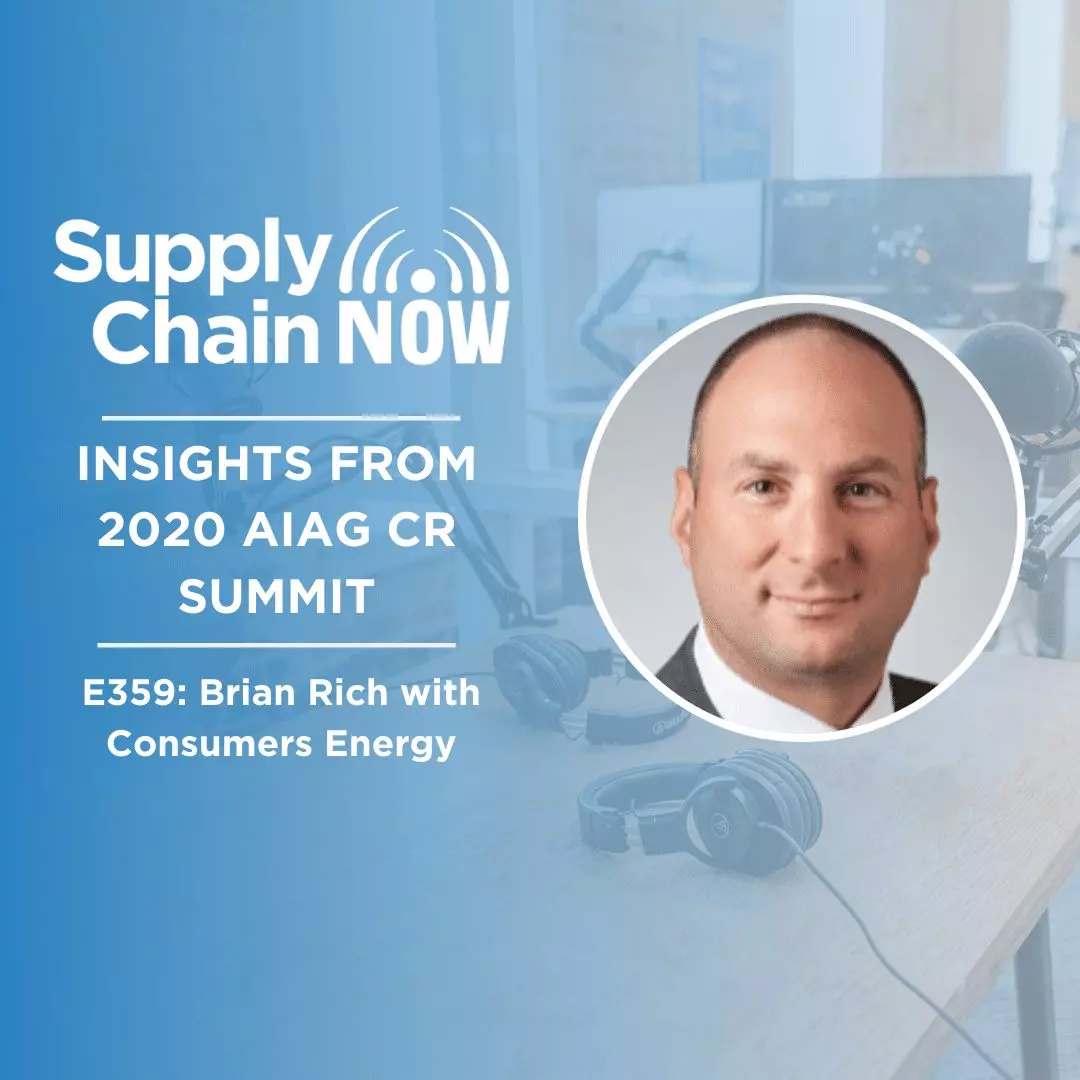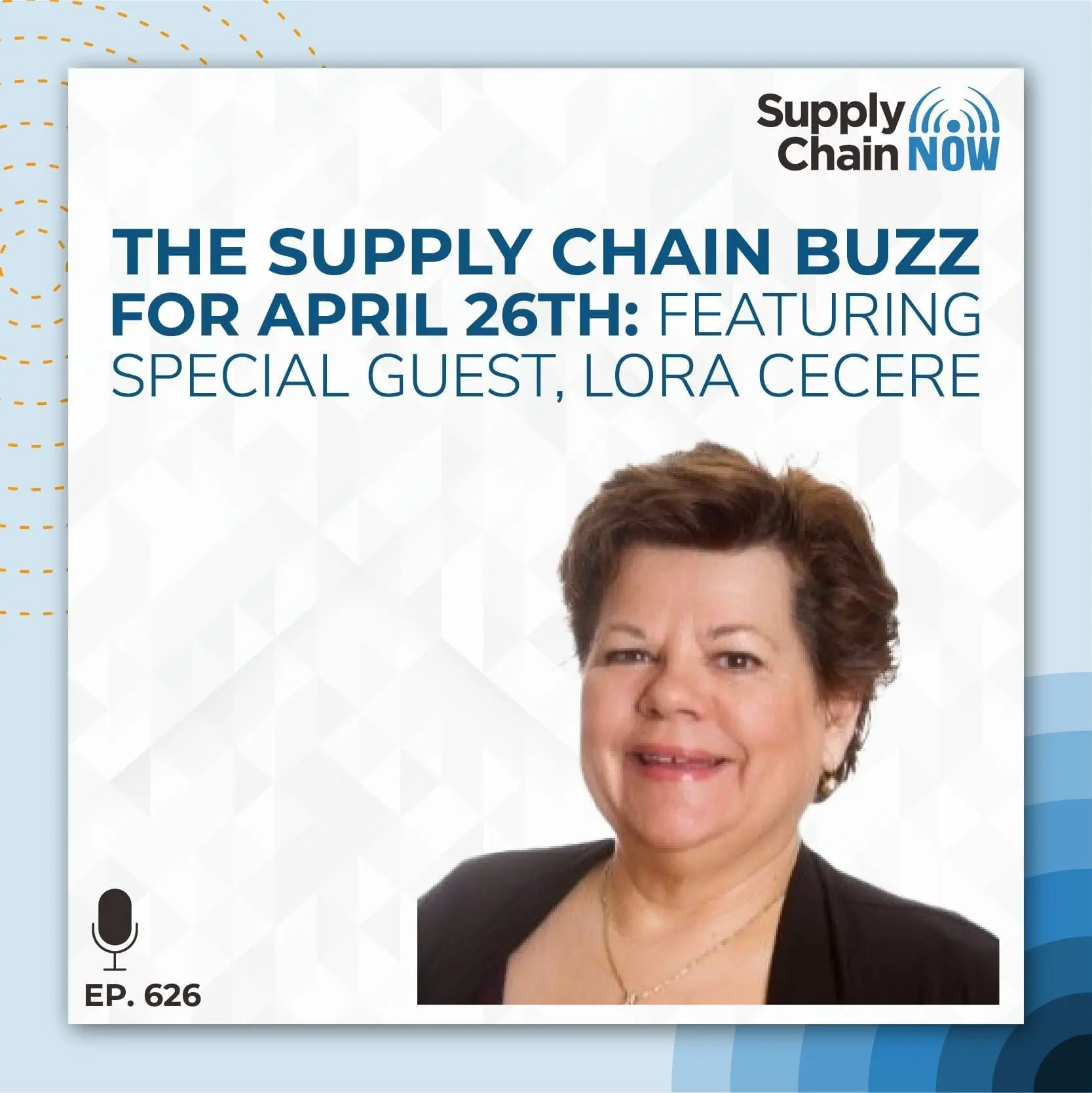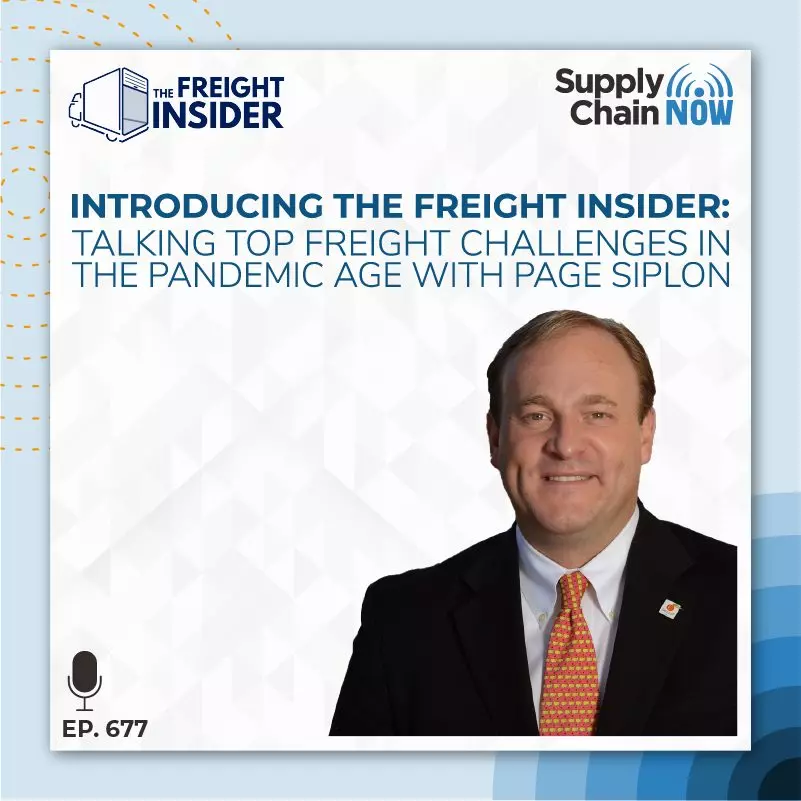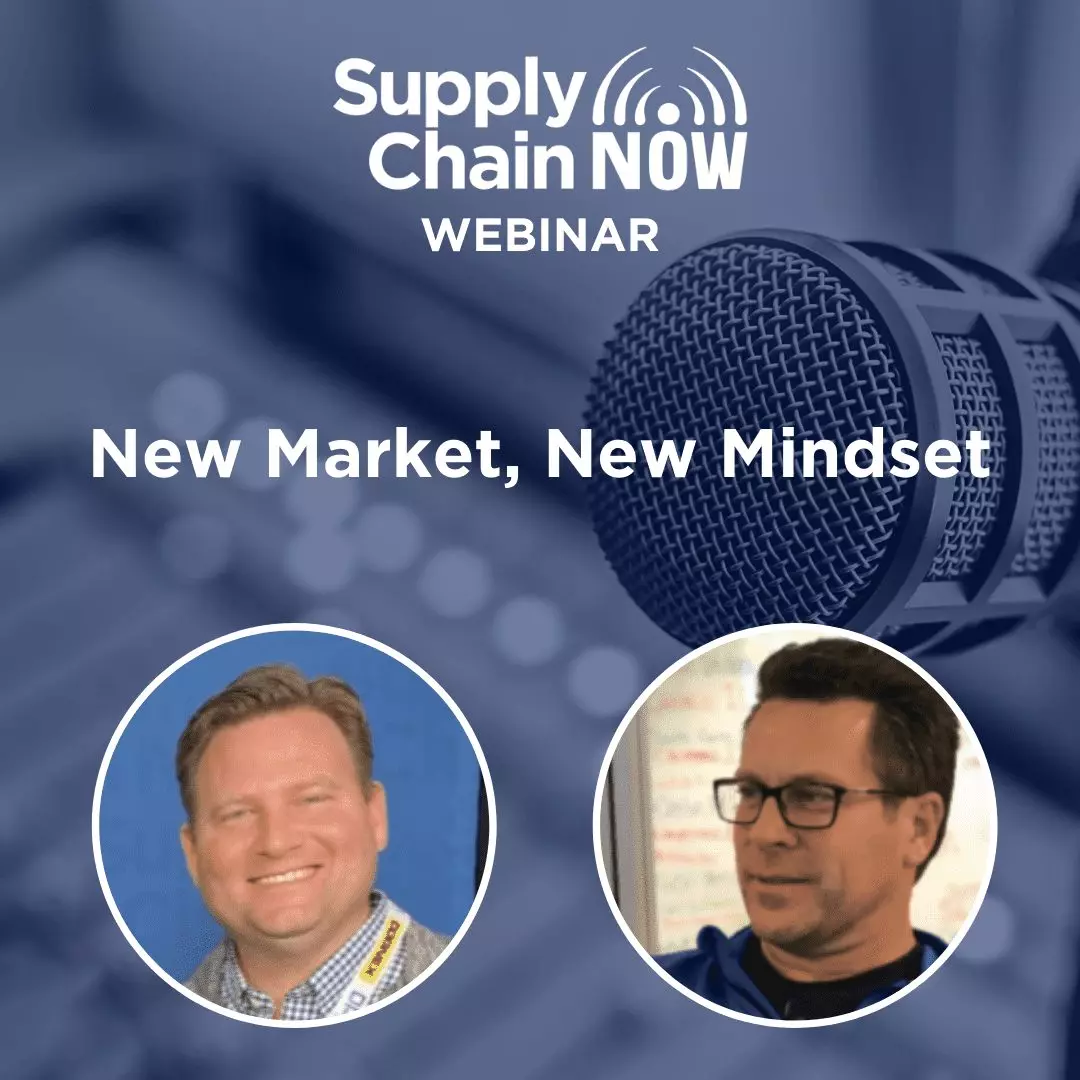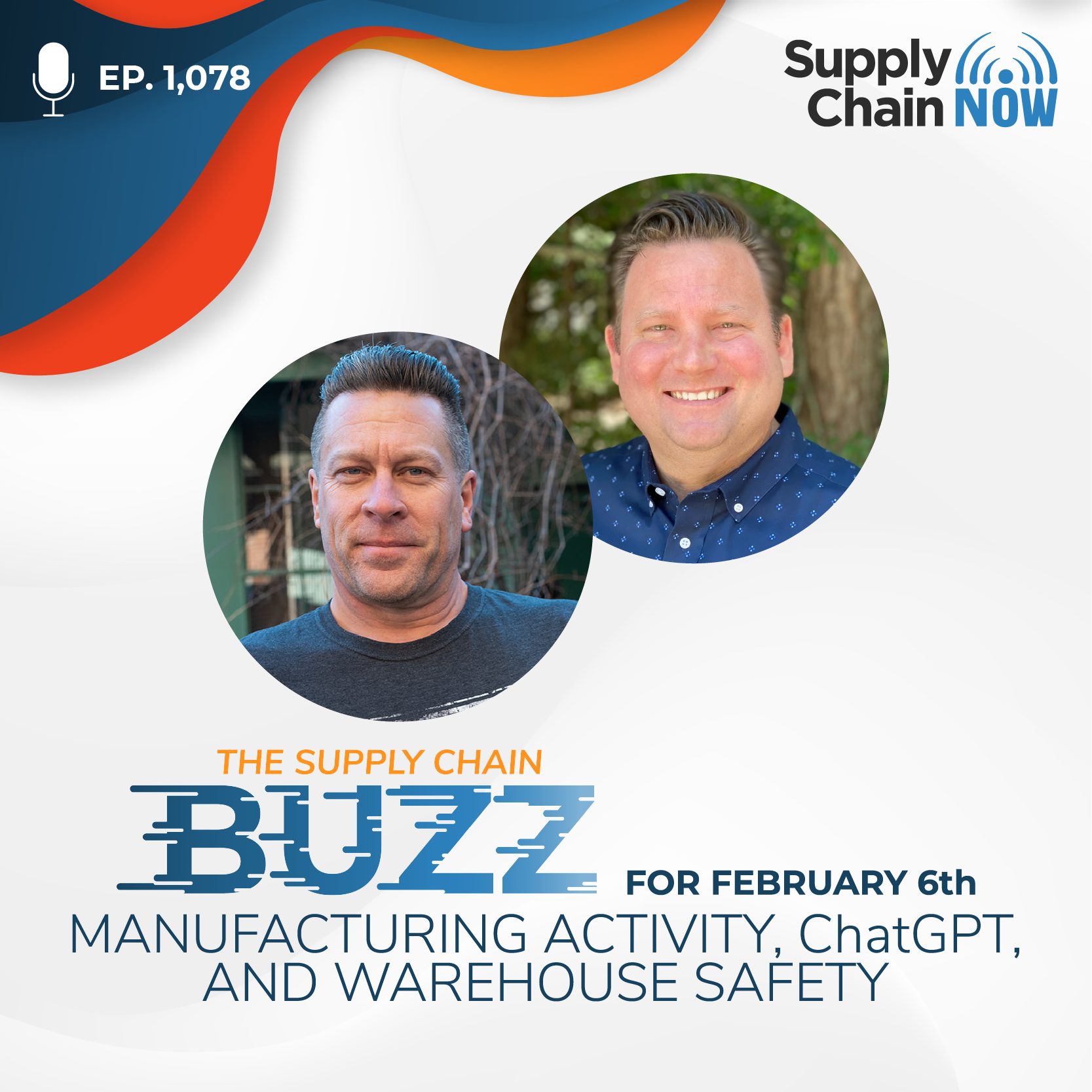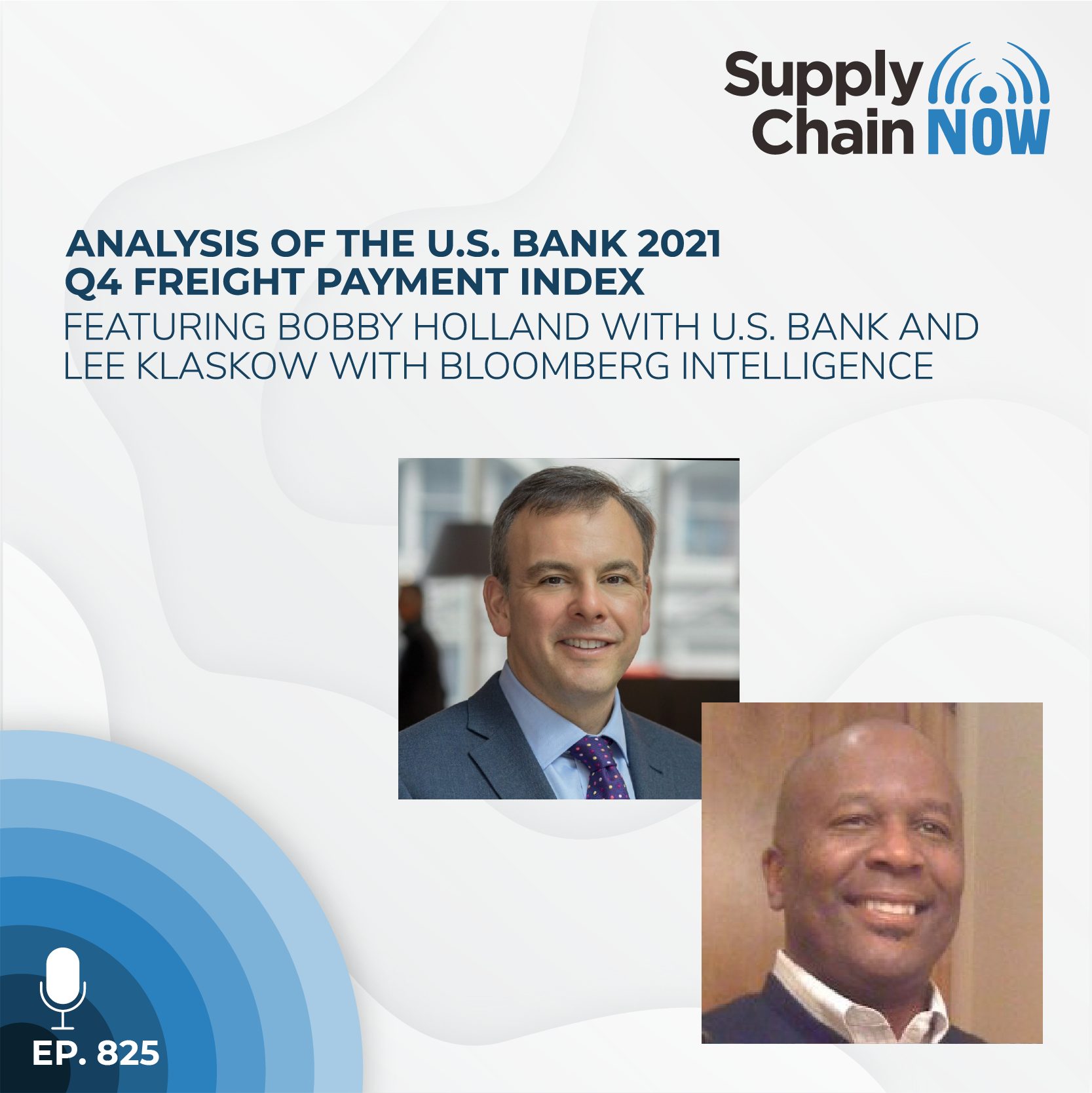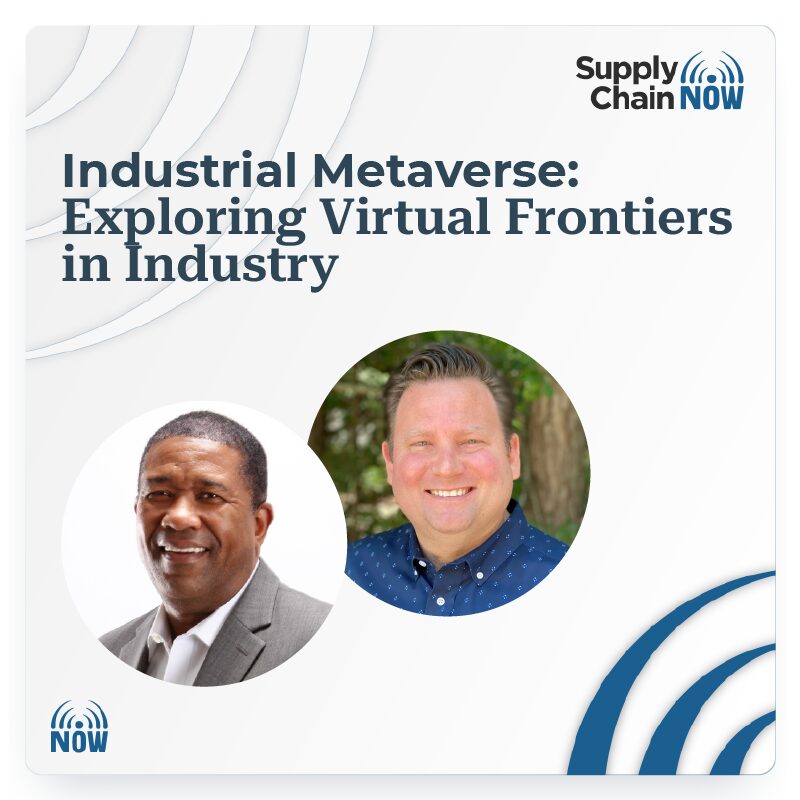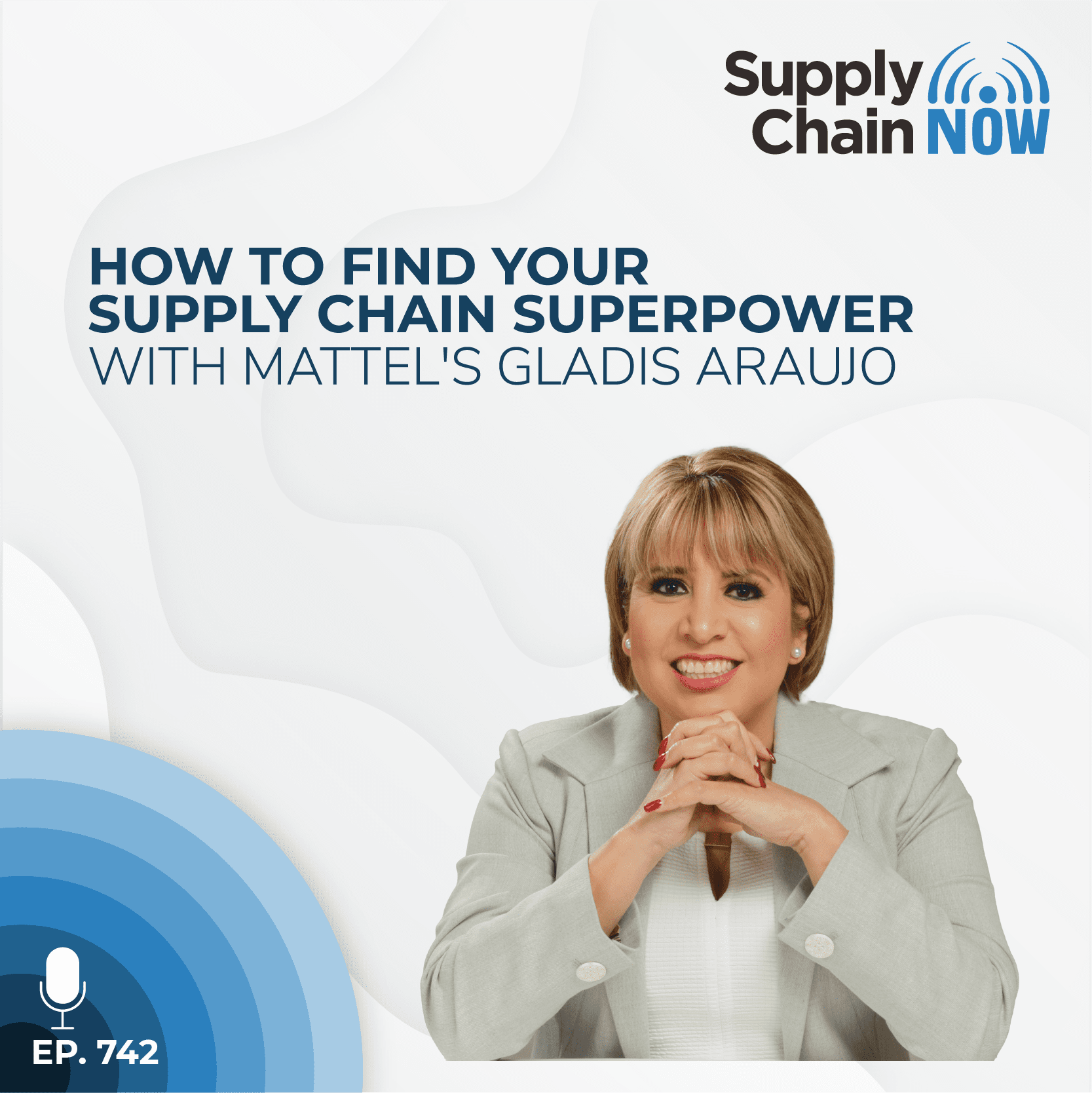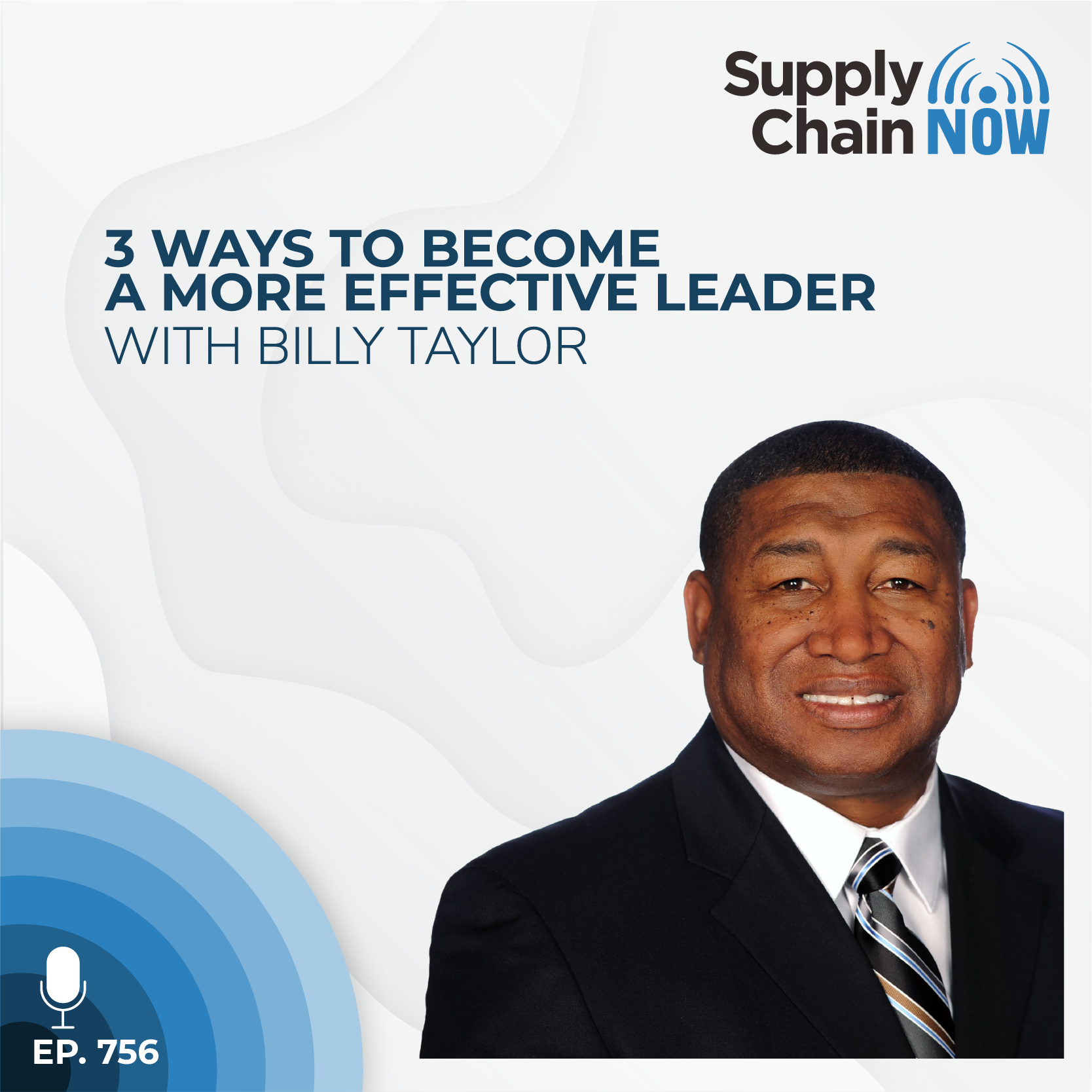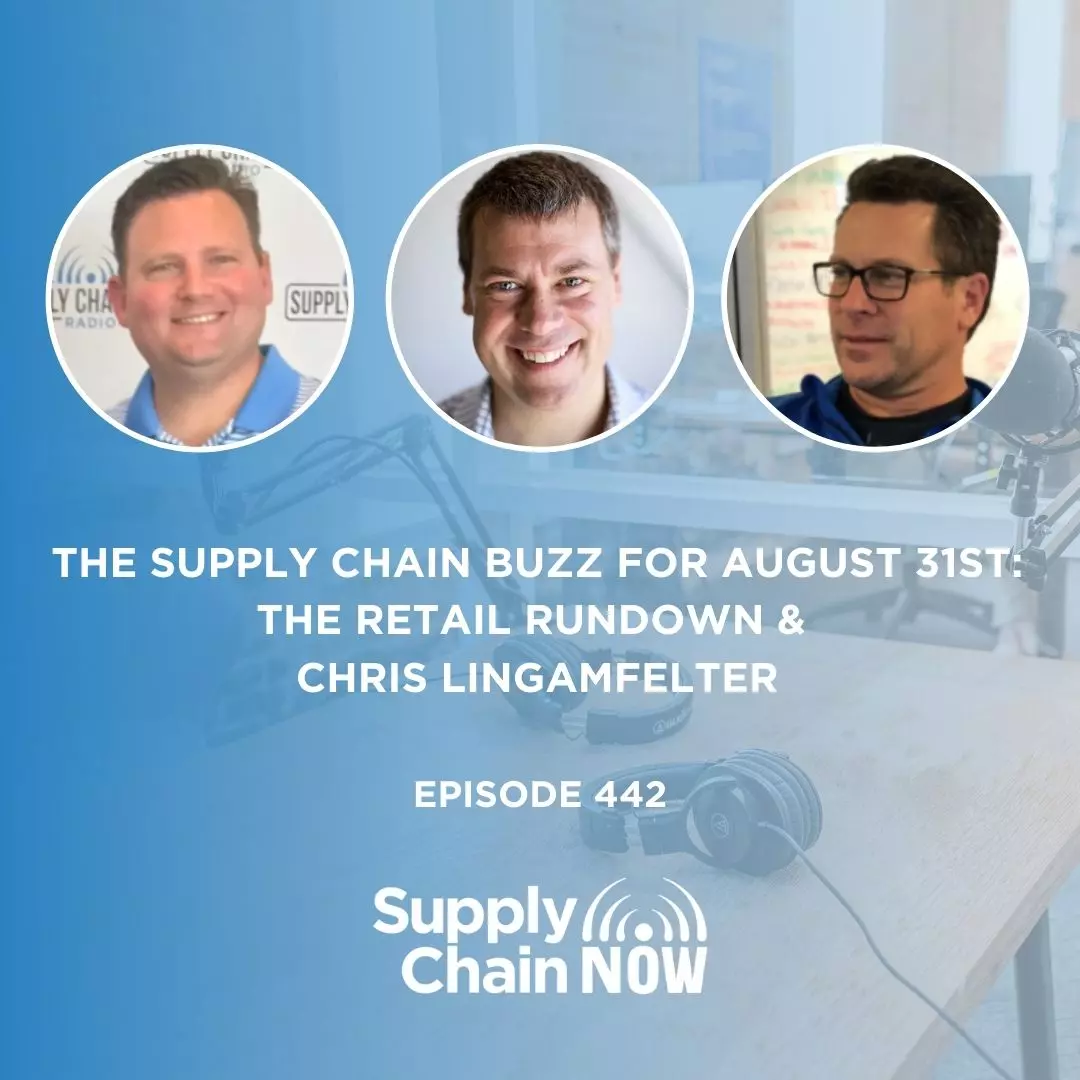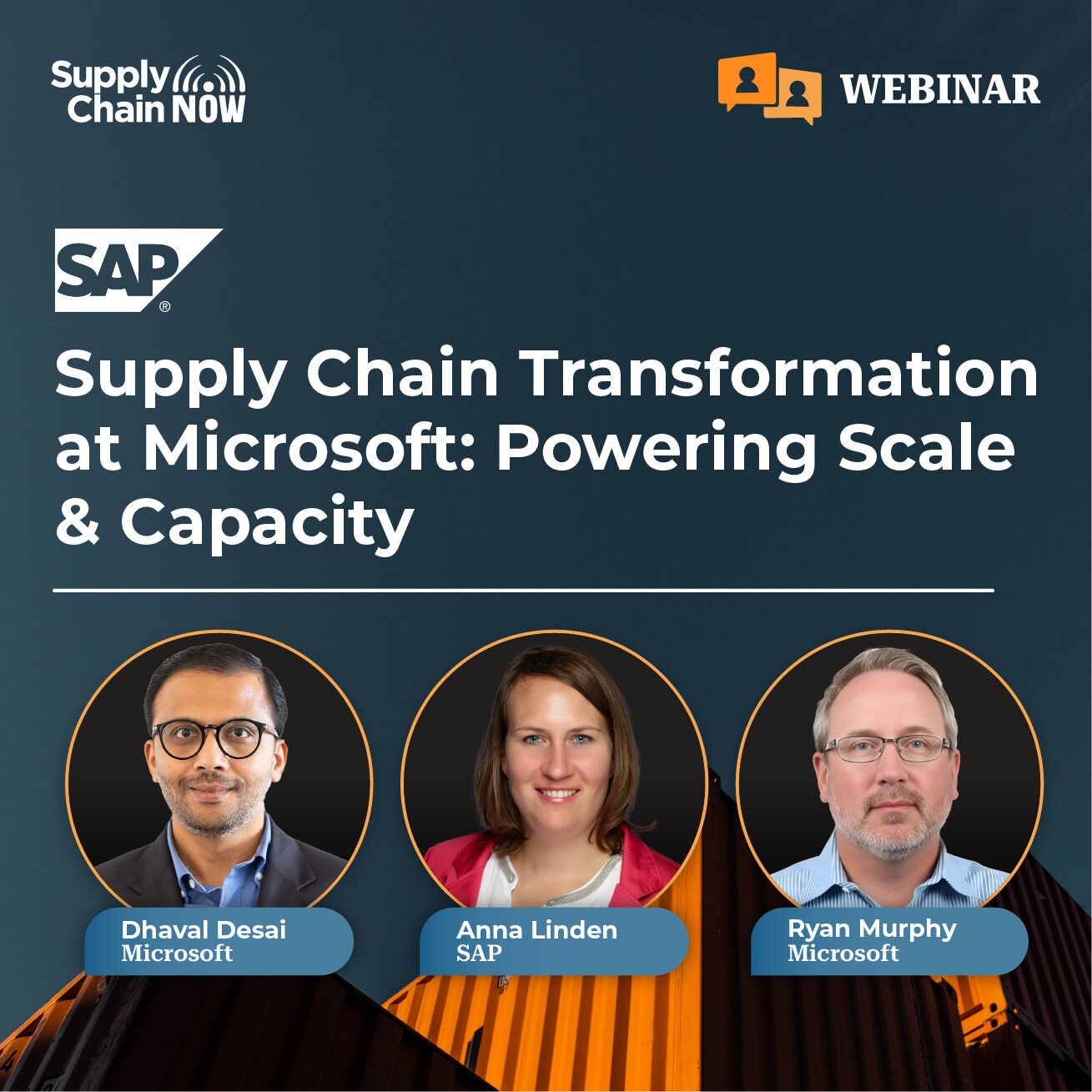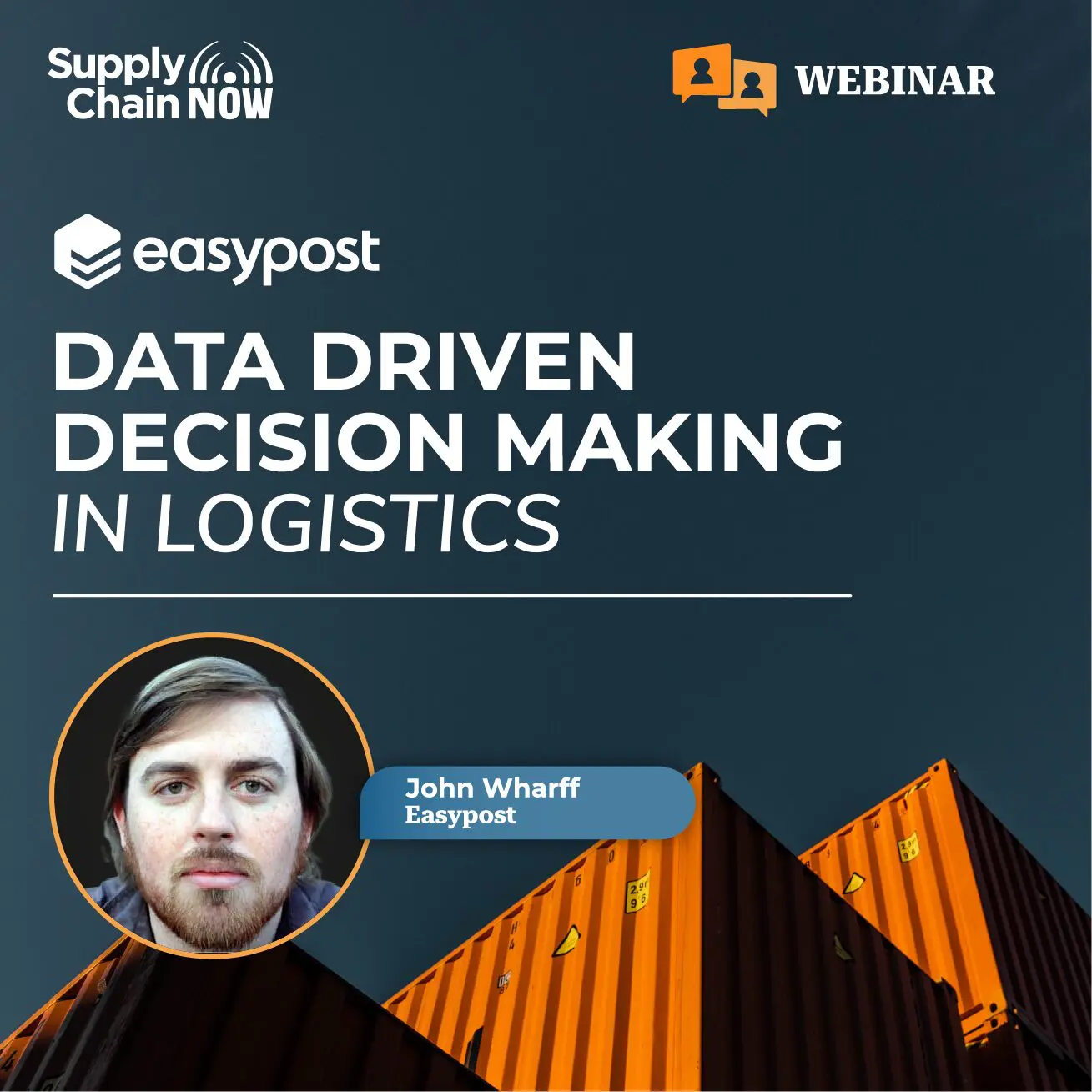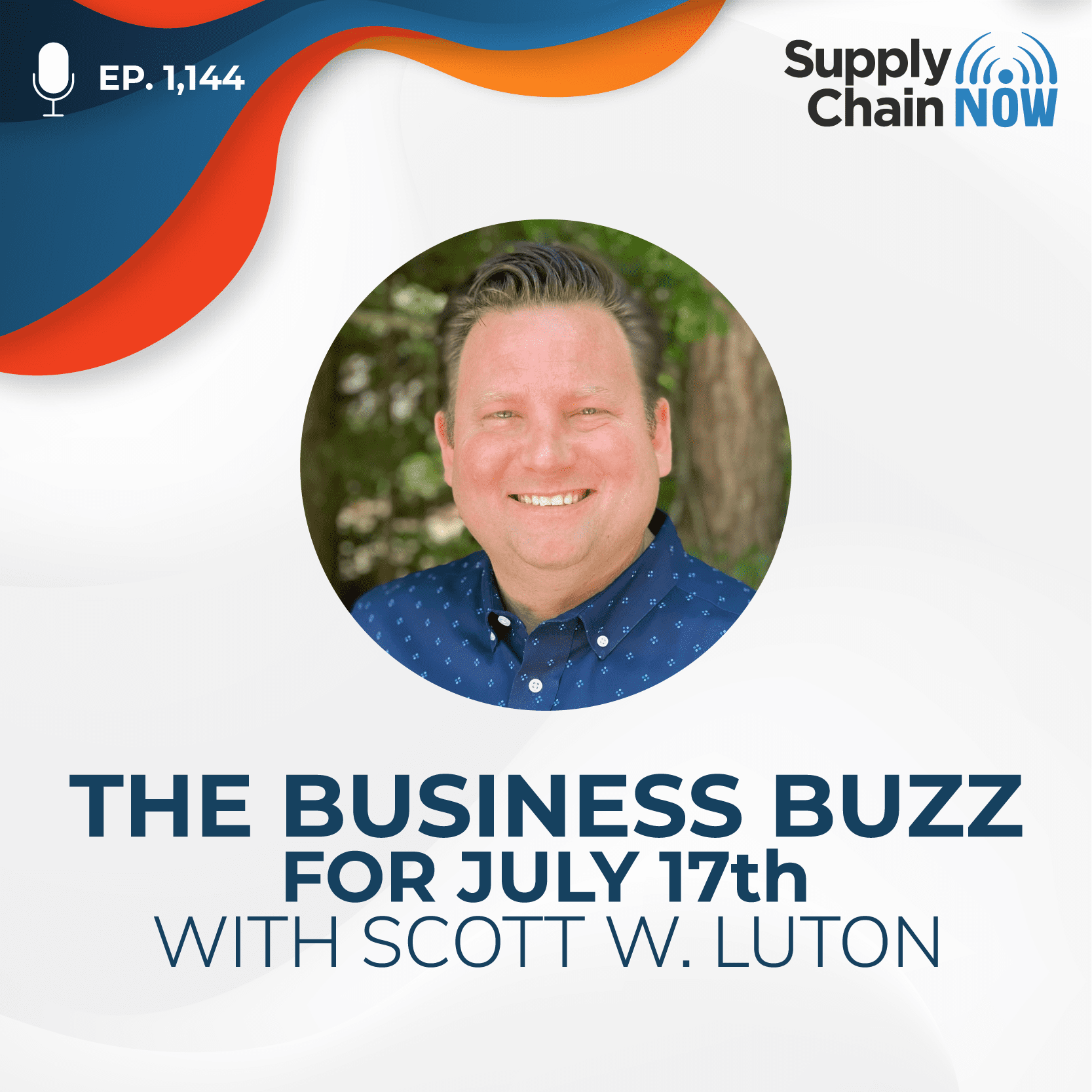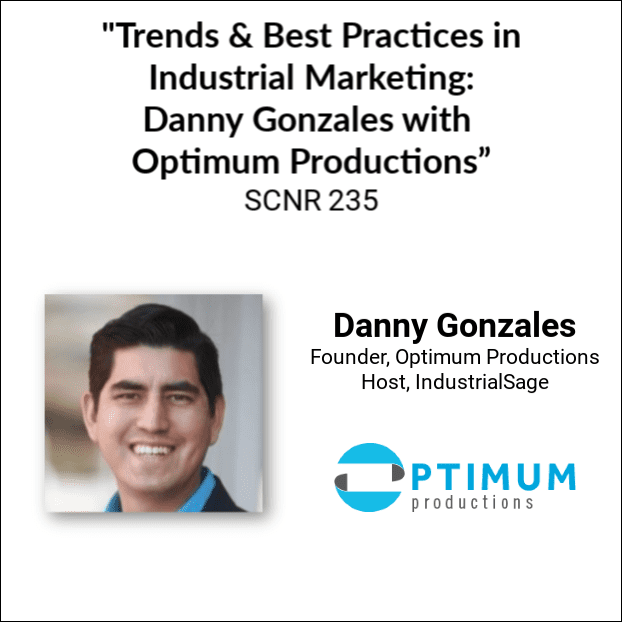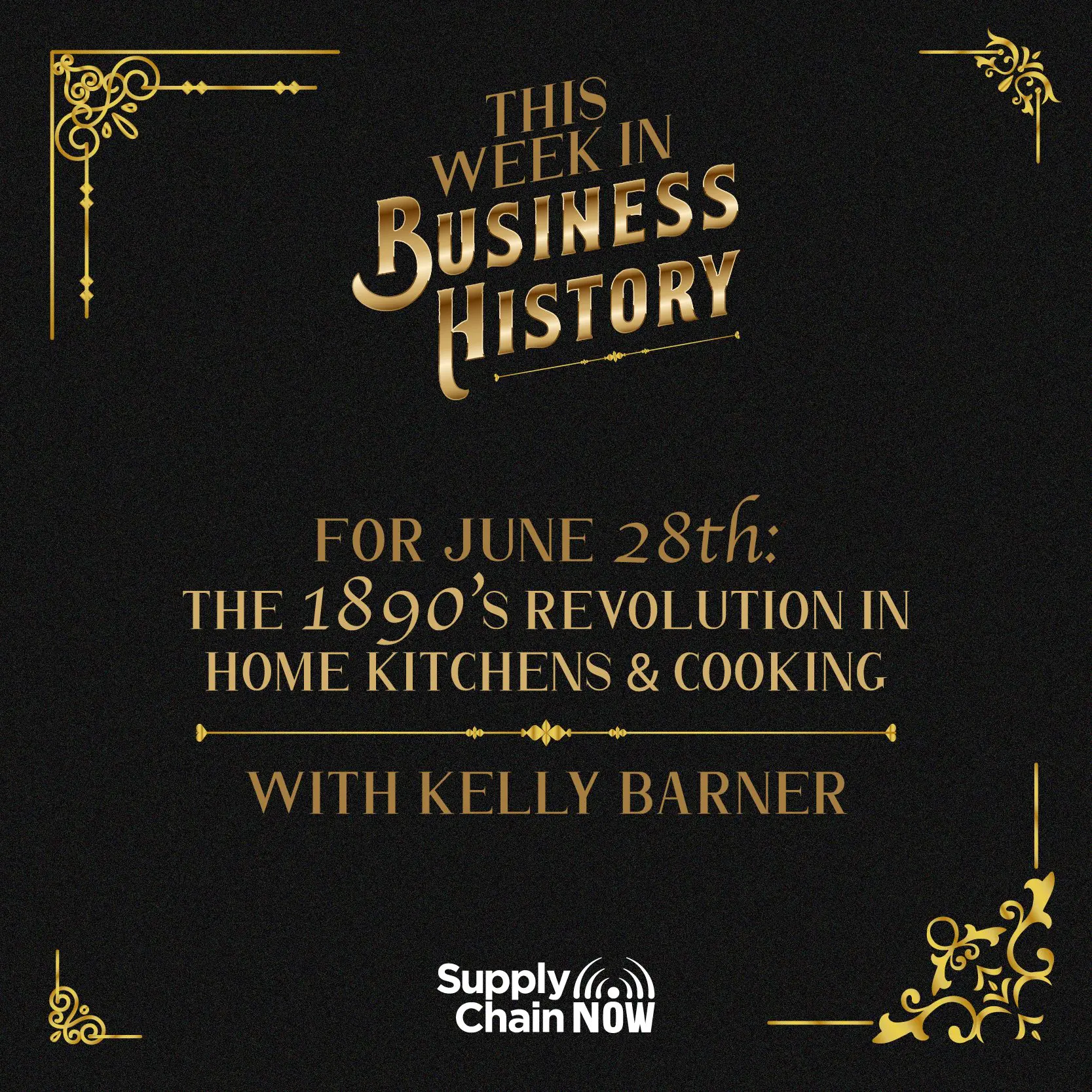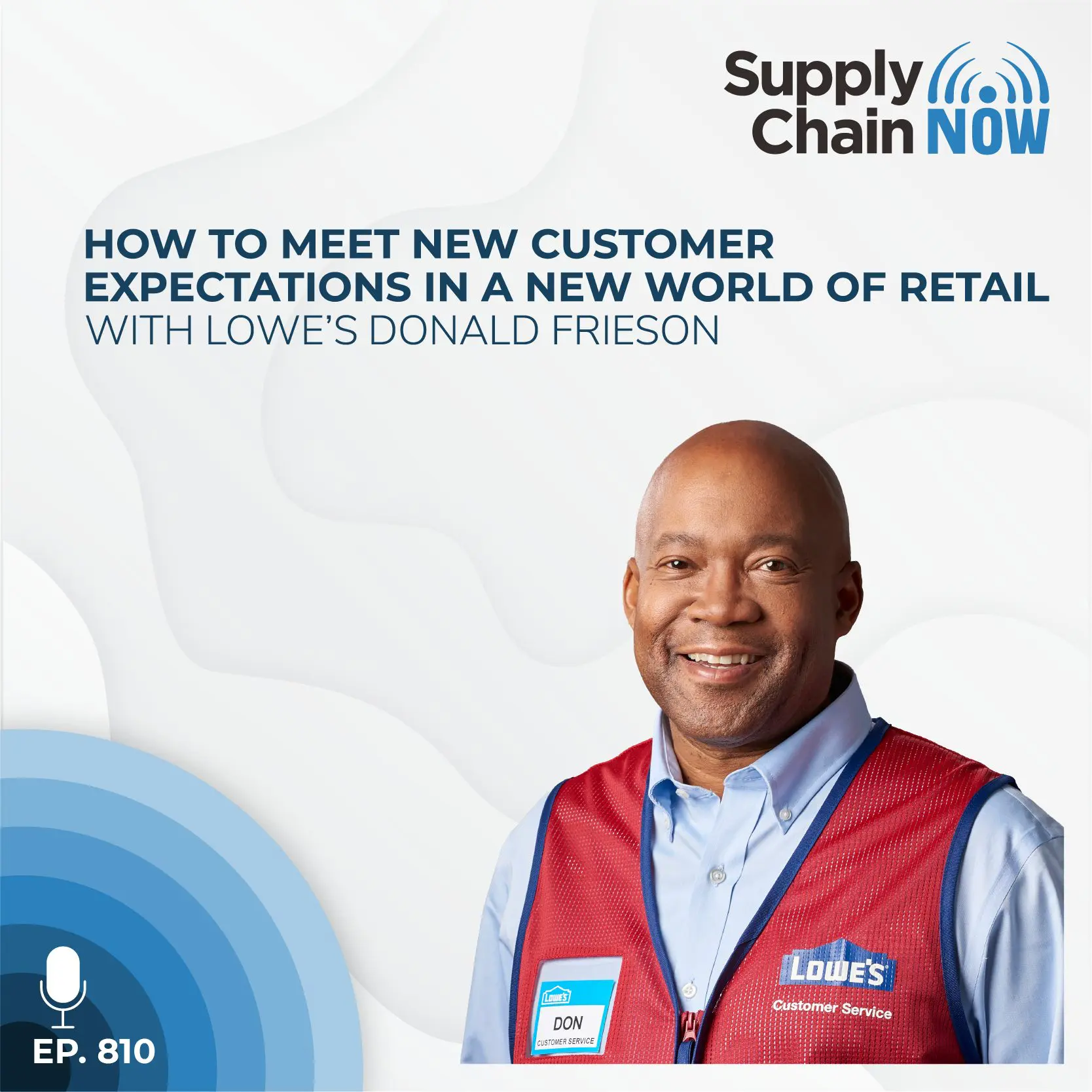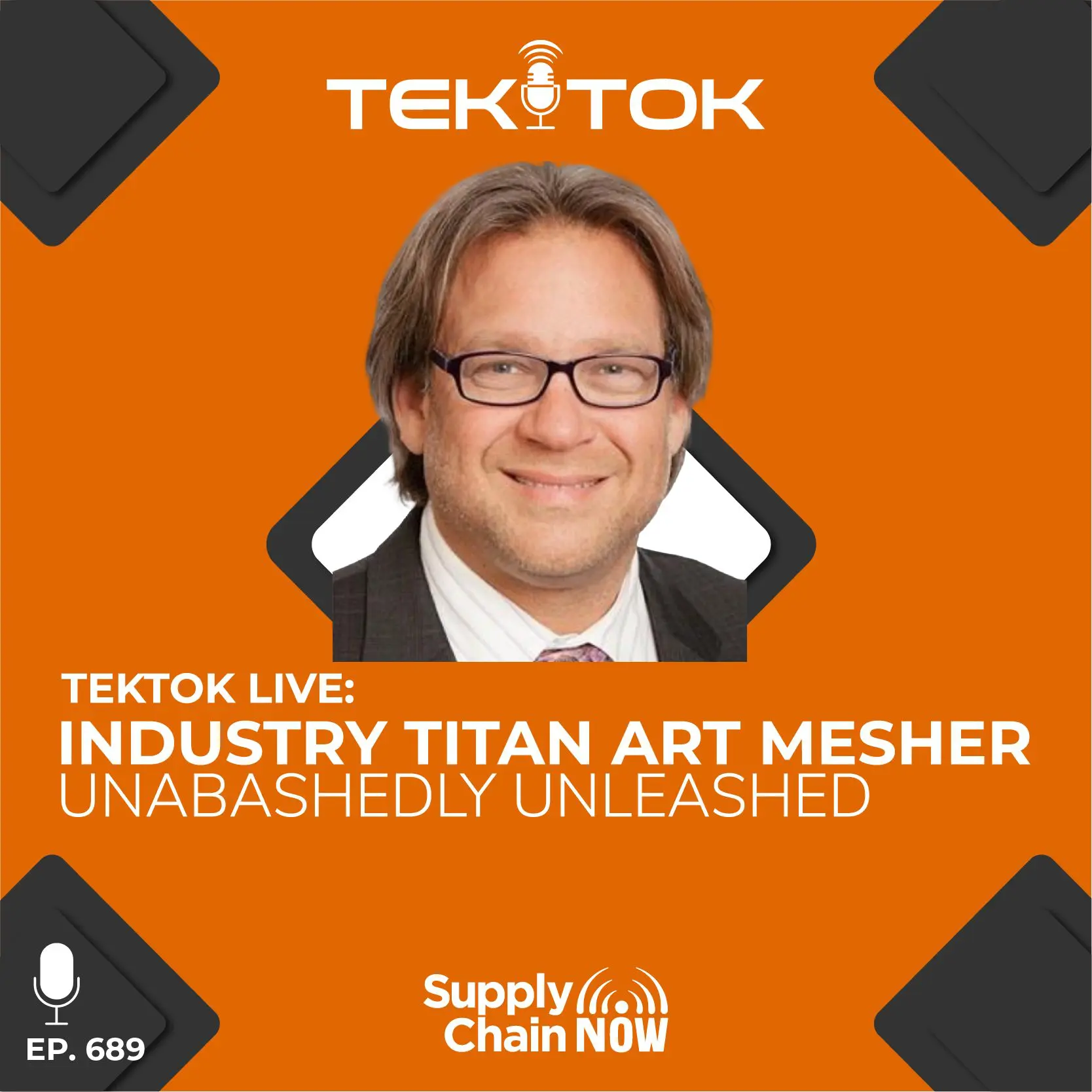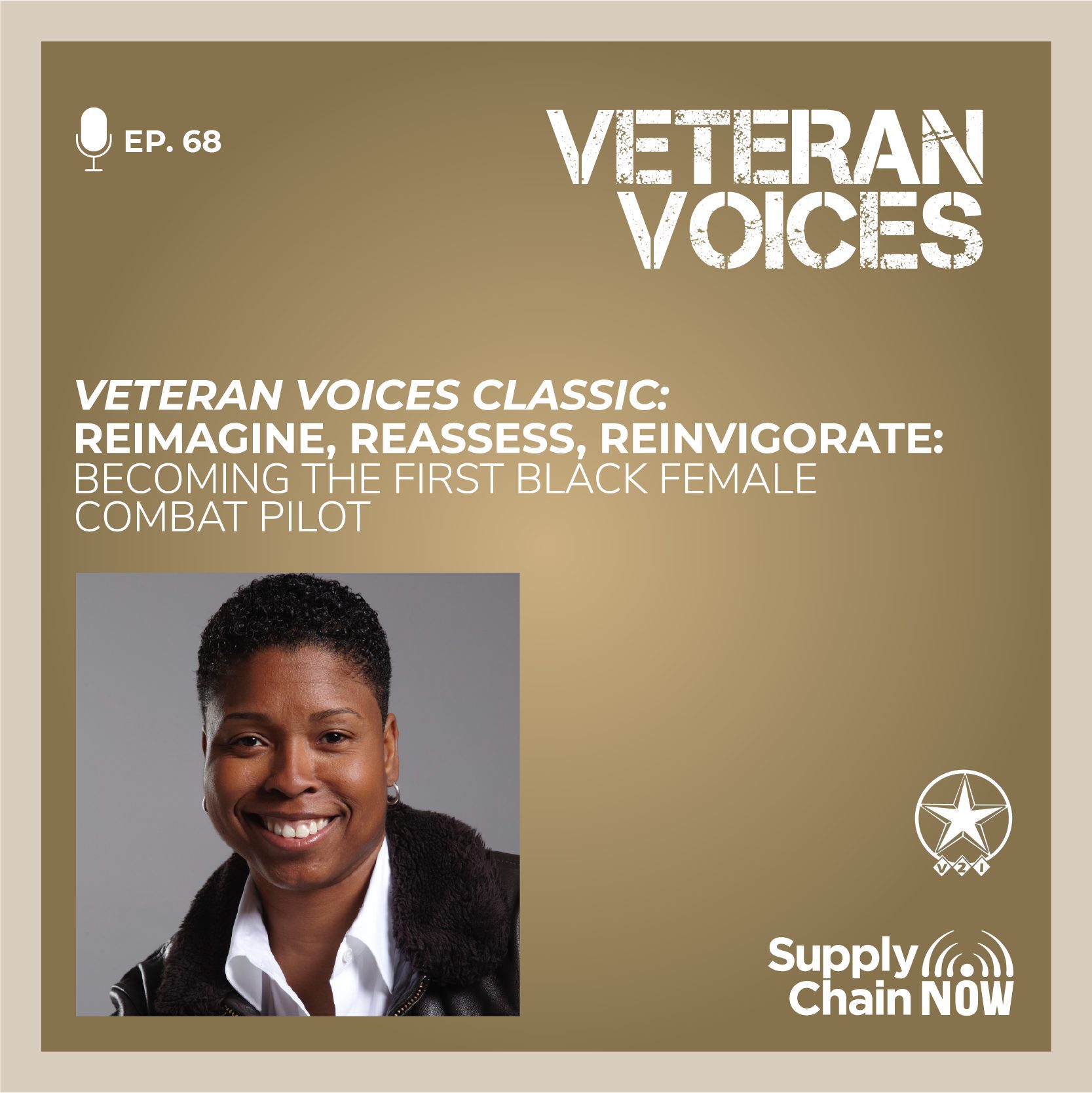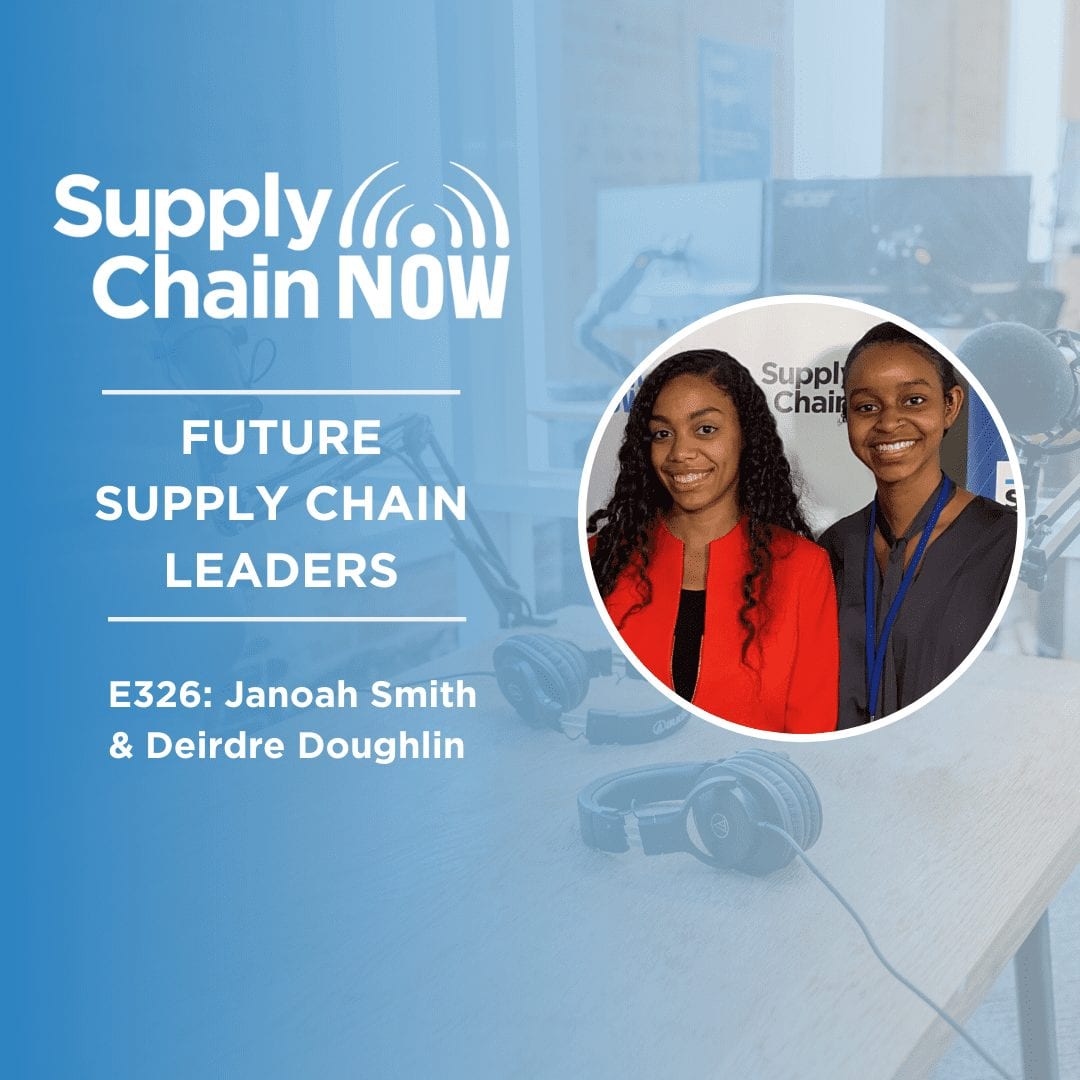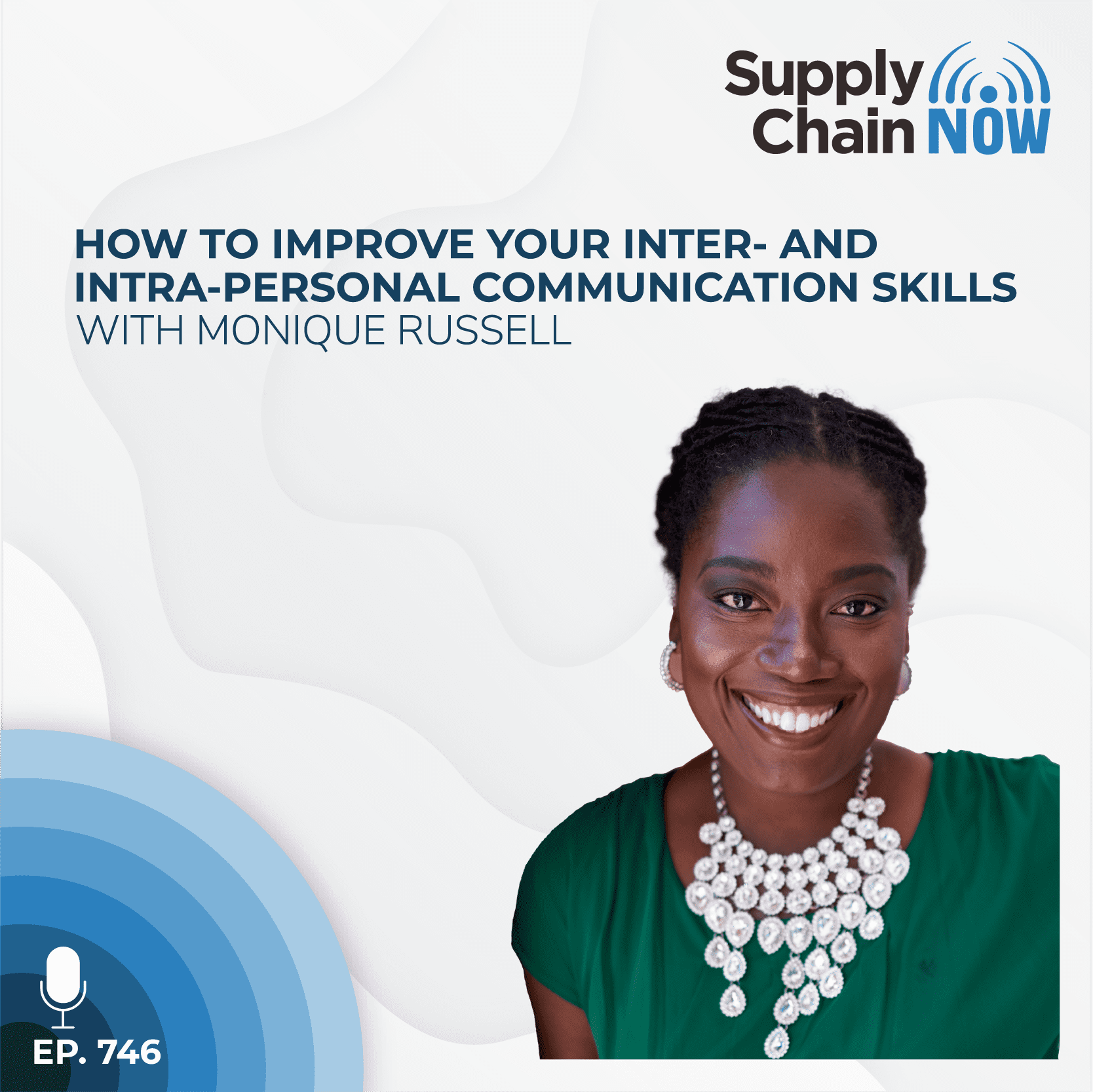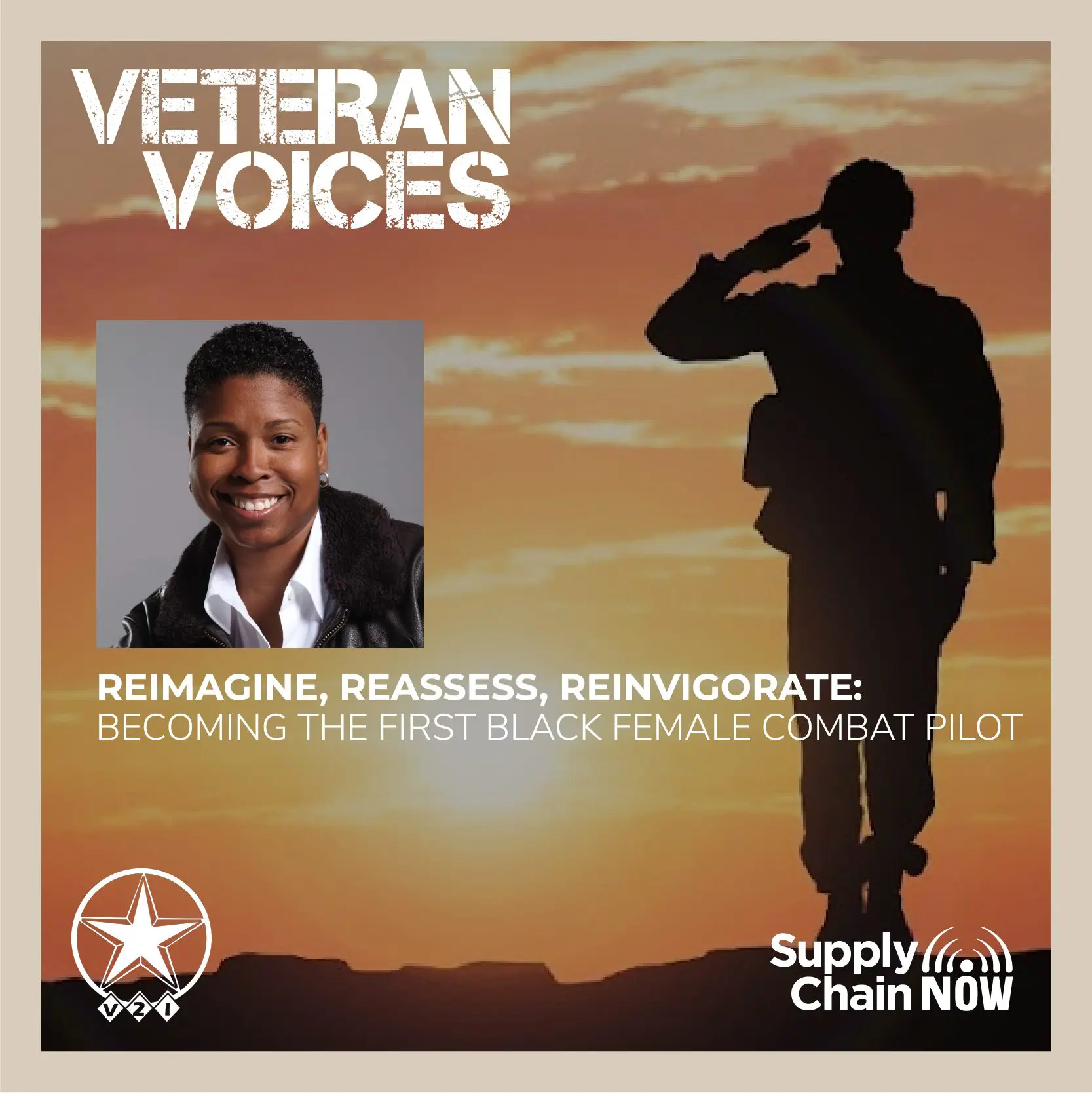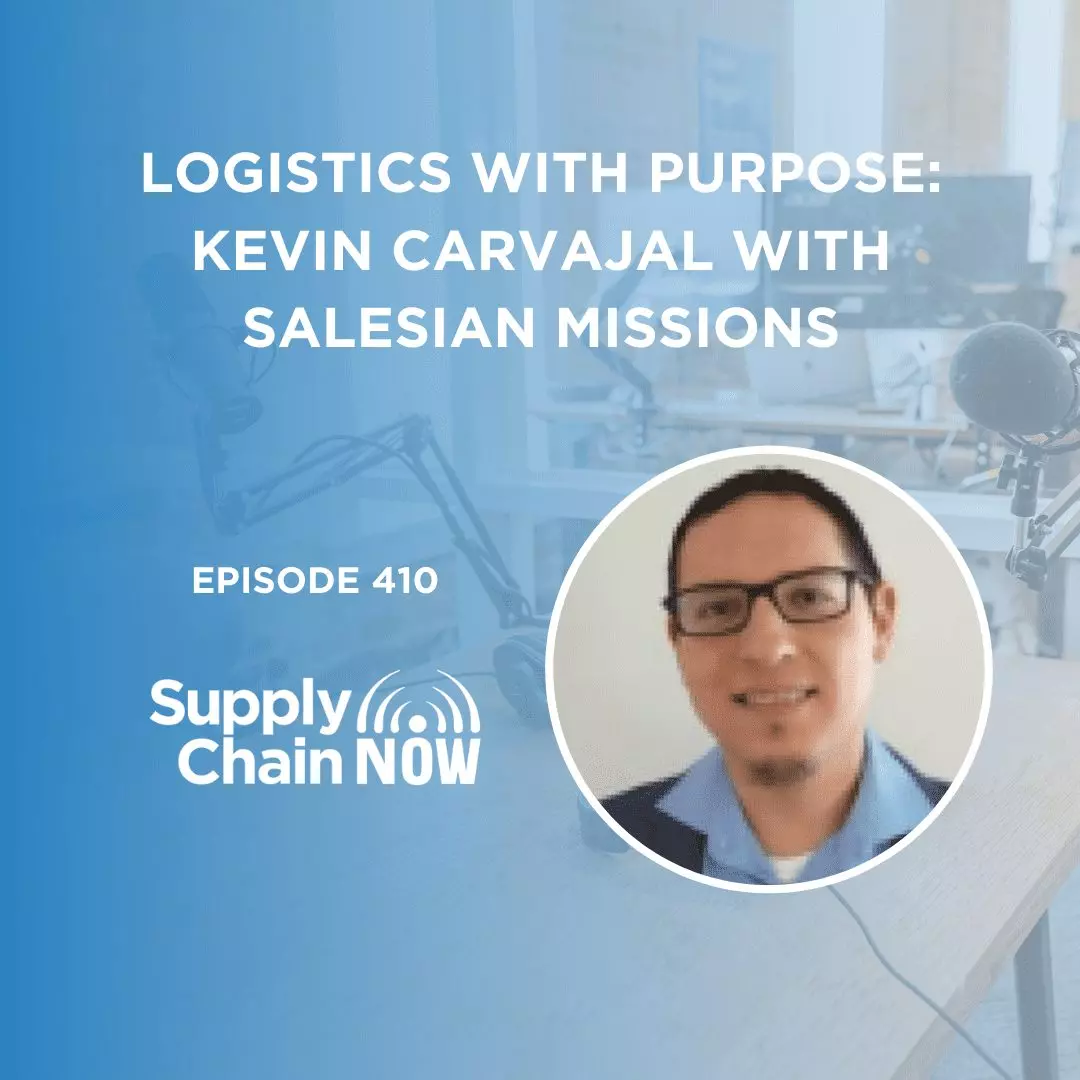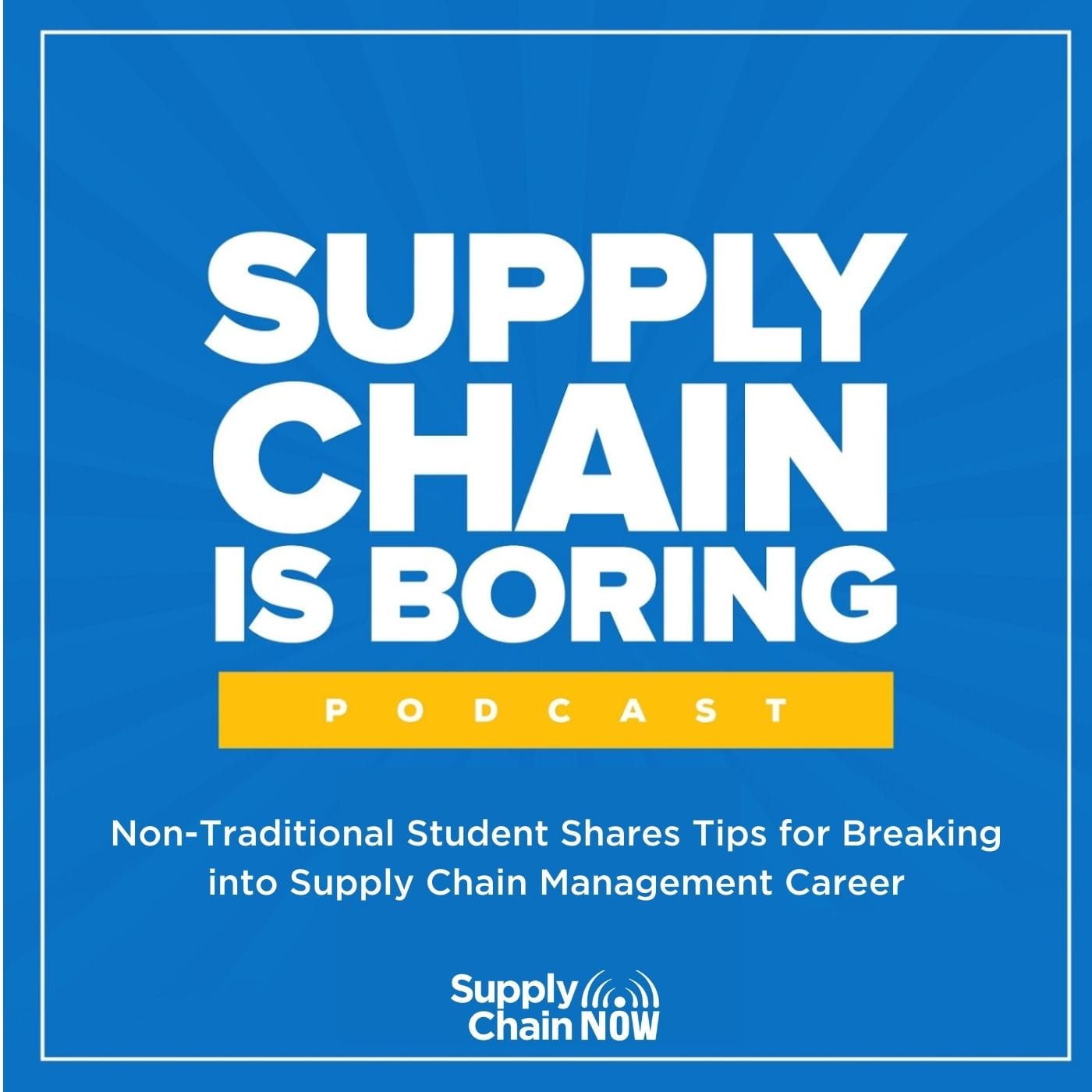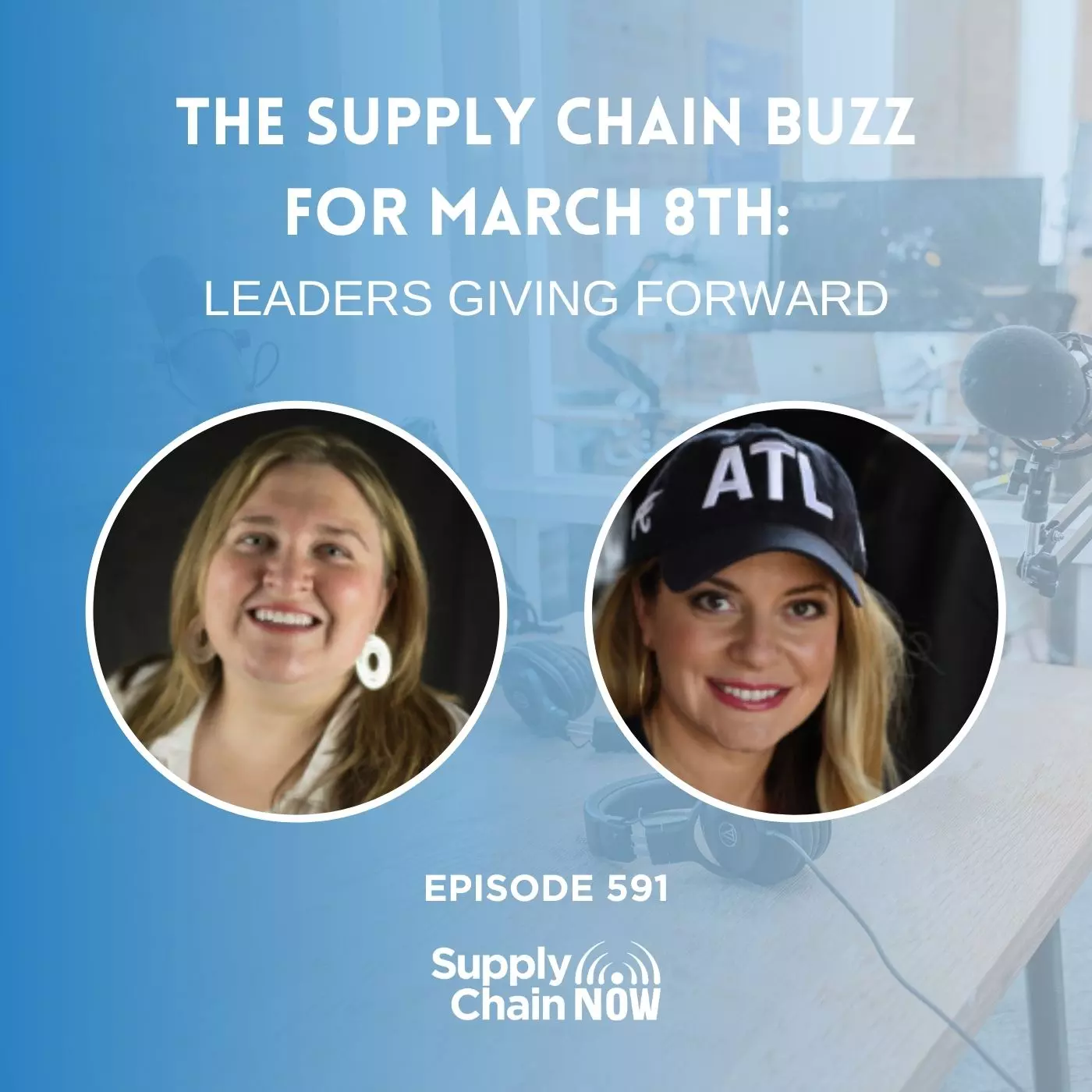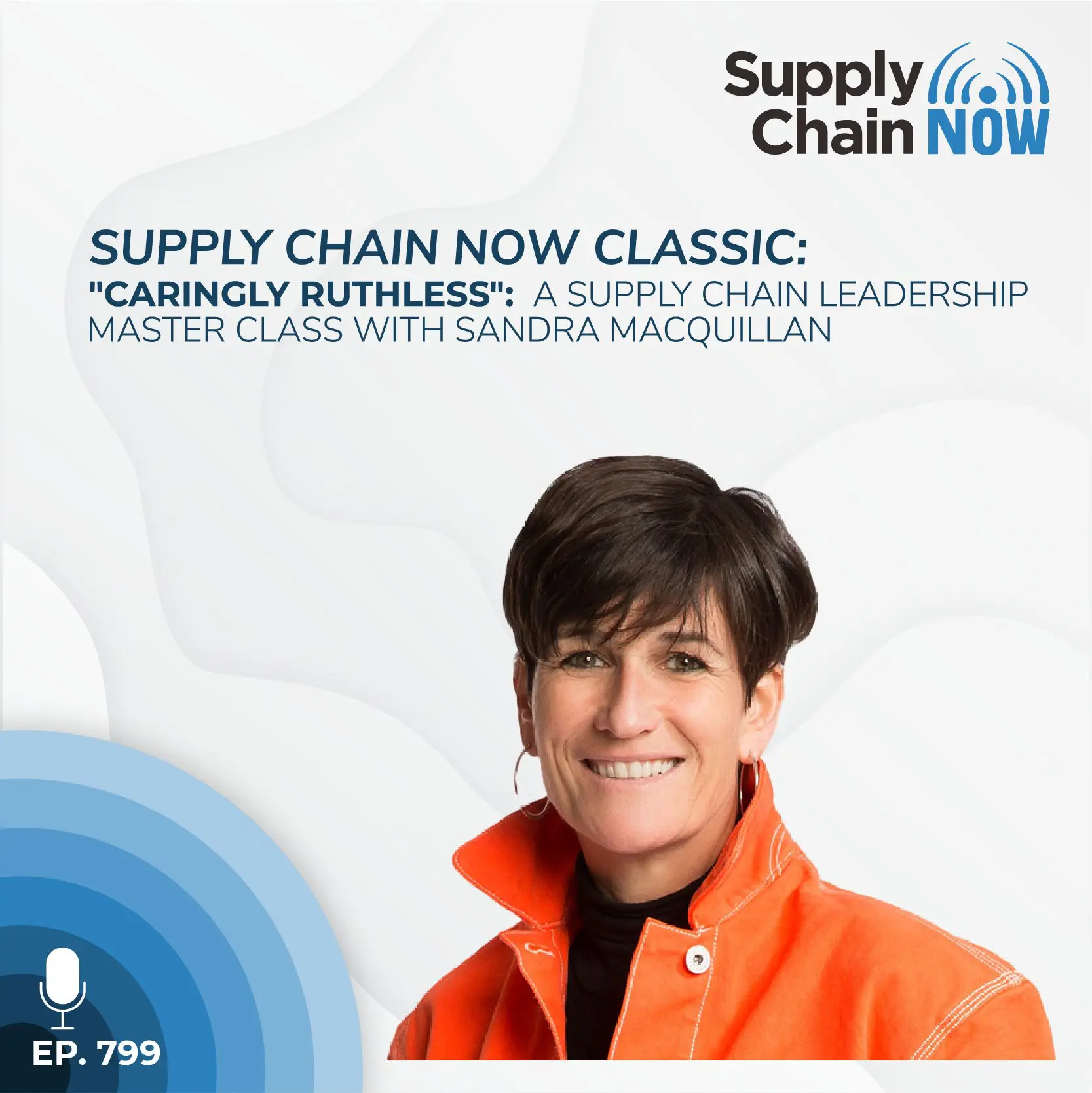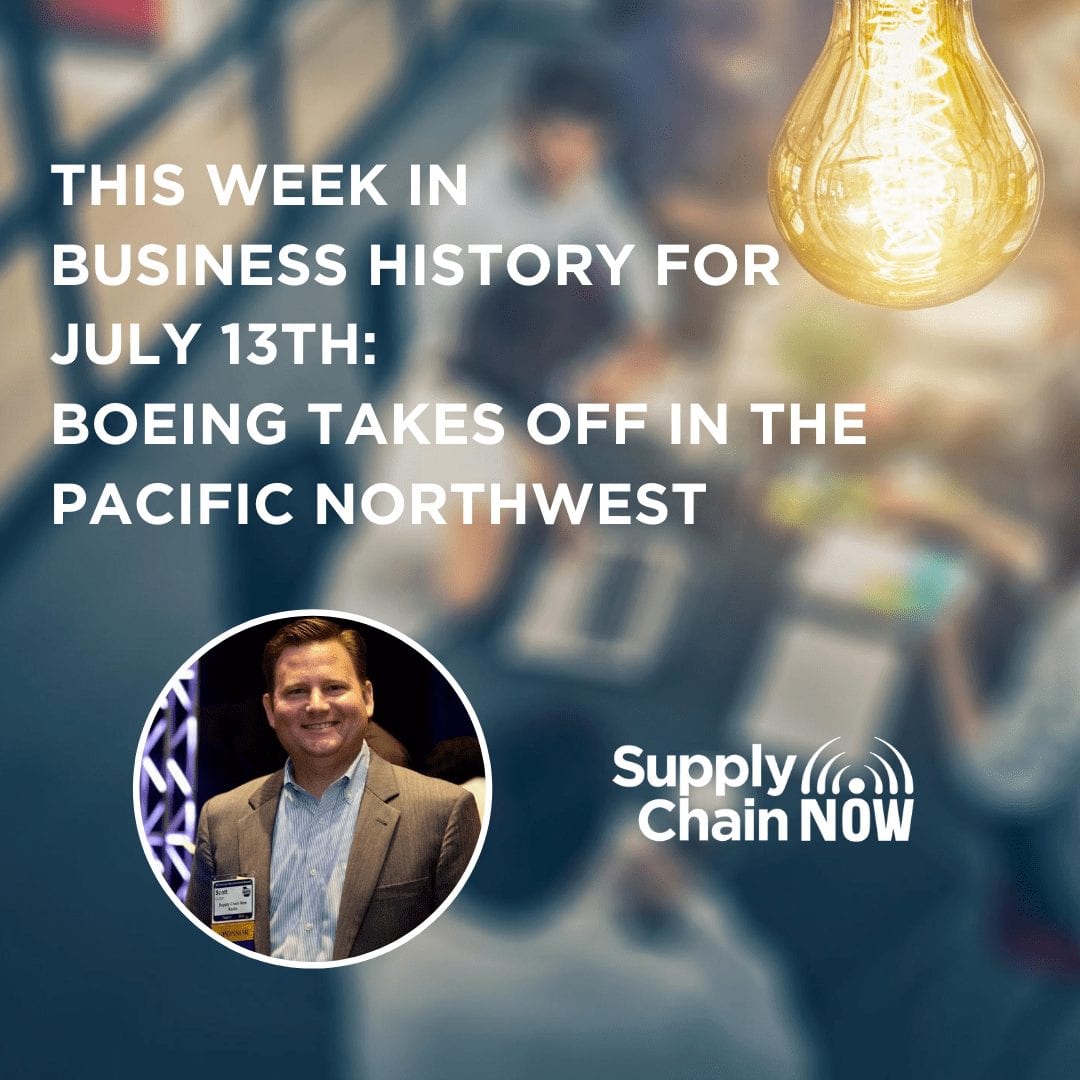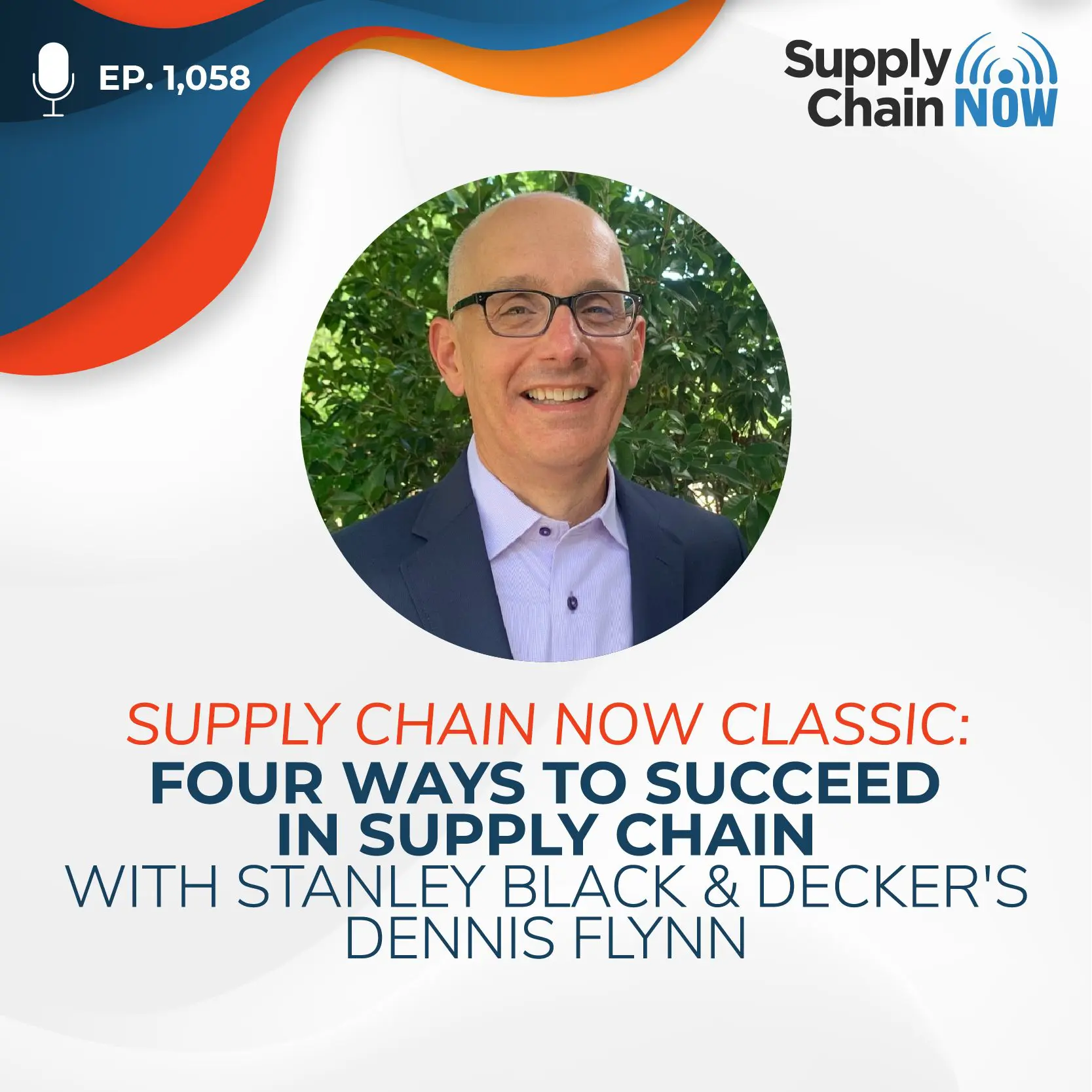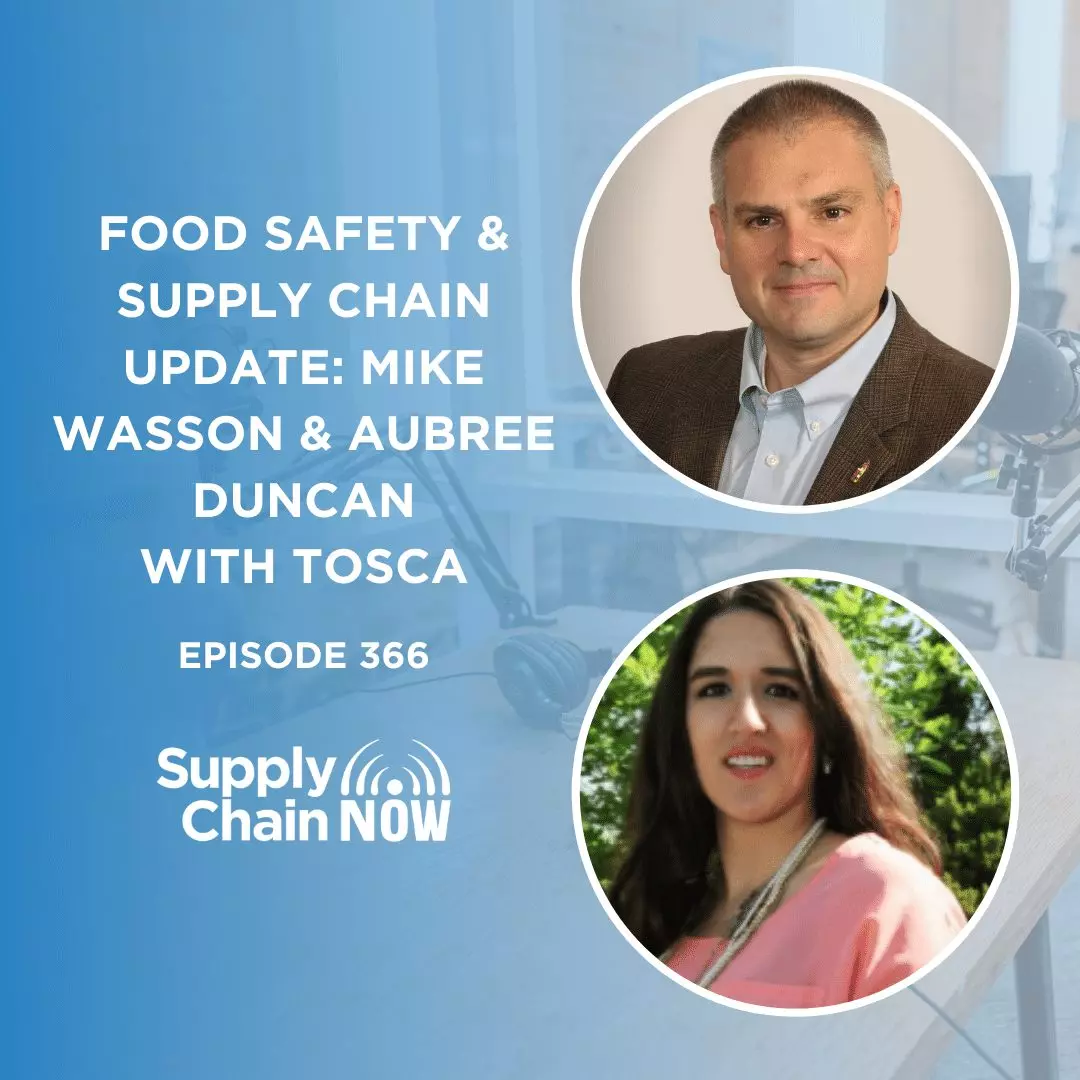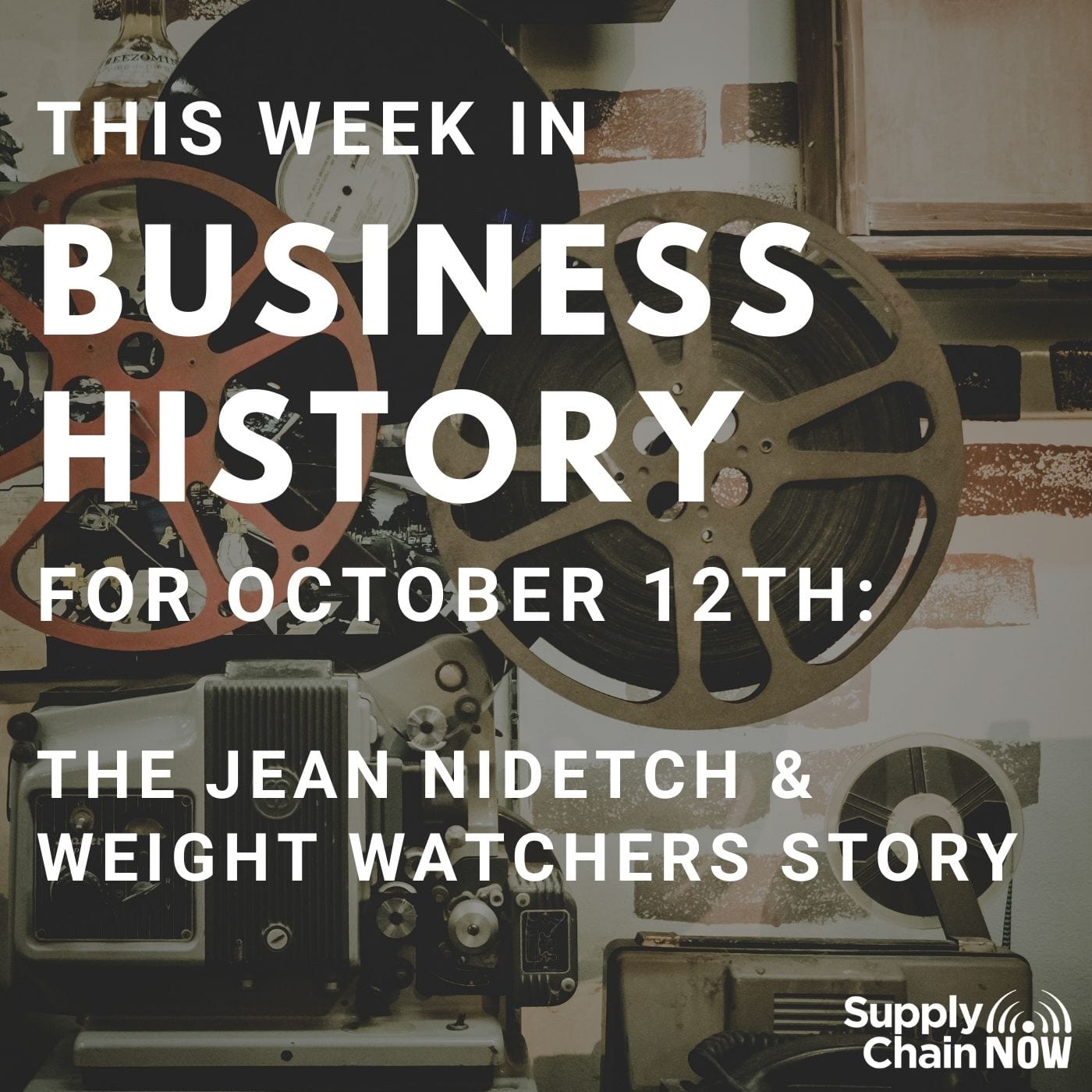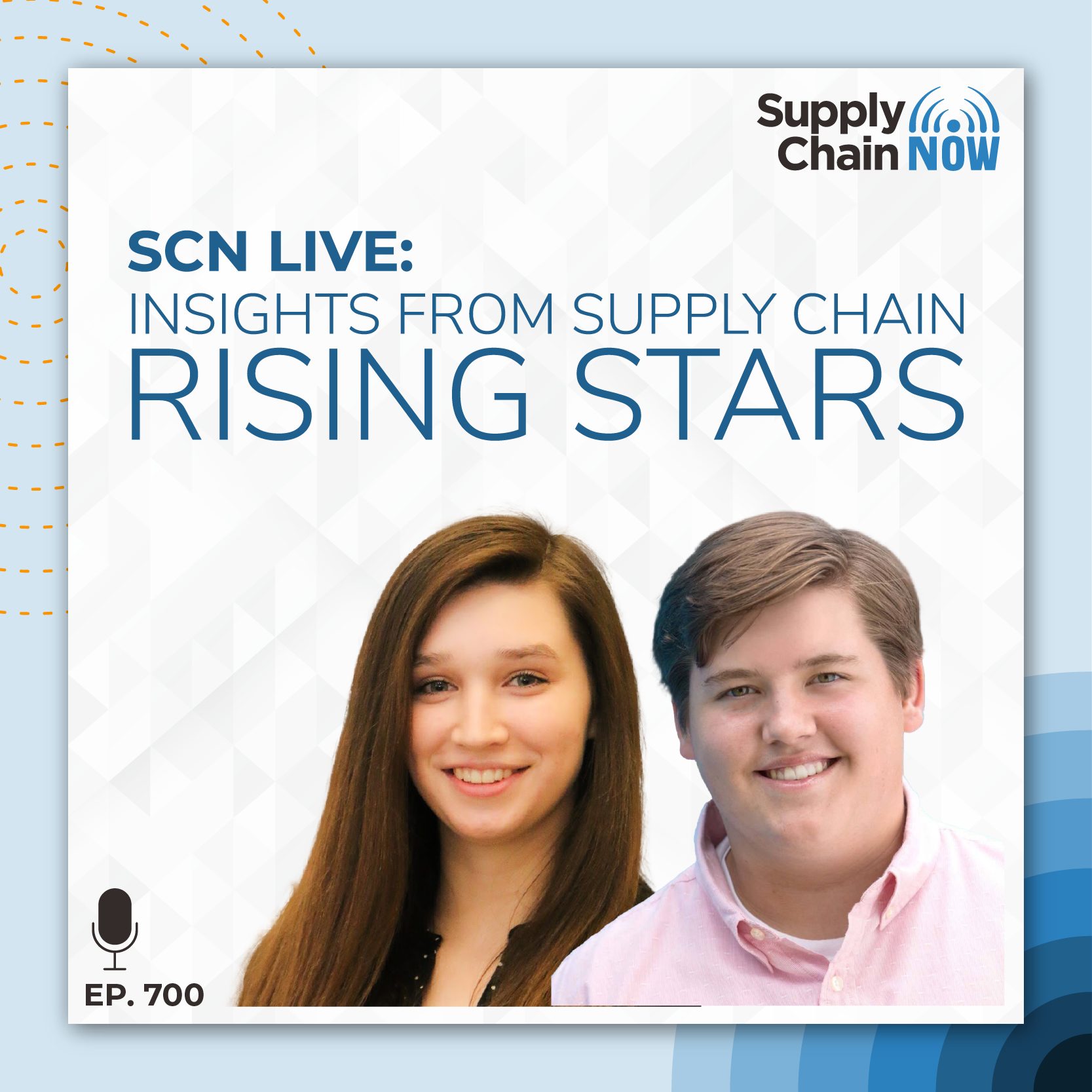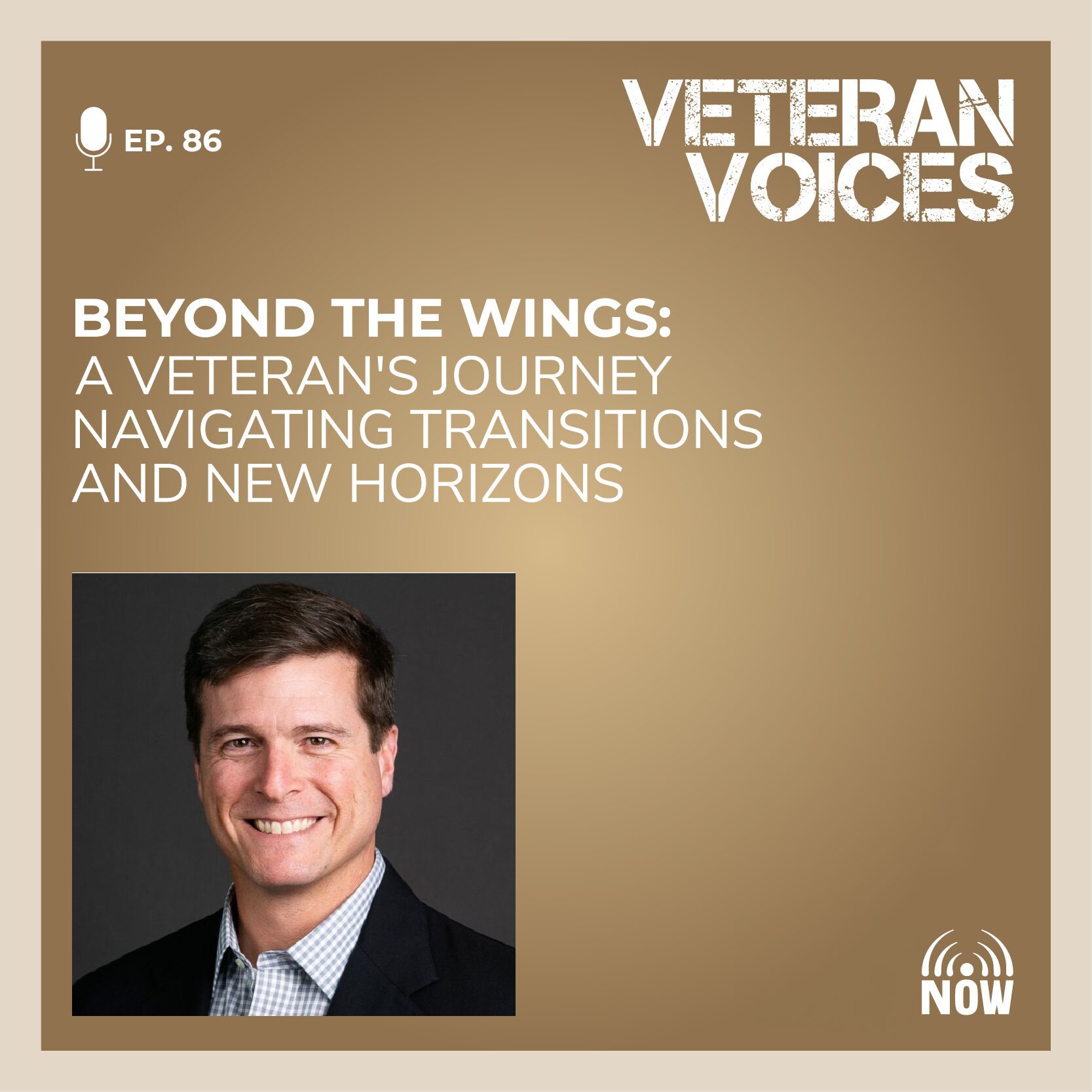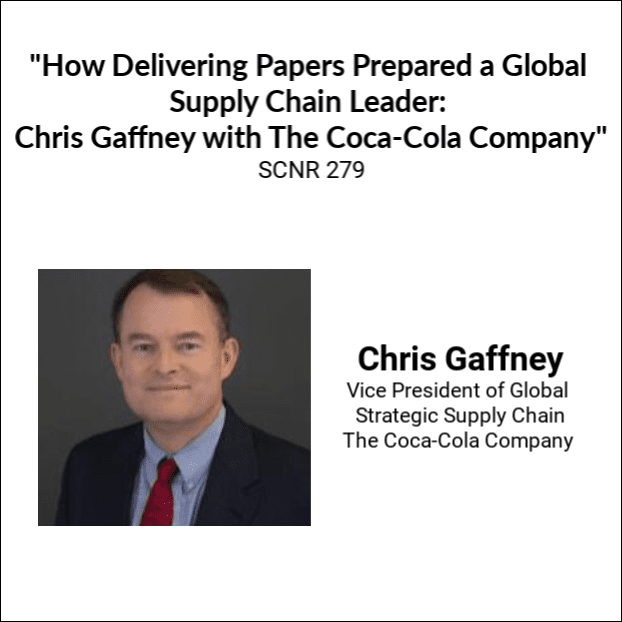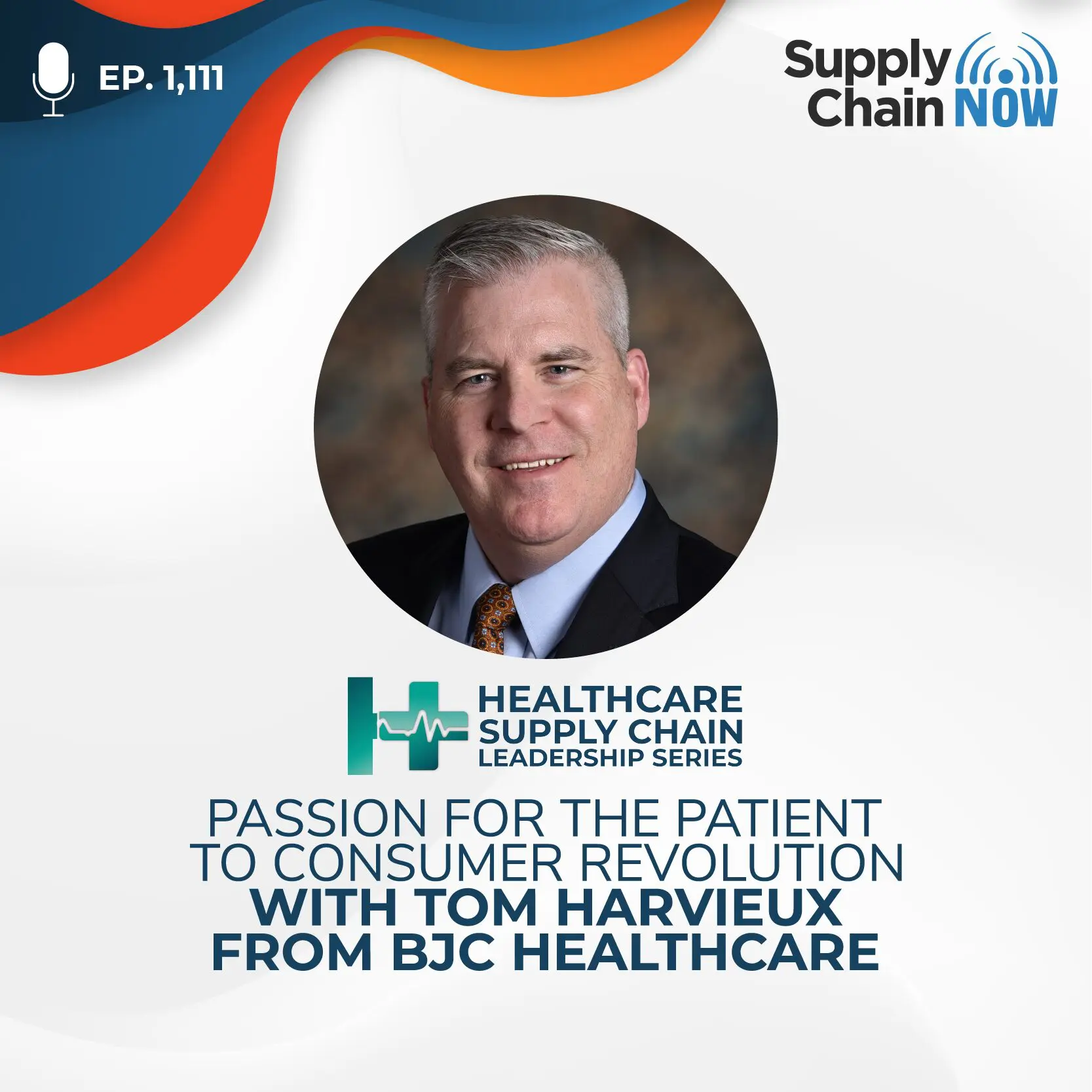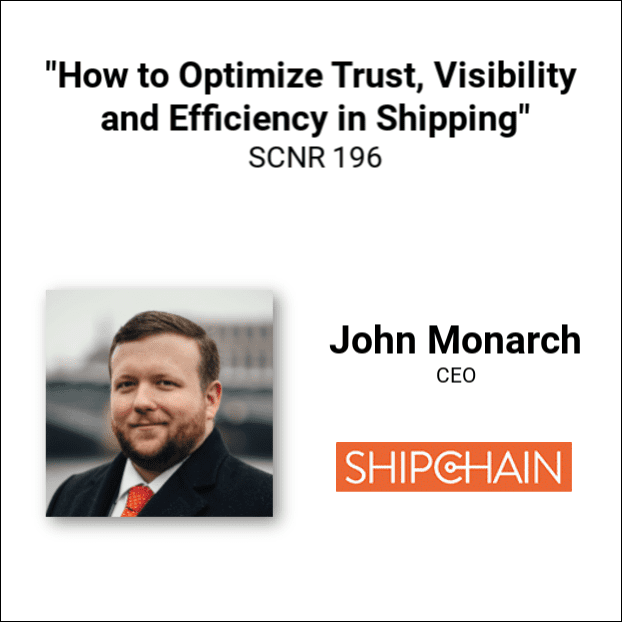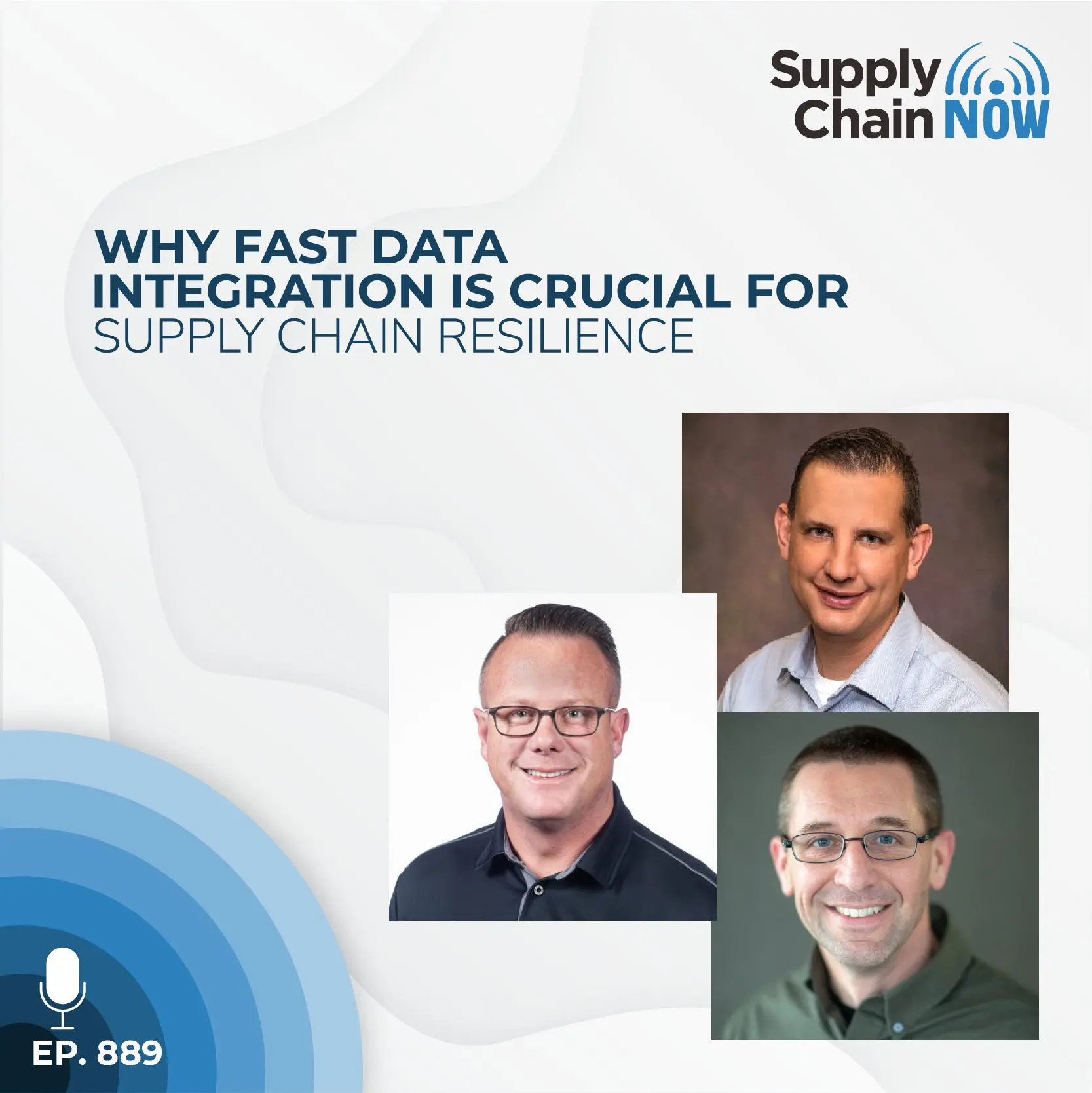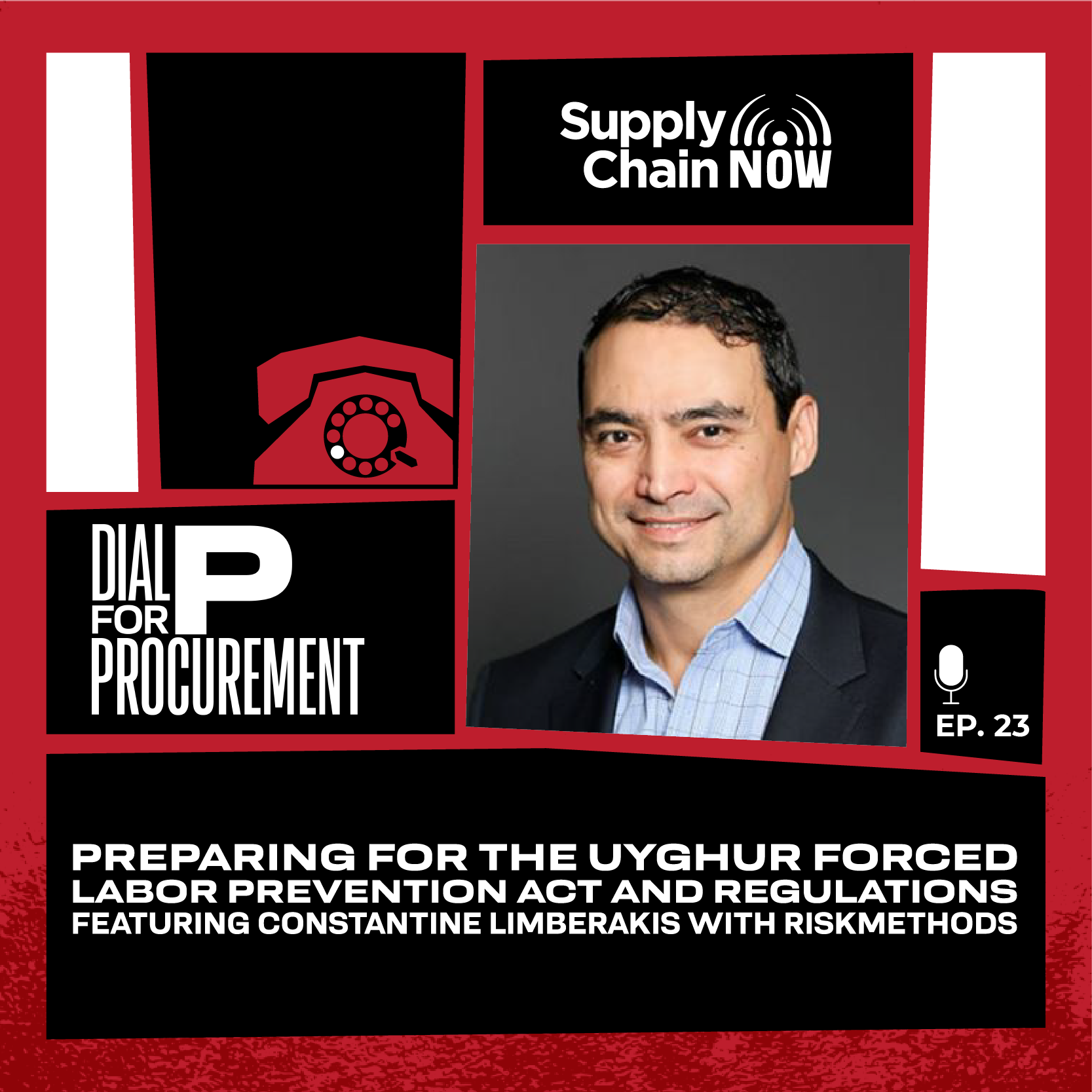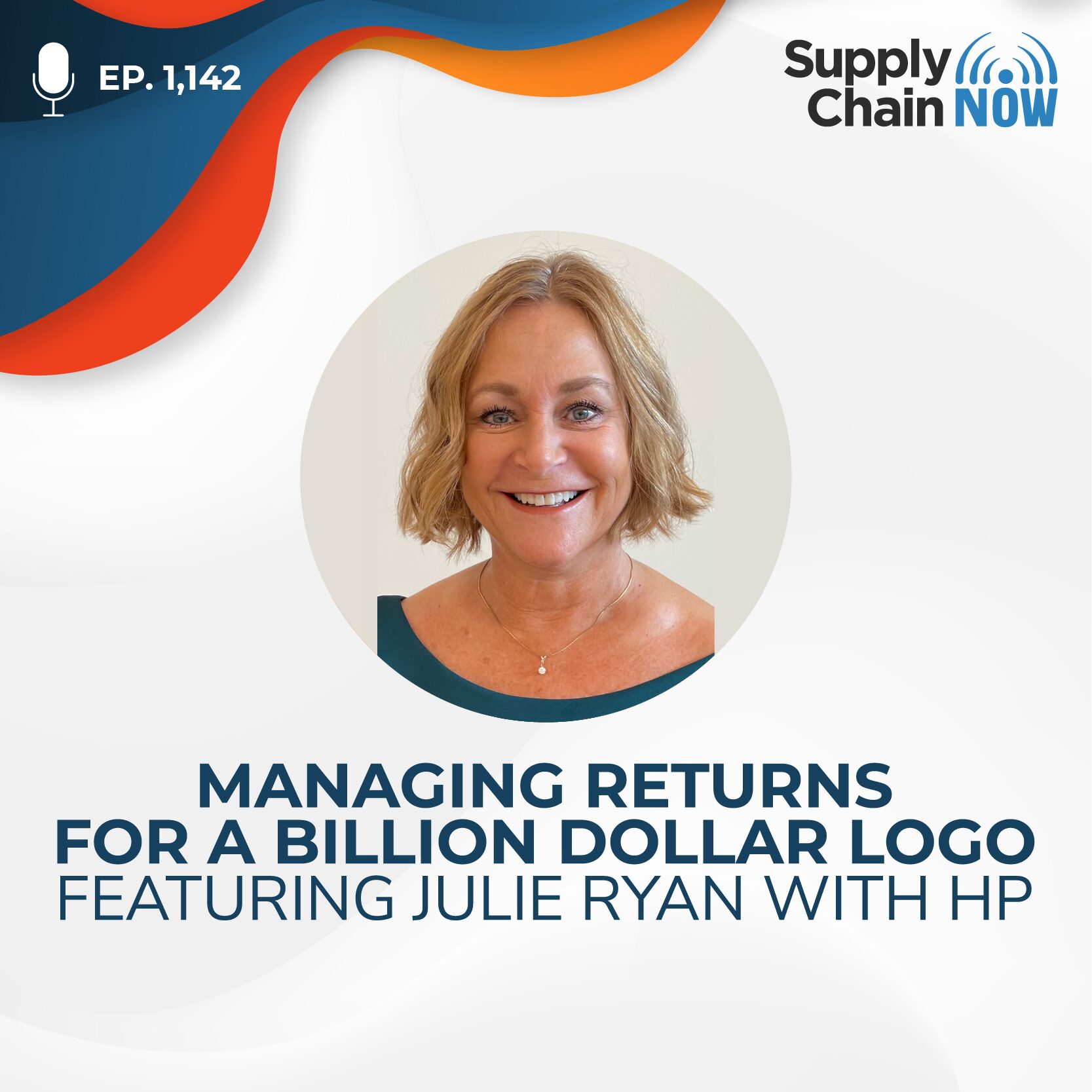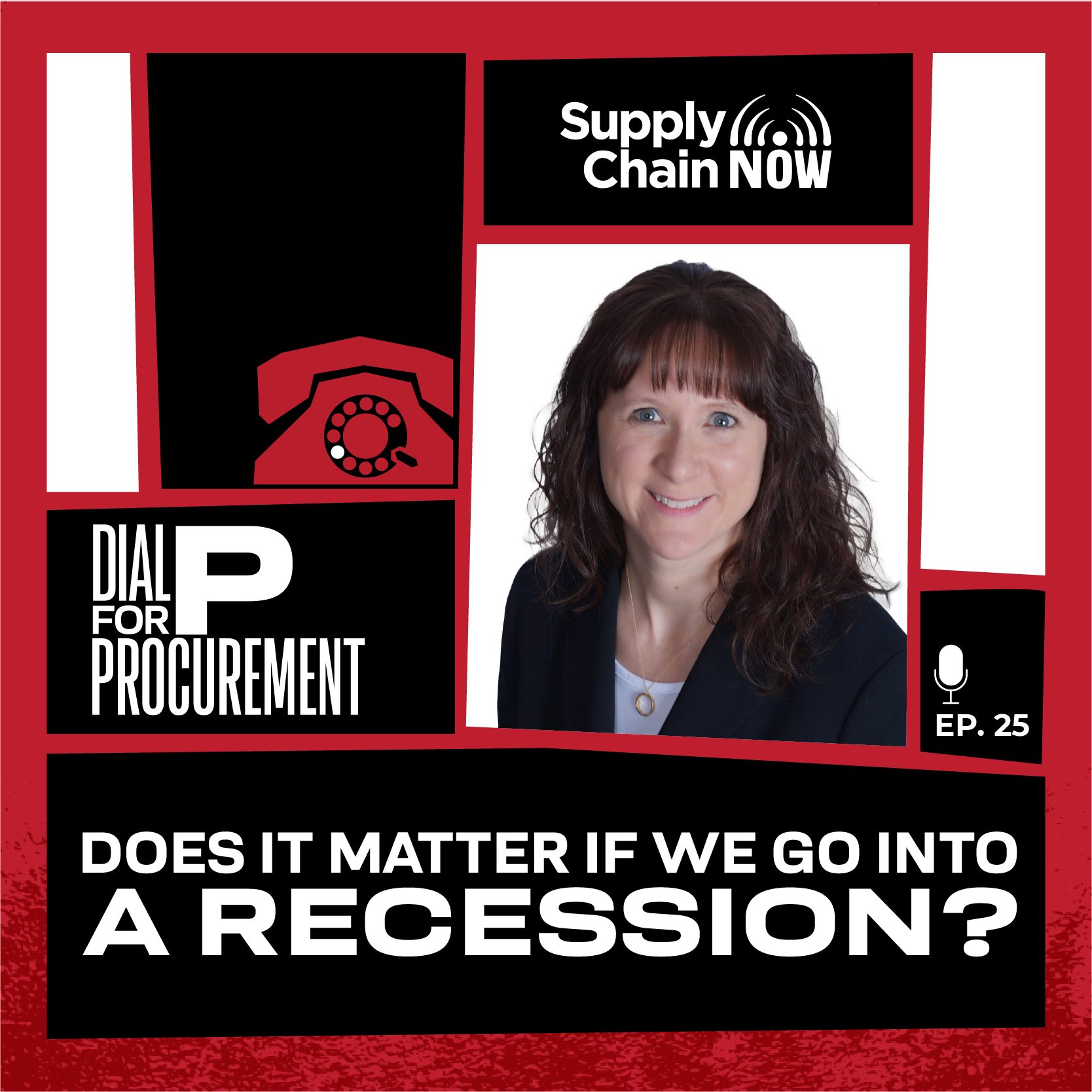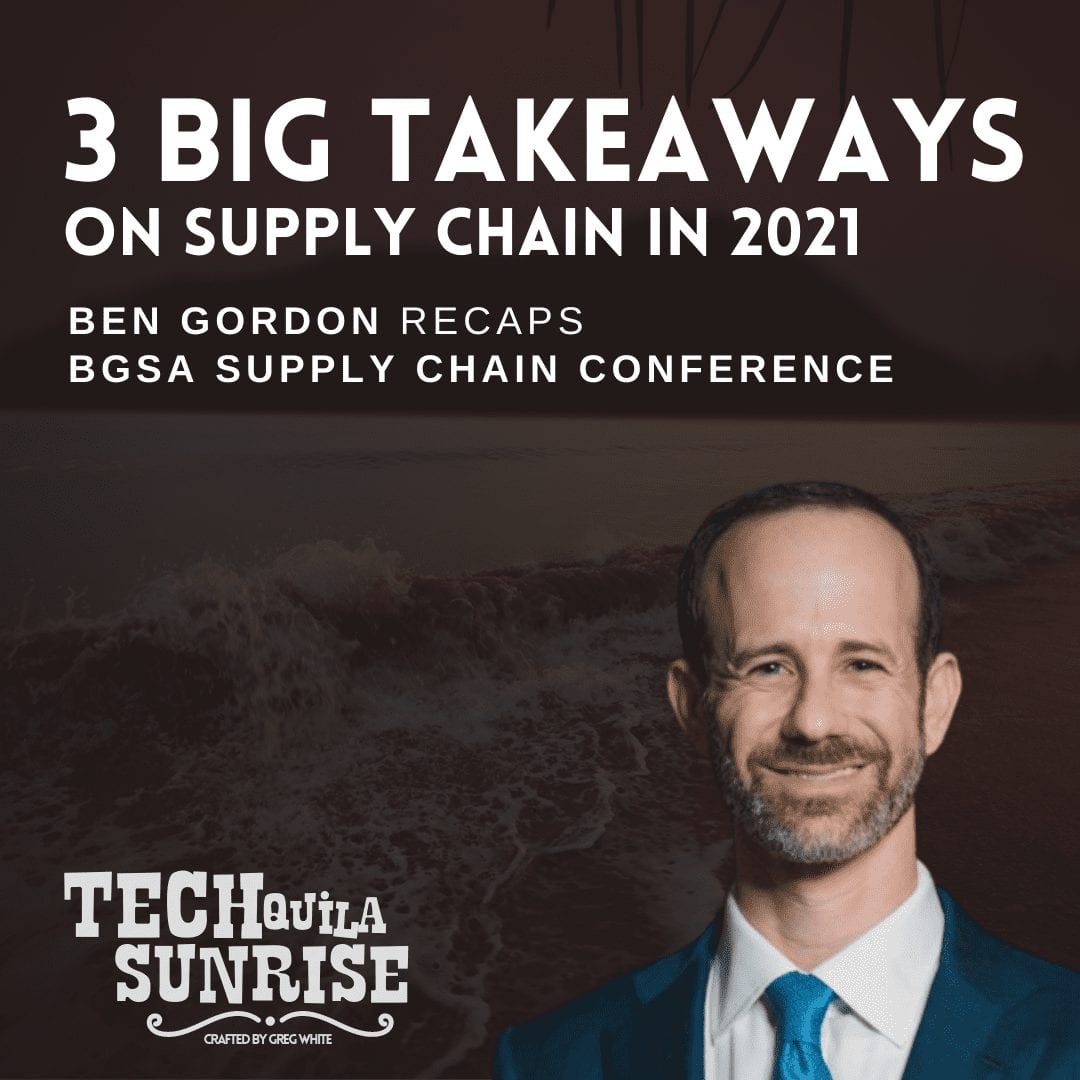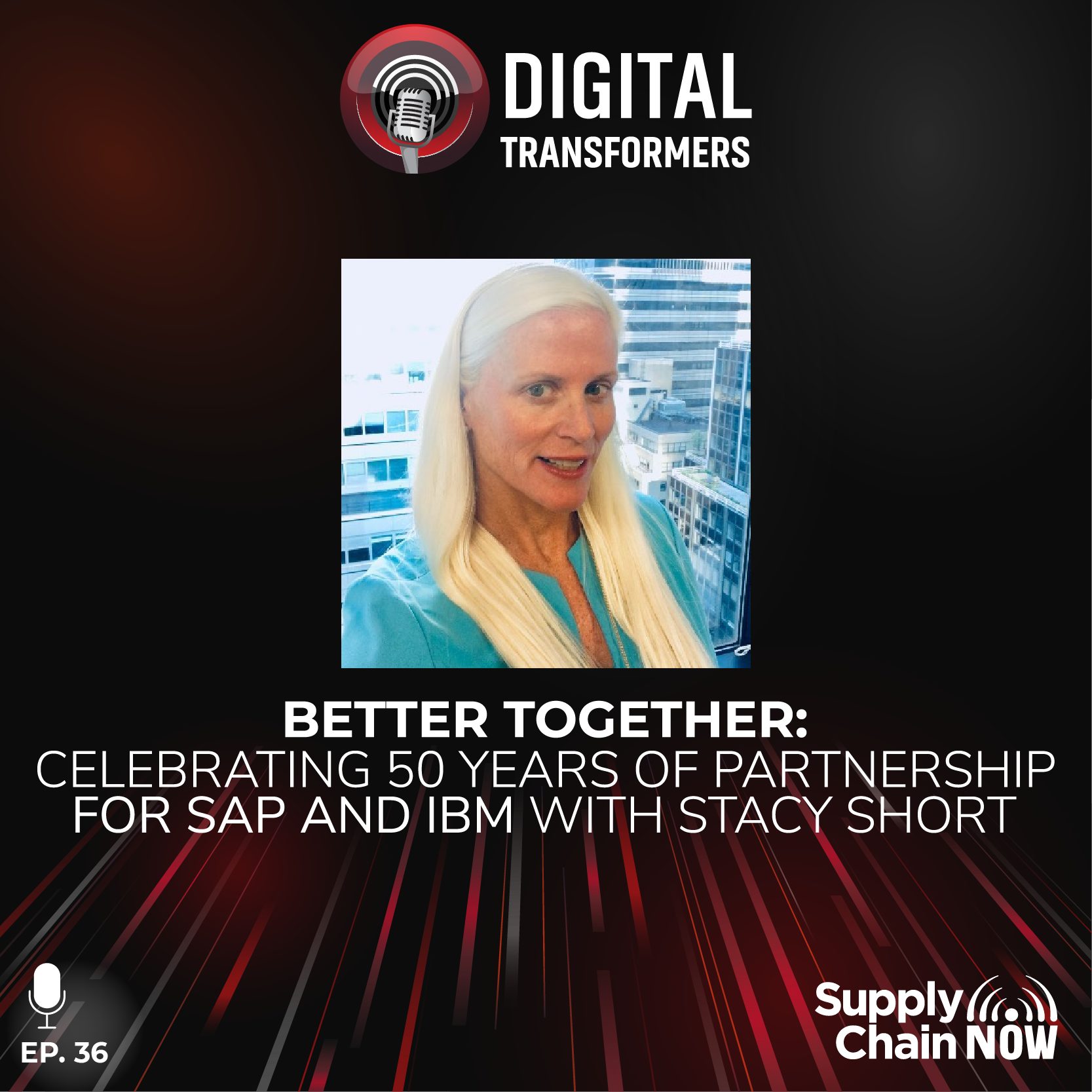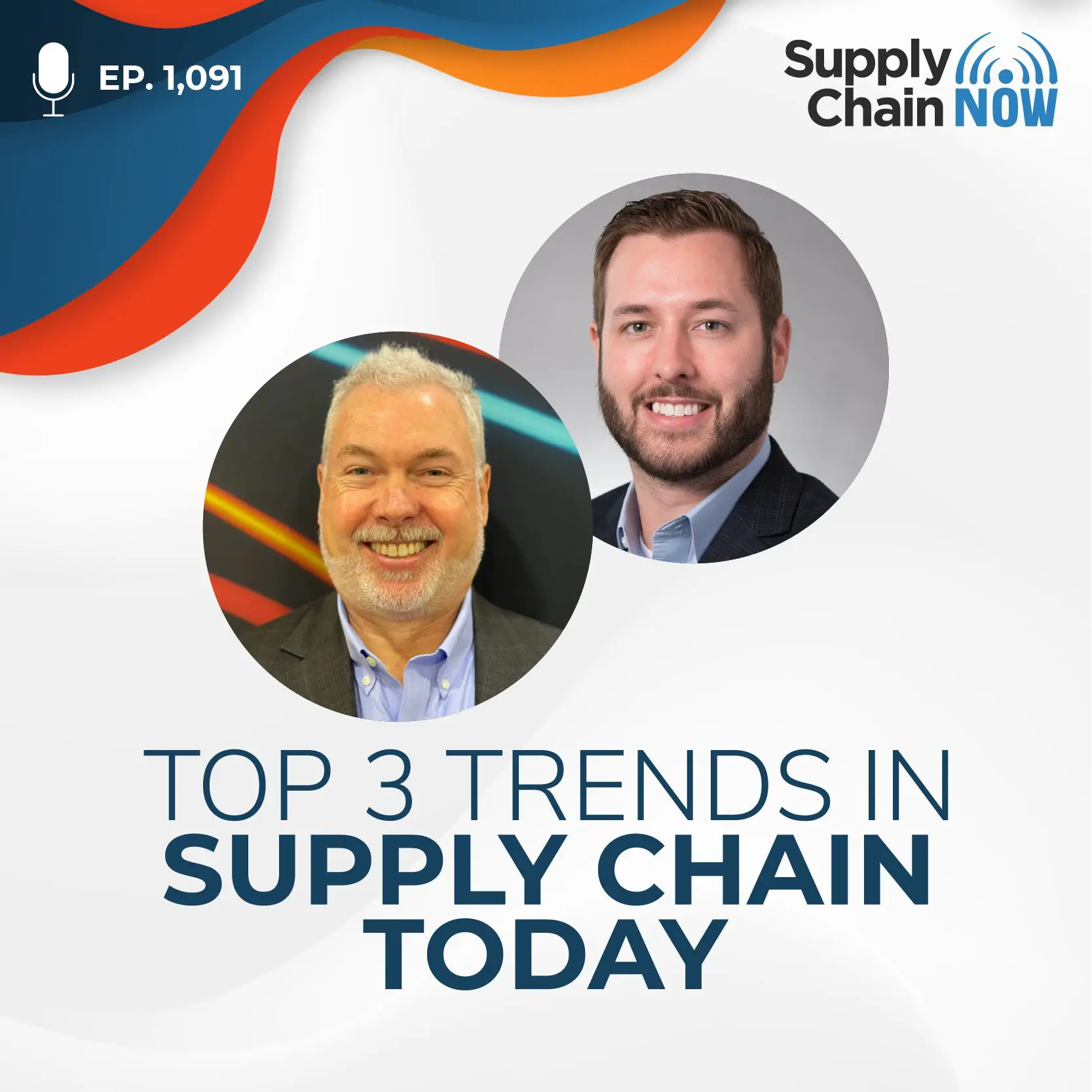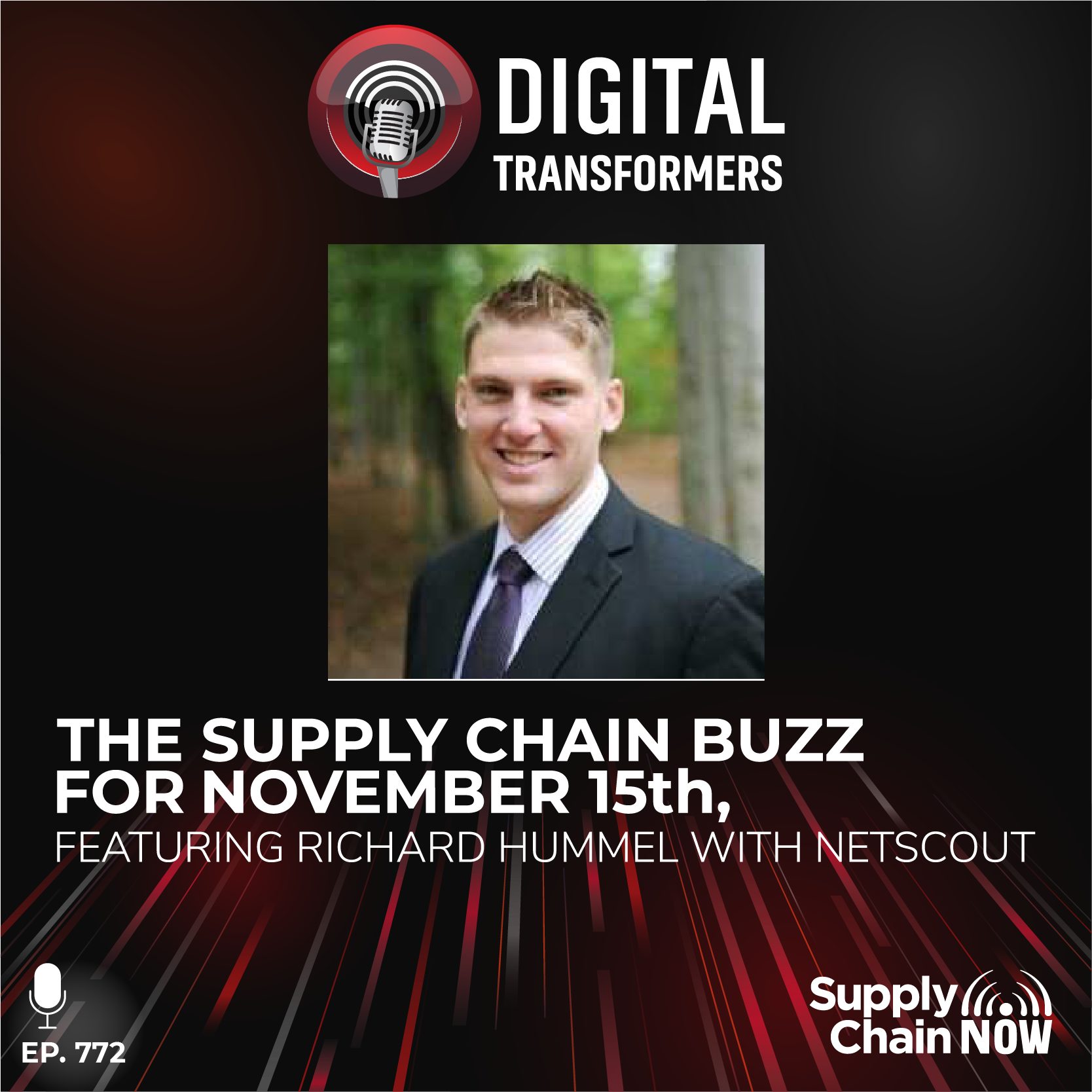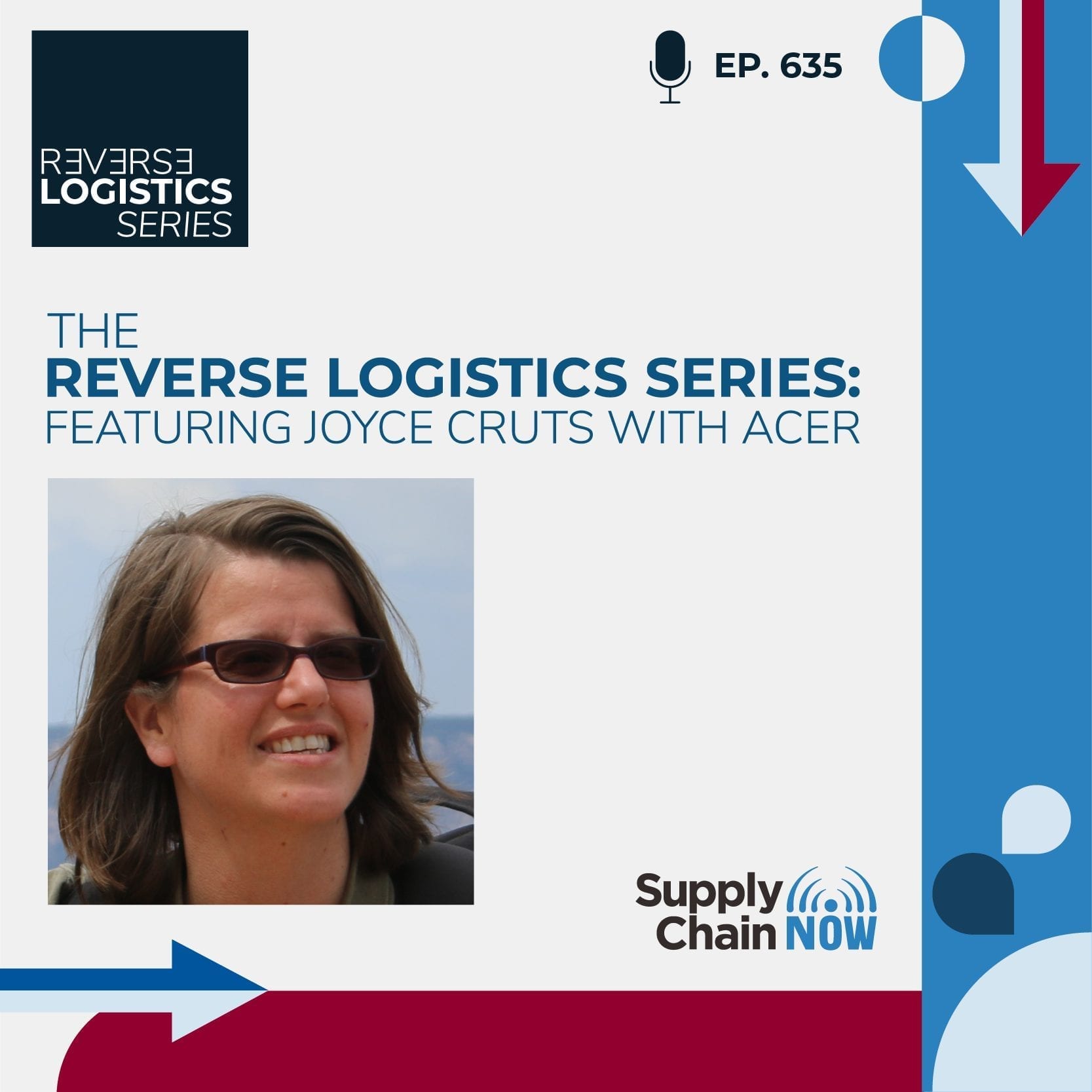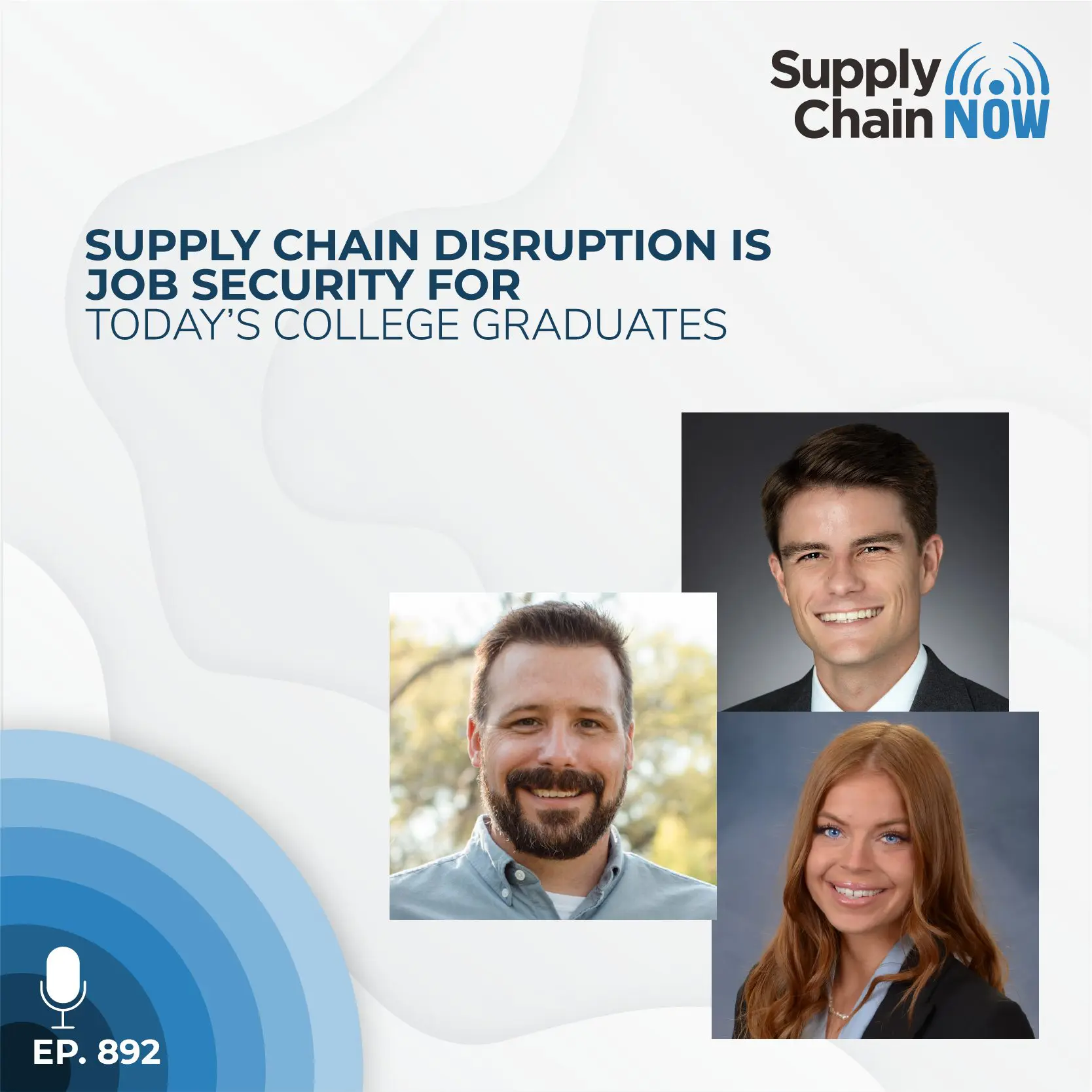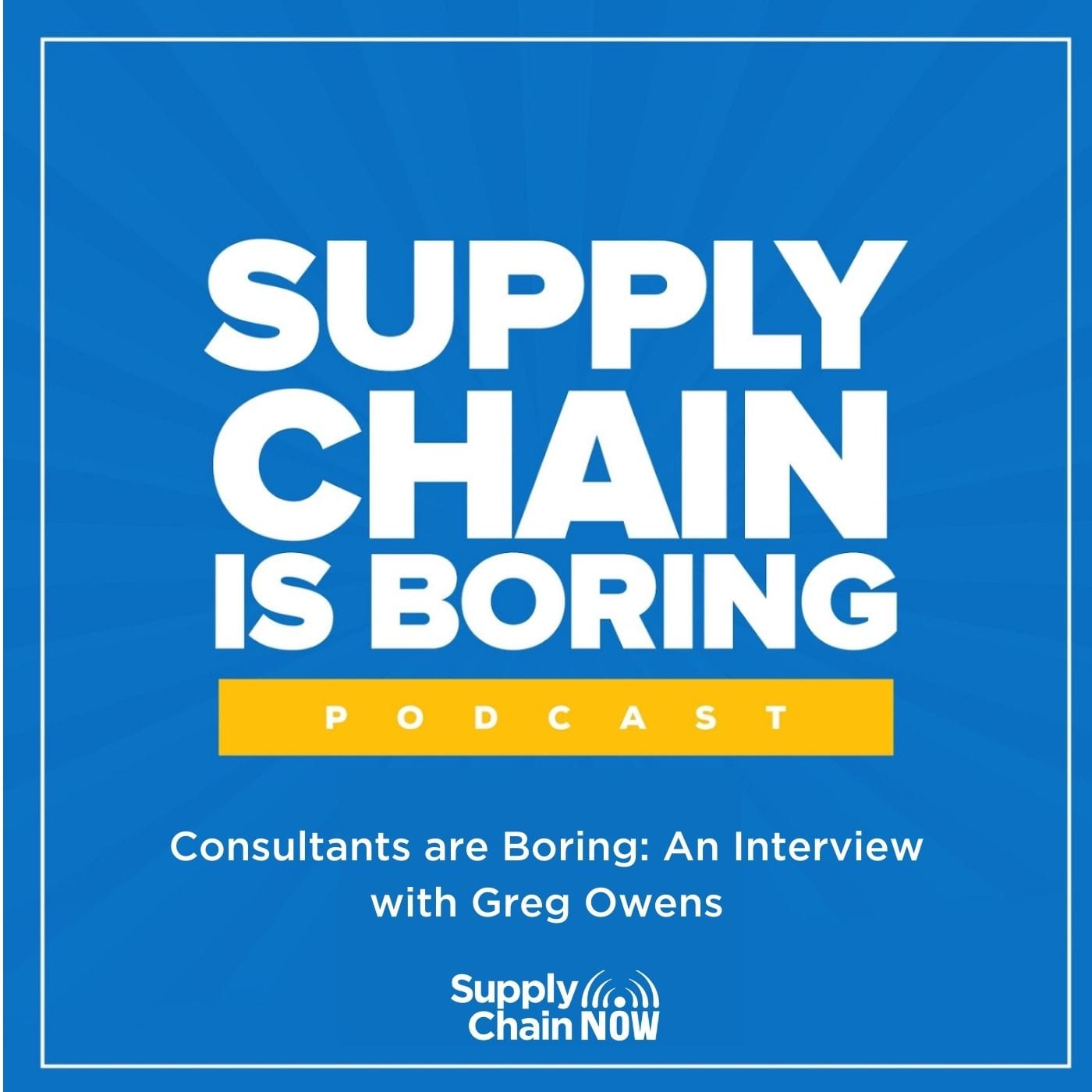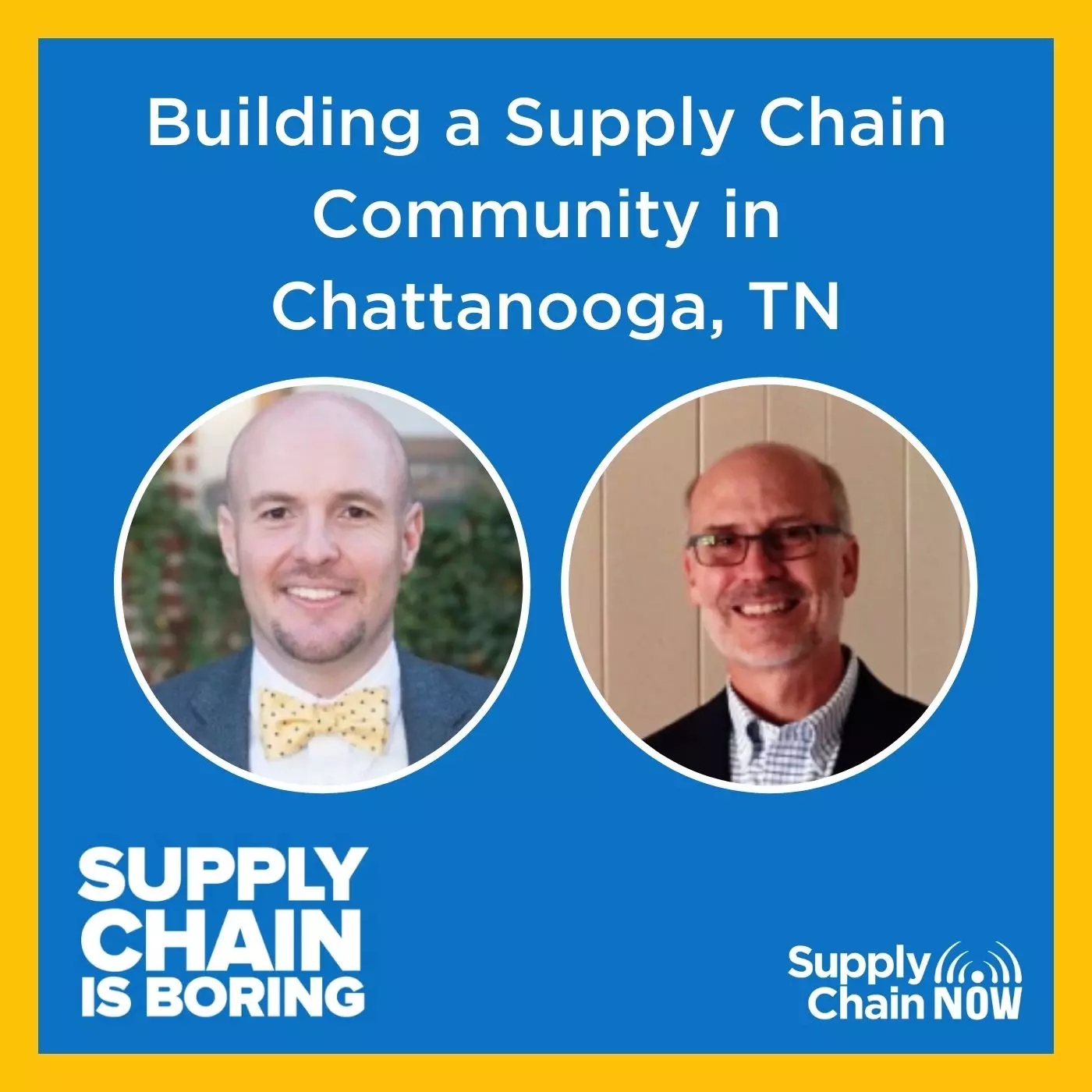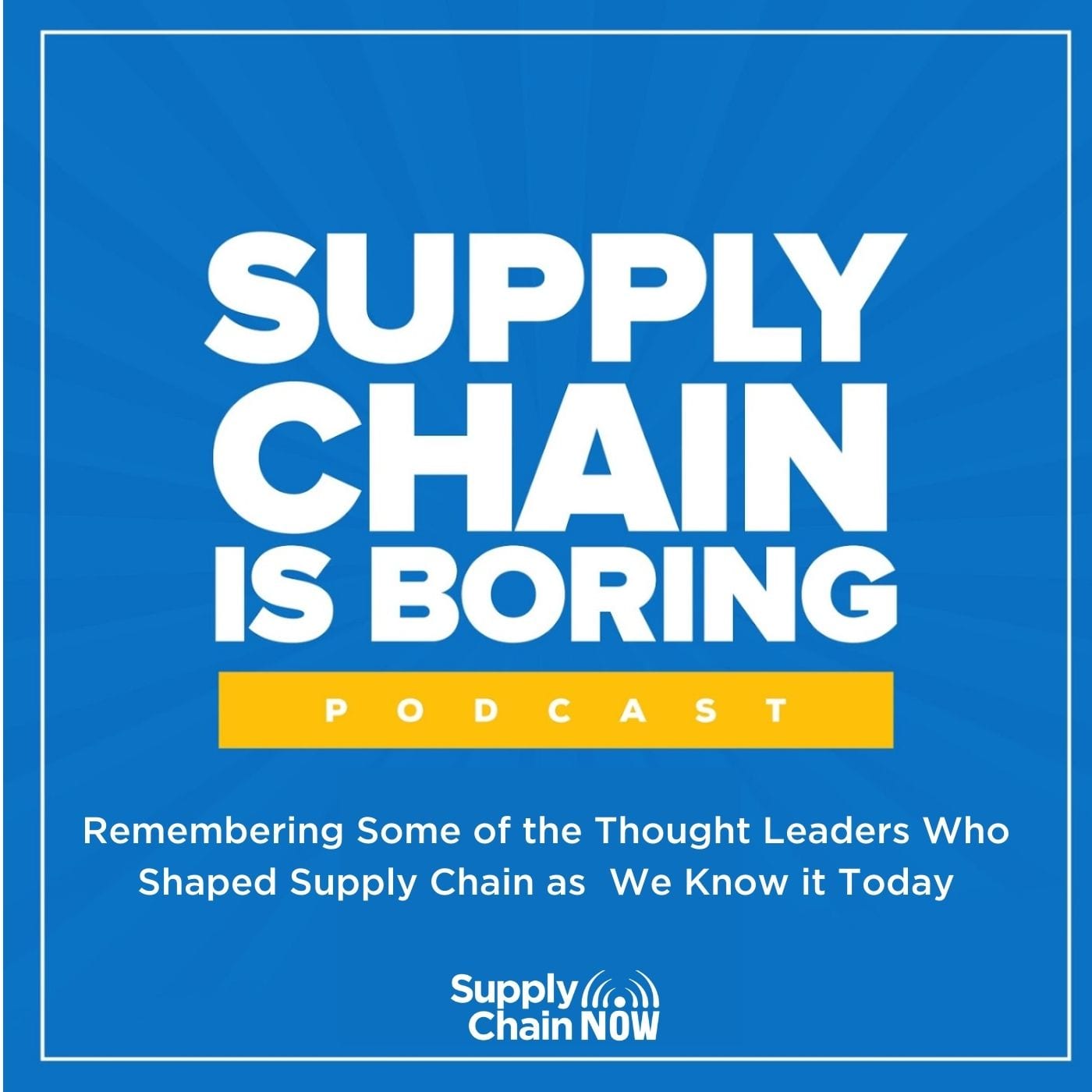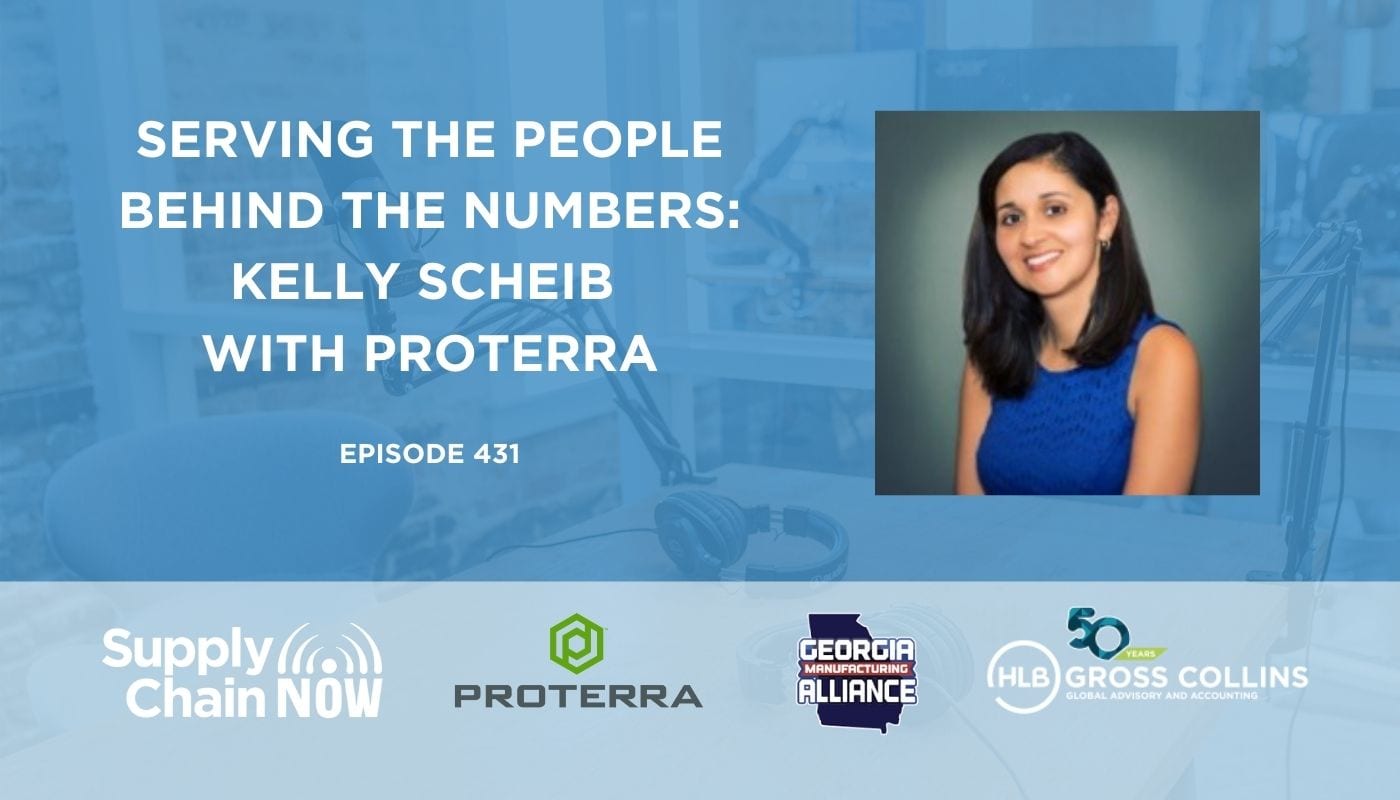
Episode Summary
“We have to remember every single day and in every single interaction that we have an opportunity to shine our light on people. That is important in everything that we do.”
Kelly Scheib, Vice President of Human Resources at Proterra
As we fight to climb back from the hardships caused by the COVID-19 pandemic, there are a lot of people looking for silver linings. Kelly Scheib, Vice President of Human Resources at Proterra, found hers in the 2008-2009 recession. After weeks of being sent to lay people off, she realized that if she could minimize overtime and negotiate down healthcare benefits, she could keep more people employed. That was her ‘a-ha’ moment.
Fast forward to today, and she’s facing a double human resources challenge: protecting employees while also protecting the business. Fortunately, it has given her an opportunity to do one of her favorite things: learning more about the business. In the case of Proterra, it is the business of designing and manufacturing electric transit busses and charging systems.
In this podcast interview, Kelly tells Supply Chain Now Co-hosts Greg White and Scott Luton about:
· Why human resources professionals can’t be fully effective until they learn as much as possible about the business they work for
· How organizations are redesigning themselves to be as prepared as possible for a completely redesigned future
· What she thinks workforces – and workspaces – are really going to look like in 10, 20 or 30 years
Episode Transcript
Intro – Amanda Luton (00:05):
It’s time for supply chain. Now broadcasting live from the supply chain capital of the country. Atlanta, Georgia heard around the world. Supply chain. Now spotlights the best in all things, supply chain, the people, the technologies, the best practices and the critical issues of the day. And now here are your hosts.
Scott Luton (00:28):
Hey, good morning, Scott Luton here with you on supply chain. Now, welcome to today’s show on today’s show. We’re continuing our today in manufacturing series that we do in conjunction with the Georgia manufacturing Alliance. Uh, today we’re talking best practices with a manufacturing leader. That’s doing big things in the automotive and energy stores, storage space, very unique sector. So stay tuned as we look to increase your manufacturing, leadership IQ. Um, real quick, I want to say, uh, thank our sponsor. We’re really appreciative of HLB gross. Collin’s a top 25 Atlanta CPE, a firm specializing in manufacturing, distribution, supply chain operations, and that’s what helps make this series happen. So big, thanks to hob gross Collins and quick programming. If you enjoyed today’s episode, you can find us wherever you get your podcasts from on that note. Let’s welcome. This outstanding panel we have here today. Jason Moss, CEO of the Georgia manufacturing Alliance. Co-host here today. Jason, how you doing, man? A fantastic, I’m excited about to be at the show today. We enjoyed our warmup conversation. Uh, we should have recorded that one too, but we’ll save that for another day. Um, and then Laura Metta juicy also our cohost on this series, principal and leader of the manufacturing, distribution and supply chain practice at HLB gross Collins. Laura, how are you doing?
Laura Madajewski (01:52):
You’re doing great, Scott. It’s a beautiful Wednesday morning.
Scott Luton (01:55):
I like, I like that a painting behind you. I’m going to share that in the warmup conversation. Did you do that?
Laura Madajewski (02:01):
I wish I did. I’d like to say on that skill, so, but it certainly draws my attention when I’m sitting, uh, I’m over here at the kitchen table this morning, having some, having some coffee and conversation.
Scott Luton (02:14):
Well, I love the backdrops and speaking of bad jobs. Let’s welcome in our featured guests today, Kelly, Shab vice president of human resources with Proterra Kelly. Welcome, and we love your backdrop too.
Laura Madajewski (02:26):
Hey, thank you so much for having me today. Um, that’s my background
Scott Luton (02:34):
Sitting in a bus, but a really unique bus and we’re going to learn a lot more about just how unique it is, but um, really appreciate your time as busy as you are. I know your day started early, so we’re going to dive right in and save your time as much as we can. You bet. Alright, so Jason and Laura are really excited about our conversation here with Kelly. Um, let’s start though. Let’s let’s before we get into, let’s kind of learn more about Kelly shops. So Kelly, for starters, tell us, you know, where are you from? Where’d you grow up?
Kelly Scheib (03:06):
Yeah, I’m a, I am a new Yorker, right? So I’m a new Yorker who made her way somehow to South Carolina. So I grew up in, uh, in the Bronx.
Scott Luton (03:14):
Really does that. So you were a big Yankees fan?
Kelly Scheib (03:18):
Absolutely. Absolutely. I grew up not far from Yankee stadium, um, and married a Phillies fan though. So that’s marital strife. Um, and uh, yeah, so I, I’m a new Yorker me my way to Penn state for undergrad and graduate school lived in Philly for a little while and then ultimately somehow made my way to Greenville, South Carolina, so happy I’m here.
Scott Luton (03:46):
Wow. So do you still have a bunch of family in the Northeast?
Kelly Scheib (03:50):
Yeah, my family in New York, New York and Puerto Rico, but yeah, no for, I don’t have anybody here. Me and my husband and our five kids.
Scott Luton (04:01):
Wow. Holy cow. So you’ve got some assembly lines at home, uh, when it comes to lunch and dinner and everything else. Right.
Kelly Scheib (04:09):
Lean process.
Scott Luton (04:12):
So many, so many, many factory jokes there, but uh, good stuff. Well, one last question. So are you able, I know that 2020 certainly, uh, uh, let’s look at 2020 to decide for now, but are you able to kind of get back and see the family and, and take a departure from the heat down here? Every once in a while?
Kelly Scheib (04:30):
Yeah. We’ve been staying away from some grandparents. Um, we have, uh, we have some grandparents in Pennsylvania we’ve been staying away from them right now, but, um, know I, hopefully soon hopefully we’ll be able to reunite too, but a big, time’s an incredible thing. Yes, it is. Um, we have purchased a Facebook portal, which clips to our television for all of our families. So, uh, so we see each other probably more now than we would if we were actually in person. So
Scott Luton (04:59):
That is a, it’s really fascinating how technology has just innovate at the speed of light. Um, you know, zoom, I’m not the, um, brag on them too much, but I’ve really been impressed, uh, as we all find ourselves on zoom calls every day. Right. Well, it’s really been interesting to see how they maintain by and large capacity while innovating the platform. It’s, it’s going to be a case study that we’re all, you know, one of those case studies, we’re all gonna study once we get into this post pandemic.
Kelly Scheib (05:29):
Yeah. There’s many, many hidden blessings in this environment. Right. You can have quiet, you know, slower conversations. You’re not as hurried because nothing’s really going on. So you can sit and have the conversation with your mom and, and, and, and have those conversations and play monopoly and do those things because your weekend plans are in hurry.
Scott Luton (05:50):
Uh, you know, that, that’s a, um, that’s the unique perspective that that’s, that is a, certainly a big part of the lining of what we’re going through right now. That’s right. Um, all right. So one final note before we move more into your professional journey is, um, you know, in talking with your pre show, uh, you’re really dedicated and committed to serving in the foster care arena. So tell us more about that and tell us why.
Kelly Scheib (06:17):
So, um, we’ll disclose your I’m I’m in a bus because one it’s awesome. And two, because if not, you’ll see lots of little kids playing in the background behind my office doors. Um, so my husband and I are licensed foster parents. Um, foster care is something that is near and dear to our hearts and our journey, and just kind of living through this world. We have five children, three biological children into baby girls, sisters that we adopted from foster care last year. Um, and we certainly have a strong passion for this space. In the last few years, we’ve been, um, honored and privileged to raise five children, um, that were not biologically ours. And we continue to help in that community. I also sit on the board of directors for a phenomenal organization called fostering great ideas, which is imperative to assisting in this space. They have programs that keep siblings bonded. They help mothers who have lost their children. It’s just a phenomenal and remarkable organization. I certainly see this as part of my life’s work,
Scott Luton (07:31):
Love that I love to give the give back there. Greg, it’s kind of coined this, this give forward. Uh, and it, it really, it takes a village and it is so important now perhaps more than ever before. Uh, you know, as we feature a lot of nonprofits in our programming that their needs do not go away, unfortunately their support during these challenging as like 2020 can go away. So, um, admire what you do. One more question. I asked Nick one more question there. What, um, what put that on your radar? What, what caused that dedication to, um, you know, helping, uh, and serving as foster parents?
Kelly Scheib (08:11):
Yeah, so that’s a really interesting question and probably way longer than this episode will allow for it, but I’ll give you a brief answer. Adoption was always on my heart. It was always something that I wanted to do growing up. I thought I would always adopt a child. Um, we were blessed with three beautiful, healthy babies. Um, and unfortunately my brother was diagnosed with cancer in 2016 and that really put incredible perspective in our lives and adoption at that point was still very much on my heart, but, uh, we had been, and I had some really intense conversations about it and we realized what work we’re blessed, and we are so less, let’s go do this the hard way. Adoption can be challenging, but there are ways to make it easier. Foster care is never easy, but so worth it. Um, so my husband and I decided, look, we’re going to do this the hard way.
Kelly Scheib (09:11):
If a child needs us to adopt them through foster care, we’ll do that. But until then, we’ll just be the parents for those that need parents for his first season. Um, can we welcomed, we’ve welcomed little humans into our lives and into our homes and they will forever be my babies, um, who have, who have left and been reunited with their families as it’s intended to be. Um, and we were lucky enough to, um, adopt two little girls who were called to be ours and their sisters, which was more of a blessed thing. And we got them in a four weeks in two days. So, um, when was four weeks old in one way with two days old. So, I mean, it couldn’t have worked out better. Um, and I, one of the things about foster care that is interesting is you, you always kind of give the biological parents. Everyone kind of has opinions of the biological parents. I actually have a remarkable relationship with my growth biological parents, um, and that is intentional. And, um, and it was it’s, uh, it’s really a blessing when you can realize that your role is impacting so many lives. And so it’s not just about my daughters, but it’s about their biological mother and father as well. I was chatting with them yesterday to really,
Scott Luton (10:34):
I love that there, there are so many you’re right. We need three or four hours to dive more into that. I feel like there’s so much more good stuff there, but one quick takeaway, and I love your perspective on, Hey, ignore all the noise and negativity that so often goes with the jump. The judgments may be in the assumptions that go with the biological parents. Life’s too short for that. Let’s, let’s have a relationship there. That’s a breath of fresh air Kelly. I really appreciate you sharing that.
Kelly Scheib (11:03):
I mean, when you, um, when you get to know biological parents, they are people and there are people a year standing next to you on the street. There were people a year at Starbucks with their, their people and they deserve just because they had a different path. Doesn’t mean they don’t deserve a degree of grace. And, um, I, you know, I find more than one occasions told the department of social services. I wanted to adopt a few mamas. I didn’t want to just adopt that. I wanted to adopt the mamas, um, you know, your heart, your heart breaks for their journey as well. No one volunteers to be in the position that they’re in.
Scott Luton (11:42):
Thank you so much for sharing what to have you back. And we’ll dive deeper into that.
Kelly Scheib (11:47):
Talk about that all day long.
Scott Luton (11:50):
Well, you know, that that’s the secret sauce of, of these kinds of conversations from where I sit. I mean, the passions and, uh, um, the areas that don’t get enough spotlight and, and the story behind it. I mean, that’s, that’s the rewarding part of this journey that we’re all on. I believe so on a much lighter note, Jason, though, we want to kind of dive more into Kelly’s professional journey as well. Yeah, yeah, no doubt. And Kelly, I’m curious to hear about some of your key roles in the past and, and, and maybe some of the things that in those key roles that have shaped your worldview, what is it that we need to take away? I’m, I’m, I’m a, I’m a, um, avid student of successful leadership. And so I want you to tell me a little bit about some of your path and, um, and what, what you’ve taken away from that.
Kelly Scheib (12:34):
Well, I don’t know about successful leadership from my perspective, but I can tell you that I’m one of the rare breeds of human resources, professionals who chose human resources. So most people actually somehow end up in human resources through a myriad of different ways. I chose this, I went to school for this. I have two degrees, so this is the space I wanted to play in. Um, so I’ve done a myriad of different human resources role, um, starting at, you know, entry-level manufacturing, human resources all the way up to, um, you know, the VP role that I’ve had most recently in my career. So I’ve done specialist roles, um, and I’ve done. Um, now this will be my second VP, um, in HR. Um, this is, I mean, this is where I’m called. I firmly believe that I am as much a business person as I am a people person. So it’s a, it’s a rare, it’s, it’s rare to find both. You either find just business people or you either find just people, people, and I’m, I’m a little bit of a hybrid of both.
Jason Moss (13:46):
Tell me maybe, maybe about a Eureka moment that you’ve had in your career. Something that like, turn, turn the corner. What caused you to, to look at it from that perspective for both the business and the personal side, maybe,
Kelly Scheib (13:57):
You know, I think that that’s a great question. I’ve actually given a couple of speeches on this. So one of the things, so when you come out of school and you’re in HR, you think you’re about the people, right? So you’re there for the people. Well, one of the things that happened early on in my career and I’m aging myself here is I joined the profession. And shortly after I joined the profession, the great recession hit. And I would sit in these meetings with all of these executives at my manufacturing plant at the time. And they would rattle off a bunch of numbers. I didn’t understand. And they would be talking about a lot of operational terms. I didn’t understand. And then they’d look at me and they’d say, go lay off 10 people. And this happened week after week after week after week. Cause it was the recession, right?
Kelly Scheib (14:45):
We weren’t getting orders in. We, there was just, the business was going down as was the case with everyone at that time. Um, so it was, it wasn’t until a couple of weeks in that I realized, wait, wait, wait, wait. Like these are people’s lives. You’re sending me to do the dirty work and go talk to the human, to play the human part and tell them that they’re not going to have a paycheck and they’re not going to have health benefits. And in 2008, similar to the situation that we’re in now, who knew when they were going to new. When that, when that time was going to, I mean, I had grown men in my office, grown men, why being in my office, asking me not to do what I was about to do, which was lay them off. And that, that definitely was a massive aha moment for me.
Kelly Scheib (15:36):
And that’s when I realized very quickly, I got to know these numbers and I’ve realized exactly how to influence them. If that means I’ve got to Institute more cross training. If that means I have to do staggered shifts, if that means I have to make sure OT is lowered. So more people can stay. If that means I have to go and negotiate health benefits. So my premiums are lower, but people get to stay in the building. That’s what I’m going to do. Um, so that was a massive aha moment for me. And it hit me so early on in my career, which, you know, silver lining, we talked about some silver lining blessings. That was a blessing for me.
Jason Moss (16:15):
Yeah. That’s a great foundation. And you know, I mean, you, you build on that, you’re able to impact and hopefully through, through your, um, passing that message along to future generations. So, um, that’s that again, that’s part of the reason that we’re, we’re so focused on doing these, uh, these podcasts is to share best practices and share ideas that can, can go along. Uh, you happen to have that experience live, but I mean, anybody that’s going to be listening to this, if they, if they take that away, that’s the magic. So thank you so much for that insight. You know, I, I gotta tell ya, I’ve rubbed elbows with a ton of human resources leaders in my career through a couple of different roles, a lot of it in, in the manufacturing supply chain, logistics, warehousing space. And I rarely say I never, but I honestly cannot think of the last leader in this, in this profession that just made that point about how it’s not just numbers and metrics and reports.
Scott Luton (17:16):
And, but these are people that have families and, and, and, and now based on these interactions I’m having in my office, painful interactions, we’ve got to figure out how to, how to make it stand out more than just numbers to the executive team and leadership team that you’re part of, um, that’s worth as much more worth than the price of admission for today’s conversation. So thank you for sharing that, Kelly. Um, all right. So, so kind of moving right along, we’re going to now dive into the pro the pro Terra story, and then kind of get the, the story behind Kelly’s background here that you see on the, the video. So Laura, let’s dive right in,
Kelly Scheib (17:59):
Well, I’ve just been sitting here just fascinated with all of this because, um, I think one of the things that I always felt was so important to me was just the whole people factor in throughout it and getting to understand all of that. So extremely impressive Kelly, but as Scott said, um, uh, I’d love for you to share more about pro Terra. What does the company do for our listeners? So we can get an understanding of that beautiful bus that’s sitting behind you and beautiful bus. It’s really cool that I can sit in it on zoom. I mean, kudos for allowing you to be able to sit. One of my, one of our board members actually shared this background with me, cause I was so impressed with her background. I was like, I need to sit on the bus. I want to see it on the bus. That’s not absolutely
Scott Luton (18:44):
How often when’s the last time you used the phrase beautiful bus, right? And we’re using it three or four times on this conversation alone, but it really is.
Kelly Scheib (18:53):
Let me tell you why it’s beautiful. It’s beautiful because we need energy. Right. So you think about, I grew up in New York city, right? So I talked to you guys, you guys hear that I grew up in New York city and we used to have the, um, there was always a bumblebee on the buses. I don’t know why, but that’s just what I remember as a child, there was a bumblebee on the bus and, um, there I’ll remember it, you know, after it snowed in New York city, the snow instantly turned right. You would cause the buses were driving by the car driving by, they were, they were just emitting robustness, right. And just exhaust. And the beautiful light just know that would often cover New York city was gusting in a second. And that’s one of the things about parterre that is so cool. It is, um, a leader in designing and manufacturing zero emission electric vehicles for our industry, right? So we’re in this transit space and our buses are all over all over the country right now. So that’s just wonderful. We’re also, um, we also have a division called pro Terra power, which, um, is, is really an electrification space for heavy duty, heavy duty transit as well. Um, so that’s, it, that’s an important point. We’re not just buses. We are this other division called Proterra powered, which is really it’s electrification is the game.
Scott Luton (20:30):
Hey, real quick, if I can interject, I think one of the neat things as you are sharing that, um, you know, as cool as all the electric automotive companies are and, and, and the potential they have to change, um, some of the challenges we face, right. And this, in this country and elsewhere, I think the cool thing about, and the unique opportunity for Tara has, uh, uh, and not that, uh, not, not put Portiere power aside for a second, but you know, when, when, when, when municipalities are buying fleets and, and the fleets that made the snow black in New York, I mean that they’re able to affect change on a much higher plane. So, uh, kudos to what Proterra is doing. Uh, and, and w a trailblazer when it comes to, um, energy efficient, uh, public transit vehicles, right?
Kelly Scheib (21:21):
Yeah. You’d like just one of the, one of the, again, silver lining with the COBIT, if one can be found is you seen, um, just clear skies in cities like Los Angeles and, you know, all of a sudden people aren’t on the road, right. Because everyone’s kind of at home and the cars aren’t driving, but think about that. If all of a sudden the sky is clearer and it’s because the cars are parked, isn’t there, then that gives you pause as to what we’re breathing in every day. What is it that, um, what is it that we take for granted in terms of clean air? This is just such a, it’s such a cool space. I’ve worked for a lot. I’ve been really lucky. I’ve worked for a lot of really cool companies in my day. Um, this is just the coolest,
Scott Luton (22:18):
That’s a perfect Testament. Um, alright, so, uh, Laura, I know you’ve got one more follow up question or a couple for, for Kelly here. Yeah,
Kelly Scheib (22:27):
Absolutely. Kelly, and by the way, I just have to say that passion that you have for Proterra and it’s just its mission and what it’s doing just kinda just, just jumps right through the screen today. So I hate that we can’t kind of all be with each other right now under the dreaded word COVID, but, um, I mean that alone just speaks volumes for what the company stands for, what it does, and clearly your passion and commitment to it. Yeah, absolutely. Absolutely. Committed to the mission, committed to the people. Absolutely. Um, in kind of segwaying into that. Can you share with us a little bit more about your role and where you spend time, um, and Proterra for our understanding? Just such a funny question. So I’ve only been at pro Terra for seven months. So I started in January. It has been a journey, uh, unfortunately eight, nine weeks into my Proterra journey COVID stroke.
Kelly Scheib (23:27):
And so I got to know people well, and I had to, we sent people home and people are working, are working remotely. So I will say that for me, the majority of my experience at Proterra has been focused on learning. So learning the organization, I actually think that that is one of the things that HR professionals don’t do. They come in and they know HR, so they think they know how to apply it. It doesn’t work that way. You need to know the business. I actually was interviewing someone yesterday for one of our senior engineering roles. I’m the VP I don’t interview. Right. I don’t, that’s not what I do, but I always purposely have few jobs that I am the only recruiter. And I do that because I need to stay in touch with what’s happening. I need to understand. And maybe it’s because I’m nosy or maybe it’s because I’m just, I need to know.
Kelly Scheib (24:28):
But I was interviewed for a very technical role yesterday, extremely technical hole that candidate was talking about things that like, I’m Googling in the background. I’m like, what is going on? We don’t know what that is. And I have, but I had a conversation with the hiring manager shortly after. I was like, can you show me, can I, can I come? And can you show me exactly what’s happening? I actually think that that is one of the tidbits about human resources professionals that we often, we just often, Oh, well, we often overlook learning the business. I want to, I want to know it all. That’s my biggest problem. And my biggest gift at the same time, as I want to know it all. So as a result, I bought myself down in a bunch of details, but I feel like you’ll pick up the little pieces here and there that make you super valuable to the org.
Kelly Scheib (25:17):
Um, I own, I think that’s the only way you support the businesses if you get it right. Get it. Um, but honestly, between that and coded, um, that has been where I’ve spent the majority of the tongue COVID is a game changer. COVID the game changer industry societaly, but inside the building, you know, we’re tasked instantly with protecting our people and protecting our business at the same time. Um, so how do you produce and how do you make sure you’re still sending buses out that are essential, uh, bringing people, bringing nurses to hospitals and bringing people who are serving at our grocery store, people that are serving at our fire farms, they’re bringing them to work. So we’ve got to keep those buses going. How do you do that while keeping the people that are actually manufacturing those buses safe and keeping the people that you sent home engaged?
Kelly Scheib (26:14):
Because we sent them home on one, one random day, there was no work from home class on how we’re going to engage them, figuring it out as we go. Um, so it is, that has certainly been, I tell my team this all the time, especially when we’re having like overwhelmed moments, I’m like, this is, think about the learning, like survive the pandemic, right? Like you think about the learning that is, that is involved in this whole pandemic and you’re reading legislations and you’re reading orders. And you’re trying to make sense of legalees and I have a nominal team behind me, but, um, that’s probably where I’ve spent most of my life,
Scott Luton (27:00):
As you were talking about, the applied learning is really what I think one of the things that makes this a challenging, you know, you’ve got children at home, we’ve got three children in our household and, and we elected to go the, the, uh, digital learning route and kudos to the administrators and the teachers talk about applied learning. They are dealing with the decisions almost same day, maybe same hour and trying to, uh, digest it and then share it with their students and student families and, and educate children and, and using a variety of technology platforms. And, um, it is really, it’s such a huge exercise and applied learning right there in the moment. And one of the cool things about this is, is, is the generation that’s coming along. I mean, my wife is a pair pro she’s a teacher’s assistant in kindergarten. I call her my favorite crayon stacker. She’s not a big fan of that title, but, you know, but, um, but, but think about the kids that are having to learn zoom in kindergarten right now, the training
Kelly Scheib (28:07):
Much better than you can in regard,
Jason Moss (28:13):
It’s just second nature to them. They’re like, okay, well, however you, however you position it. If you position, it’s going to be challenging for these kids or you just, you know, expect that it’s going to be normal, they hop in and say, now trying to keep a mask on a kindergarten or all day. Now that’s a different conversation.
Kelly Scheib (28:29):
No, I, my, my, uh, my children are also virtual. I spoke to the administrator, I told them my son would use the mask as a Slingshot. So there was no way that it was going to stick. Cause he uses it against the sisters of the Slingshot, just like as an aside to teachers and just this crisis in general, like kudos to them and kudos to the administrators. Um, my mom isn’t is a New York city school teacher. Um, so I certainly certainly know the profession from what it looked like for her, but, you know, going back to foster care and what we talked about, there are a lot of kids right now, a lot of kids right now who aren’t in good spaces and teachers don’t have eyes to lay on them. Um, so remember that then when they’re, when they’re trying to teach your kids virtually that one day, they’re also looking to make sure a child looks okay and think about that psychological that’s psychological, very strange place that they must have to go to every single day.
Scott Luton (29:29):
Yeah. Agreed. I think the other thing that comes to mind and write a conversations we’re having here is accessibility. You know, there’s been a digital gap, a desk been too wide for, for too long. And now we’re an environment where, where there’s not a perfect path, but in the cases where we need to be able to, uh, um, teach and educate remotely, some folks aren’t in a great many folks, aren’t in a great spot there either. And that’s, that is disheartening. We need to, we need to change that. So, but, uh, all right. A lot of passion on this panel here today, uh, Laura, um, any, before we move on and kind of go more broadly, any final questions on your end?
Laura Madajewski (30:11):
You know, I mean, I think, uh, it was kind of, not as much of a question, but more, just a comment to, um, you know, say that when you mentioned about having to learn the business in your role, um, I would say that that was probably one of the biggest things that you see, you mentioned this morning outside of all the other wonderful things you’re doing that stood out to me because when I see businesses that are successful, it does come down to how are you working in understanding the people, if you can’t understand them and understand how, how important they are to the culture and how to help them through the various aspects of whatever it is to make them as successful as they can be, then, um, it, then it, you start to see some big gaps in that process. There, even just from my own professional services world, there’s just nothing like getting to know, um, uh, what the business does and how it functions to be able to understand them. The people that make it happen day after day after day. So, um, I appreciated your comment there and your passion because it’s, it’s not as often that I see that, but when I do then part and parcel, you see the, the longterm success that you have set yourself up for.
Scott Luton (31:23):
I want to know it all is the quote that is going to stick between my ears. I love that. Um, all right, so let’s move to more broadly, right? We’ve talked about Kelly’s background, some of her passions there, her journey and, and, and Proterra fascinating company there that that’s grown tremendously. So I can only imagine how much you’ve, you’ve had to learn and seek out, especially in a, in a technology, uh, technical business that Proterra is.
Laura Madajewski (31:50):
I think, I think the important point, though, there is to the, to the quote I want to know at all is I hope I never do that. Sorry.
Scott Luton (32:06):
There’s so many t-shirt isms. That’s going to come out of this conversation. Kelly. We’re gonna party. Oh yeah. Yeah.
Laura Madajewski (32:12):
I mean, I think I just said this on a recent podcast. I think that I came into my career thinking I knew at all only to quickly learn. I knew nothing and I hope I never do. When I interviewed for my job at Proterra, I told the CFO, who’s amazing that CFO in house, um, I told my CFO and I told my COO, like, I hope I sit in a room with you and you talk circles around me. And I don’t understand a darn you’re telling
Kelly Scheib (32:40):
Me. And I was like, that’s what I hope. That’s what I want. Um, because when you’re not in that room anymore, you’re not growing. And I want to be in that room. Like good, golly. They kept true to their promise because I am completely lost most of the time. But, but I hope that that’s always my area.
Scott Luton (33:01):
Yeah. I don’t believe that for a second, but I agree. I agree with you. There’s all. I mean, you always want there to be more because that means that you can get out of your comfort zone and you can go out and, and, and not be the smartest person in the room so that there is always something new to be learned. Skill wise, Mark Wise, information wise. I mean, being in the information age, just, that’s a very savvy way of putting it, Kelly. Um, alright, so let’s, let’s go broadly here. Let, let’s, uh, a wide open question here, Kelly, with this next question. So there’s so much going on. Of course we’ve all spoken to the PennDOT and the COVID-19. That is the dominant, obviously the dominant, uh, theme of just about every conversation we’re having, but maybe, maybe beyond that, what else, if when you look at the global business environment or manufacturing, you name it, what’s a topic or two or challenge or trend or development that you’re tracking more than others. Right.
Kelly Scheib (33:55):
Wow. I can think of a million different things. I think technology and what is going to happen with technology. I’ve listened to Pam LSP quite often of how many jobs are going to exist that don’t currently exist and what the workforce is really going to look like in 10 years or 20 years or 30 years. Um, I, when I think, I think about that, sorry, dog in the background, I apologize for the barking dog. Um, but that’s, that’s what I think about, I think about, um, workforce planning and what that’s really going to look like and technology, and just designing an organization and how do I prepare my company and how do I prepare people? Like, how do you train even like from school age, right? Like what are the kindergarteners learning? They’re learning zoo and kindergarten, what are those? These kids are going to be crazy when they graduated high school. Like, what is that going to look like? Um, and thinking about the job they’re going to want to do and think about the job that we need done and how are we automating them and are they gonna want to do those jobs? And what is that going to look like? And I mean, obviously different podcasts, different day, but it is. I mean, that’s a huge area of, of interest to me is workforce design and
Scott Luton (35:21):
We’ve come so far when I was in kindergarten. Perhaps the biggest memory I have was one of our regular activities was putting a piece of wax paper. I believe it was on a burner and using crayons and they’d melt. And you you’d, it’d be like painting almost that’s probably would be unheard of in today’s environment, but they’ve shifted over. I’m sure there’s plenty of hands on activities, but the, just the sheer amount of technology that your Aleut that you’re speaking to Kelly, that, that has been pushed upstream. I mean, that should, I mean, these kids really are. I think, I think I heard you say that your, your kindergartner is teaching you on some of this technology. I know my kids have coached me on some of them, myself,
Kelly Scheib (36:05):
My eight year old, put her face on my screen, on my phone to unlock it and I can’t unlock it now and I don’t know how to take it off. Um, and it’s just this whole day, every day where I’m looking at my phone and I’m like, this is, she looked like me shouldn’t account.
Scott Luton (36:22):
Alright. Um, so yeah, so much to talk about so much talk about, is there a before we make sure folks know how to connect with you and, and, you know, learn, connect with your podcast, certainly connect with Totara. Um, anything else you want to bring up when we look at the kind of the macro environment right now?
Kelly Scheib (36:40):
Yeah, I think, um, you know, we can talk about a million different things. What will be interesting to see is two years from now what our world looks like, what our work spaces look like, will they, will they look the same? You know, there have been articles that say, everyone’s coming back into an office, there’s been article up and say, no one ever gonna come back to an office. What will work look like? Where will people live? If you don’t have to be in an office, do you have to live in New York city? Right? Um, it is, it will be, it’ll be extremely interesting to see kind of the way things shake out and we will be, we will be reacting in real time.
Scott Luton (37:28):
We’ll see. Who has the most accurate crystal ball for sure. It’s been fascinating to track a variety of futurists on social media, regardless of sector or industry. What have you, there’s so many different takes on where we’re going to be, you know, five years, two years, much less five years in 10 years, but regardless if we’re not addressing some of the challenges, all of us have spoken to, it’s not going to be a better spot. So really admire, uh, folks, you know, leaders like you, Kelly, that I bet you have three or four full plates at Protera, but you find a way to give back with the little bit of free, you know, a little bit of free time or your time, um, you know, along the way. So that that’s so important. So how can folks connect with you, Kelly, uh, and, and what you’re doing and Proterra
Kelly Scheib (38:15):
At Purdy Kara, you can reach out to me at a, just K shive@proterra.com. I don’t know if your podcast has notes that you’ll post, but you’re welcome to link my email there. Um, and you’re welcome to reach out to me. I’m happy to talk to anyone about anything quite frankly. Um, and, um, my podcast, so podcasts, I cohost with my good friend email is survive hr.com. Um, one word survive, hr.com. You can find that any, anywhere you get your podcasts we’re on. And, um, it is, it is, we started the podcast in September. It is quite the relevant title right now. Um, so, so we’re talking about all things we’re talking about, all things, HR, we’re talking about some personal stuff too. We’re talking about, uh, um, our, one of our most recent podcasts was about purpose and it was about my, my brother’s cancer journey.
Kelly Scheib (39:16):
So I think that, and, and how it is that as people, we have to remember every single day and in every single interaction that we have an opportunity to, to kind of shine our light on people that is important in everything that we do. And so, so when you think about globally, do you think about kind of the futurist and what they’re saying? I think my advice to everyone would be to take a step back and stop thinking about what the future holds and think about what today holds in the interactions you’re having today and the conversations and the people you’re meeting and the, the blessing that is in those, those conversations.
Scott Luton (39:53):
I love that. And speaking with, to braise, play the Yankees today, beat the kid. I’m kidding, but well, put, I mean, you know, living in the moment is, is something it’s kind of a cliche phrase, but it’s so important in this day and age where everyone’s got a phone and we’re getting emails and social media, phone calls, texts, and living in the moment with the people that you, that you hold dear is such a great message. Part of what you shared there. And we will have to our listeners, we’re going to have show notes. You’ll be able to, uh, um, very conveniently one click connect with Kelly and learn a lot more. So really appreciate your time. Kelly, Shab, vice-president human resources with Proterra, and don’t go anywhere just yet. We’re going to, uh, we’re going to pick, we’re going to turn the tables a bit and we’re gonna pick Jason and Laura’s brain here.
Scott Luton (40:43):
Uh, so Jason, um, I’ll tell you, usually by this time in August, we’d be gearing up for your big event in September. We will have been you and I have been on 20 plant tours and networking circles and all this stuff, and of course as much different year. So, uh, tell us though, you’ve got some really exciting projects. Um, uh, you never, I’m convinced that you you’re just like the Energizer bunny, two hours of sleep, maybe at night. What are you what’s new in your world? Well, I, you know, that’s a, that’s a loaded question, man. We got tons of stuff and I want to keep this really short cause. Cause I know I want to make sure Laura’s got some opportunity to share some cool stuff going on in her space as well. But, um, uh, we had, we had some major challenges like everybody talked about in February.
Jason Moss (41:30):
We pivoted from doing 120 events a year live events to zero. And, and, and we, we converted and did a lot of, uh, zoom calls and, and we coined the phrase manufacturing news network. So we were doing, I mean, I was doing two a days for the first two weeks. That’d be a daily zoom calls to support the industry for three months, following that. And we brought in a variety of different topics and, um, you know, uh, due to your, your encouragement, your, your guidance, leadership and coaching and priming and kicking, um, you, you showed me that this podcast world actually exists in lots of people listen to it. I wasn’t a podcast. I had never listened to a podcast. And, and, and, and, and again, appreciate your insight. And I’m opening this new world up to me. So, so we launched the podcast manufacturing news network, and the goal for this is really to be able to reach into the manufacturing space.
Jason Moss (42:28):
Our, our goal on the planet is to help support and grow manufacturing in the state of Georgia. And we bring leaders in to, you know, to share best practices. I’ve been doing 120 events a year. We, that’s why we do those. And now using this platform and using this vehicle and the podcast world, I’m super excited about being able to do these interviews and, you know, you have done such a great job on helping us, you know, get, you know, manufacturing today up and running. But, but now, um, you know, kinda, kinda dial in one in specifically your global, you know, I mean, and, and splashing now radio reaches all across the world and, and we’re really gonna focus on the big impacts more locally. You know, it’s very niche, it’s just manufacturing, just kinda in the Southeast. Um, anybody wants to plug in and learn what’s going on.
Scott Luton (43:17):
Um, that’s, that’s a piece that we’re doing so that, that pace, and, um, and we’re finalizing the book when the summit went away. We had a little bit of, a little bit of runway, little, extra runway. We weren’t counting out, but we’ve been working on publishing a book, uh, manufacturing success in Georgia. And, uh, and that’s come along well, we’re 95% done with, uh, um, um, uh, with, with content doing our layouts and stuff. And that’ll be, that’ll be available on bookstores everywhere in bookshelves everywhere soon before the end of the year. So that’s, that’s really, you know, those are the two big, two big buckets that we’ve been working on. So the stories that in, in, in, in our sidebar conversations, the stories in the, in the human victory stories that we’ll be involved in, in that book, it’s gonna be really interesting, but, uh, manufacturing news, network.com, I believe the URL and survive hr.com for Kelly’s podcast. Uh, Laura, let’s circle over to you. I know that as, as we were, uh, before we went live here, you’ve been really busy and, and, and, you know, folks are trying to their, their financial wherewithal, their house in order. So it’s Laura tell us what’s, what’s new in your world, let’s say so. Yeah.
Laura Madajewski (44:32):
I’d like it, like you said, Scott. So I don’t think we’ve been busier in all of my, I guess I’m dating myself now in my 21 years in public accounting than I have been these past months. Um, but, um, we, we’ve seen a lot of, a lot of really good things, some heartache and stuff with companies, but, you know, our capacity is being a helper, especially in this industry and the manufacturing and distribution supply chain space has just been, um, I don’t know, it’s just, it’s what gets us up in the morning. And, um, right now we’re really focusing on, um, digging into, uh, the, the new numbers that companies are having to figure out what’s gonna make them successful for the rest of the year. And part and parcel with all of that is very much from the HR perspective is the, the teams and the personnel and what they’ve been bringing to the table. Uh, we, I do a lot with data analytics and figuring out how to pull from all of the different resources that the manufacturers are utilizing, um, to run operations. So we’re taking that, we’re taking the human capacity part of that, and we’re figuring out how we can pull that information together for, um, uh, uh, strategic decisions. So that’s really kind of what I’m focusing on outside of all the other soup to nuts, usual types of things in the background. And if I hear the letters PPP one more time,
Scott Luton (46:01):
Hey, I can only imagine, but you know, Laura, um, I know you, you’re looking forward to getting back to the day when we can get into plants. And I think all four of us can agree, you know, going to the gemba, going to where that production is made and the wonderful people that are committed to the mission and keeping, um, the manufacturing industry, it really by extension everything moving forward, right. And protecting our psyche, um, you know, whether they’re in the plants, whether they’re in the stores, you know, the folks in our front line at the cash registers for that matter, that are allowing us to purchase goods, you know, during these crazy times, I mean, there’s so many different heroes. So know we all look forward to getting back into plants and, and taking tours and, and, uh, and you’ll find very few accountants that as often as Laura MapReduce get, and especially that enjoys it.
Scott Luton (46:49):
So, um, great episode, I really appreciate everybody’s involvement. You know, Kelly, we, we, we took some right turns and some left turns that, you know, you never, as, as I’m preaching to the choir, you never know exactly where each of these podcasts conversations will go, but I really, um, you know, when folks share and lead with their passion and, and lead with their Frank candor and, and what they view and opportunities and challenges, those are some of our best episodes. So I think, I think our audience hopefully will enjoy this one as much as I know I have. So you bet on that note to our audience, again, you’ll have links in the show notes for each of our three guests here. And, uh, of course you can find us at supply chain, radio.com, find, subscribe, wherever you get your podcasts from. Hey, you know, um, I want to challenge our audience, just like we challenge ourselves every day, you know, kind of piggybacking on what you heard here from Kelly and Jason and Laura is, Hey, do good give forward, but be the change that’s needed. And on that note, we’ll see, next time here.
Featured Guests

Kelly Scheib leads the Human Resources department at Proterra. Scheib has over 15 years of progressive Human Resources experience, most recently serving as the Vice President of Human Resources for Tindall Corporation. Prior, she worked for Hubbell Lighting in positions including HR Management, Organizational Development and Organizational Effectiveness. She holds certifications including the Senior Professional in Human Resources certification (SPHR) awarded by the HR Certification Institute and the Senior Certified Professional certification awarded by the Society for Human Resource Management (SHRM-SCP) and was recently named as the South Carolina Human Resources Professional of the Year by the South Carolina Chamber of Commerce. Kelly graduated from Penn State University with a Master of Science, Industrial Relations and Human Resources, as well as a Bachelor of Science, Labor and Industrial Relations. Kelly is also the co-host of the SurviveHR podcast and a very active community member, focusing her efforts on the foster care community.
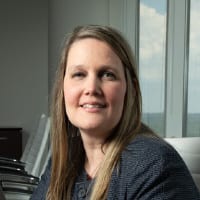
Laura Madajewski, CPA, MBA is a Principal in the Audit and Advisory department of HLB Gross Collins, P.C. She leads the firm’s Manufacturing and Distribution Practice, as well as the ERISA Practice of the firm. She has extensive experience helping clients improve controls, strengthen management, enhance governance roles and oversight and streamline operations through diligence to facilitate positive changes and growth for her clients’ operations. As a trusted advisor, she gets to know each client in order to provide a customized approach to their assurance and accounting needs. In her spare time, Laura enjoys charitable and volunteer roles throughout the Atlanta and North Fulton communities supporting various initiatives. She also is an avid barbeque fan and enjoys judging contests as a Kansas City Certified BBQ judge. Learn more about HLB Gross Collins here: https://hlbgrosscollins.com/
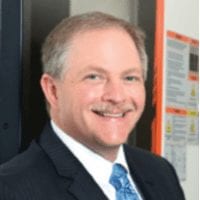
Jason Moss is Founder and CEO of the Georgia Manufacturing Alliance (GMA). The organization is the fastest growing community of industry professionals in the state. Since 2008, GMA has provided the premier platform for manufacturing leaders to form strategic alliances, share best business practices, and make profitable business connections. GMA now has six chapters across the state that are facilitated by volunteer chapter directors. The organization’s staff and Chapter Directors work together to identify quality manufacturers, coordinate plant tours, and provide educational workshops in their regions. Each month GMA provides at least 5 plant tours where others can learn best business practices from their peers. Learn more about the Georgia Manufacturing Alliance here: https://www.georgiamanufacturingalliance.com/
